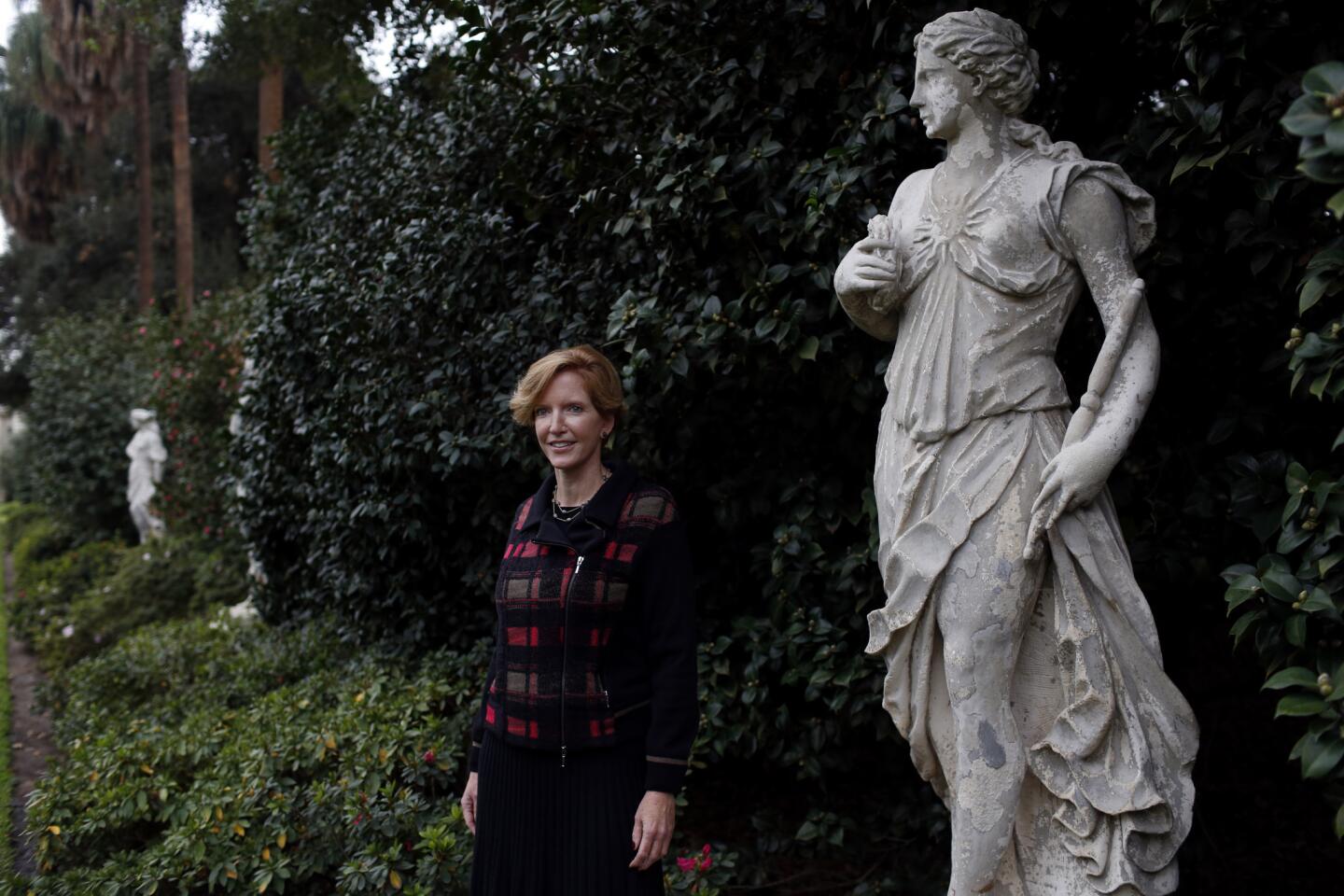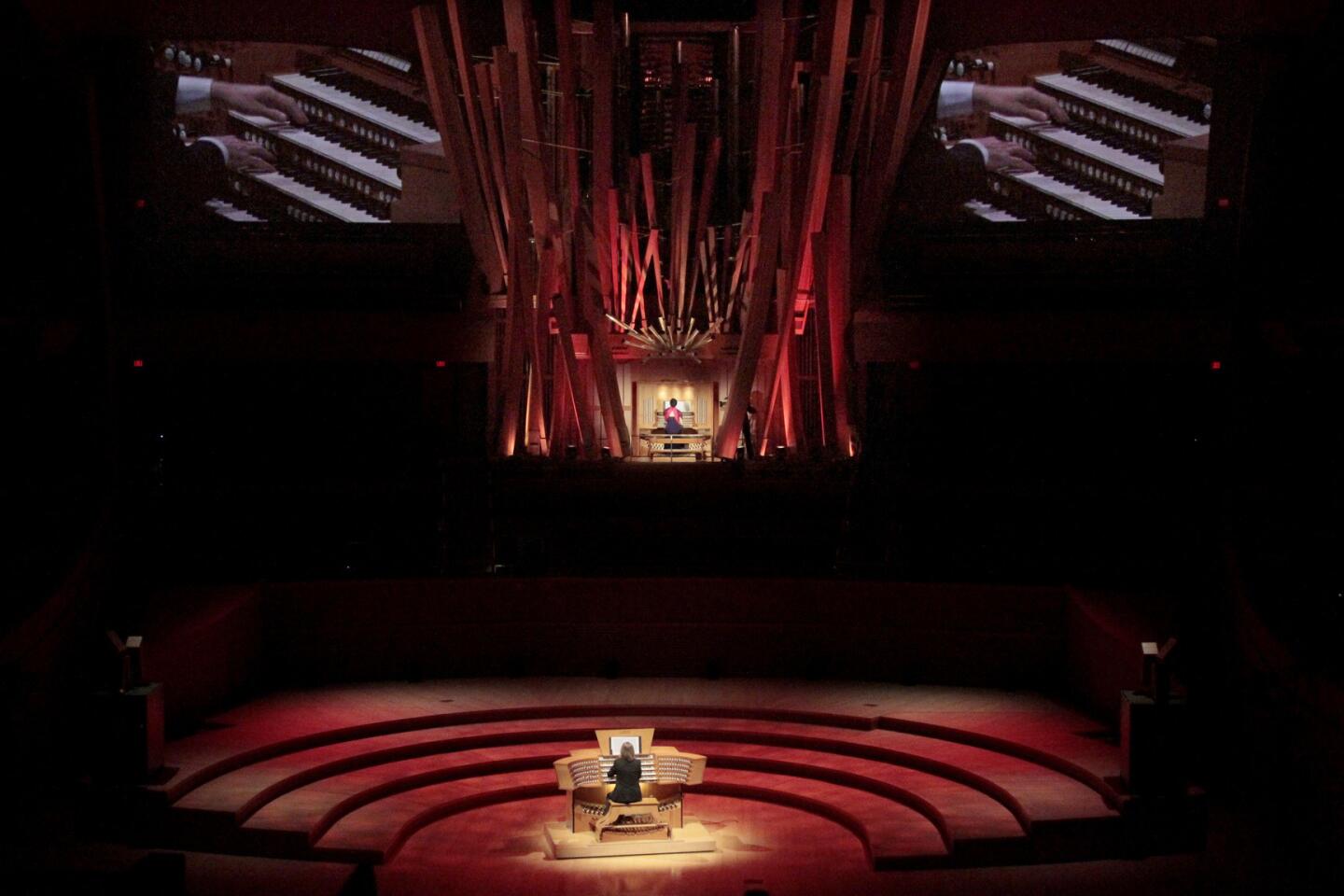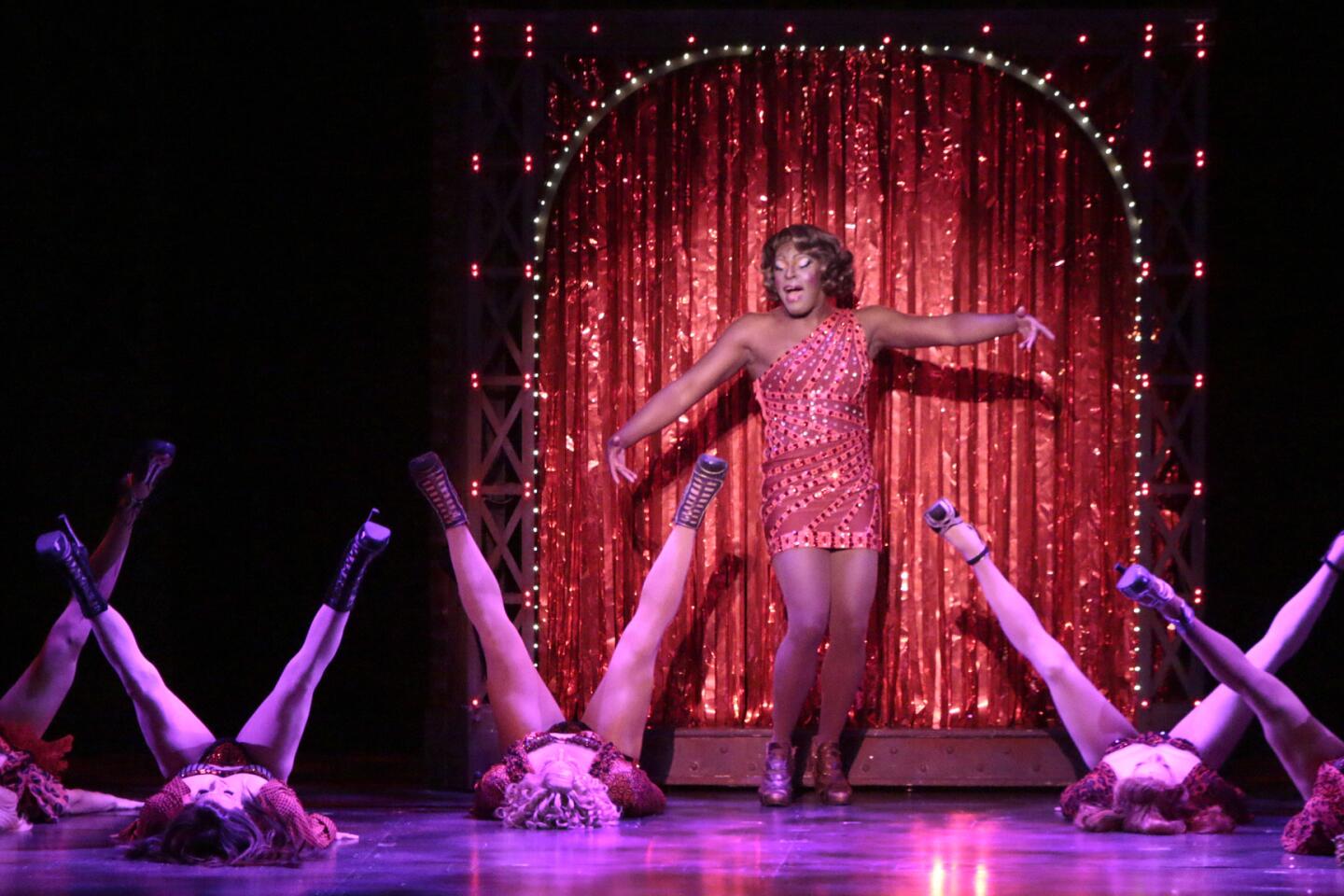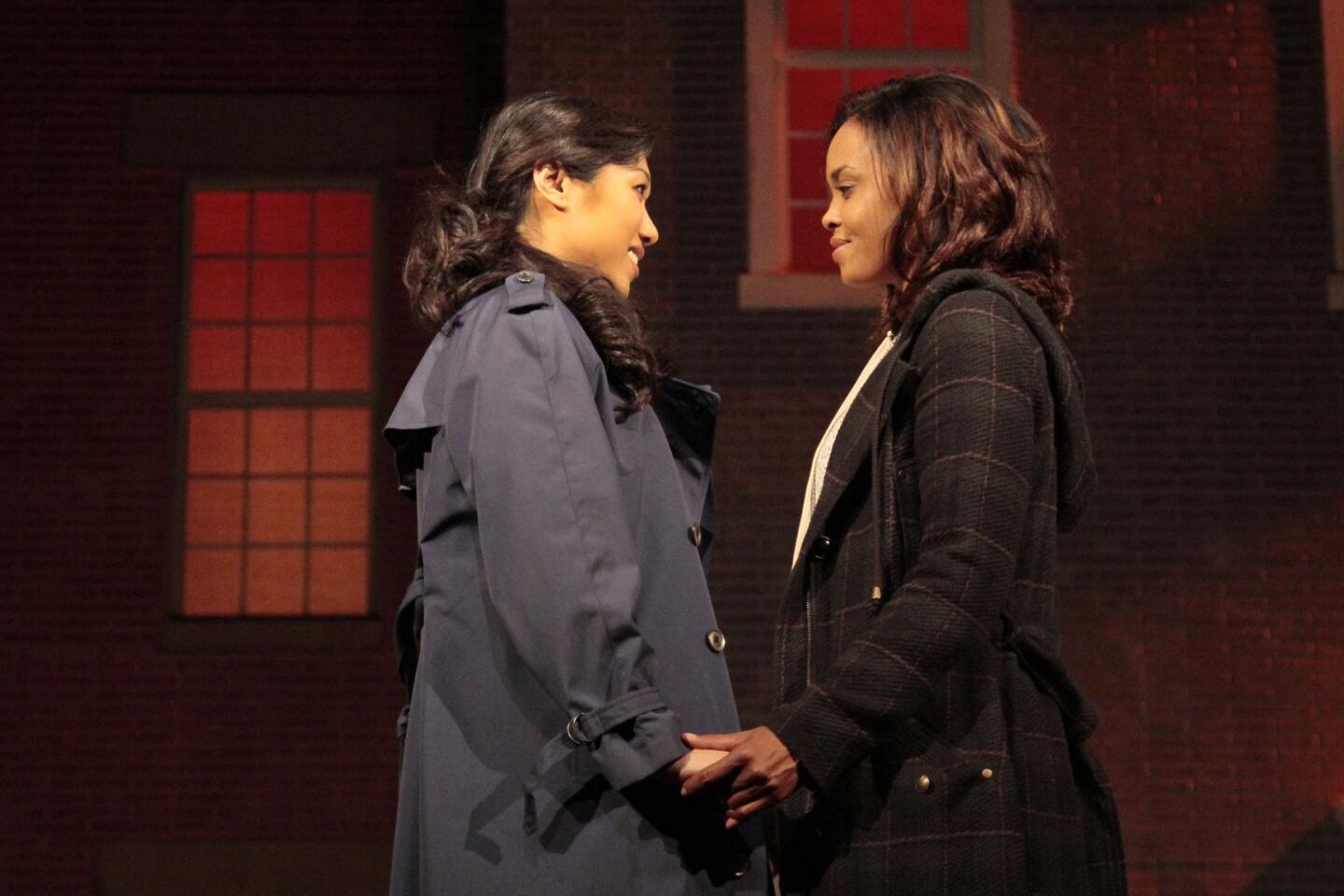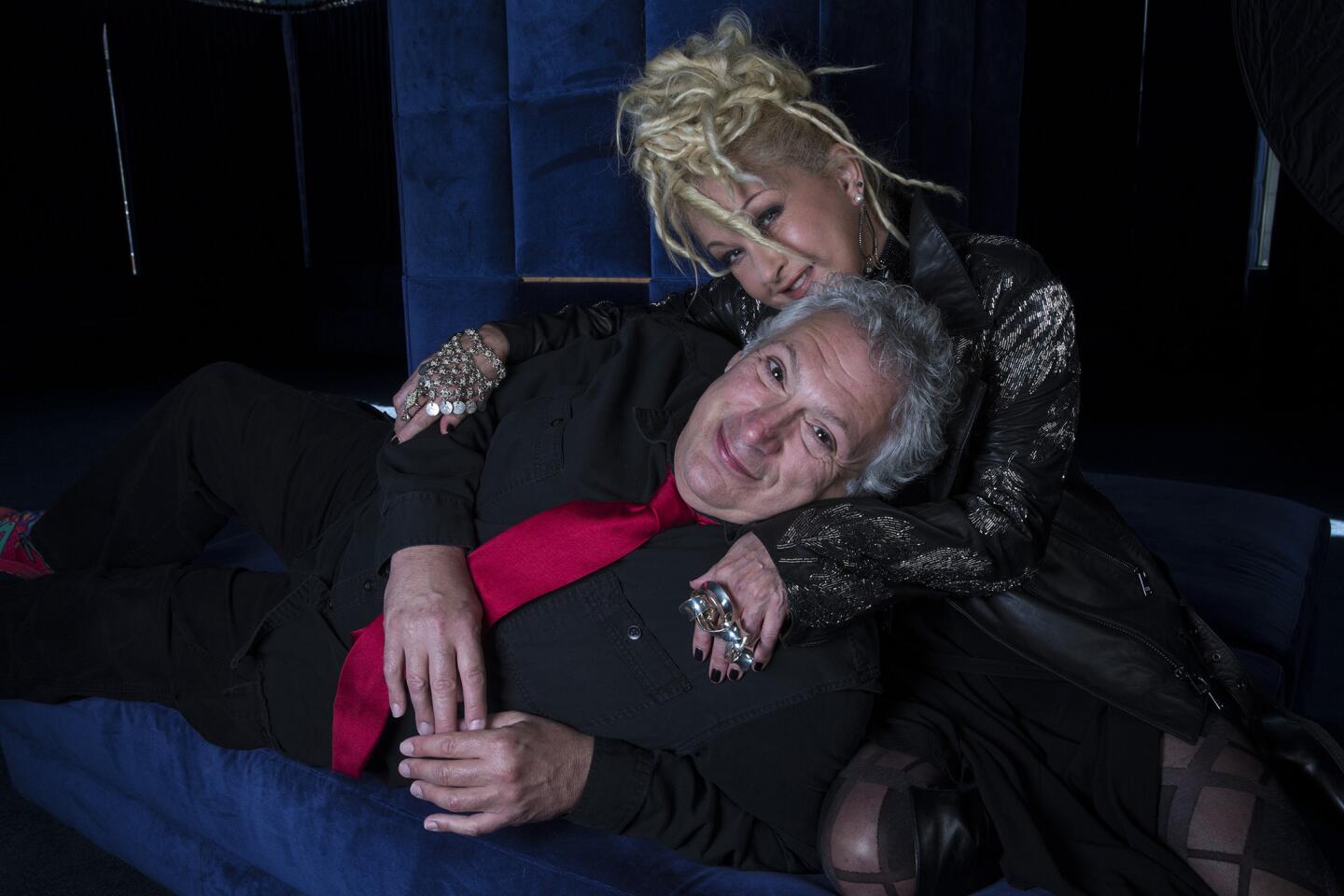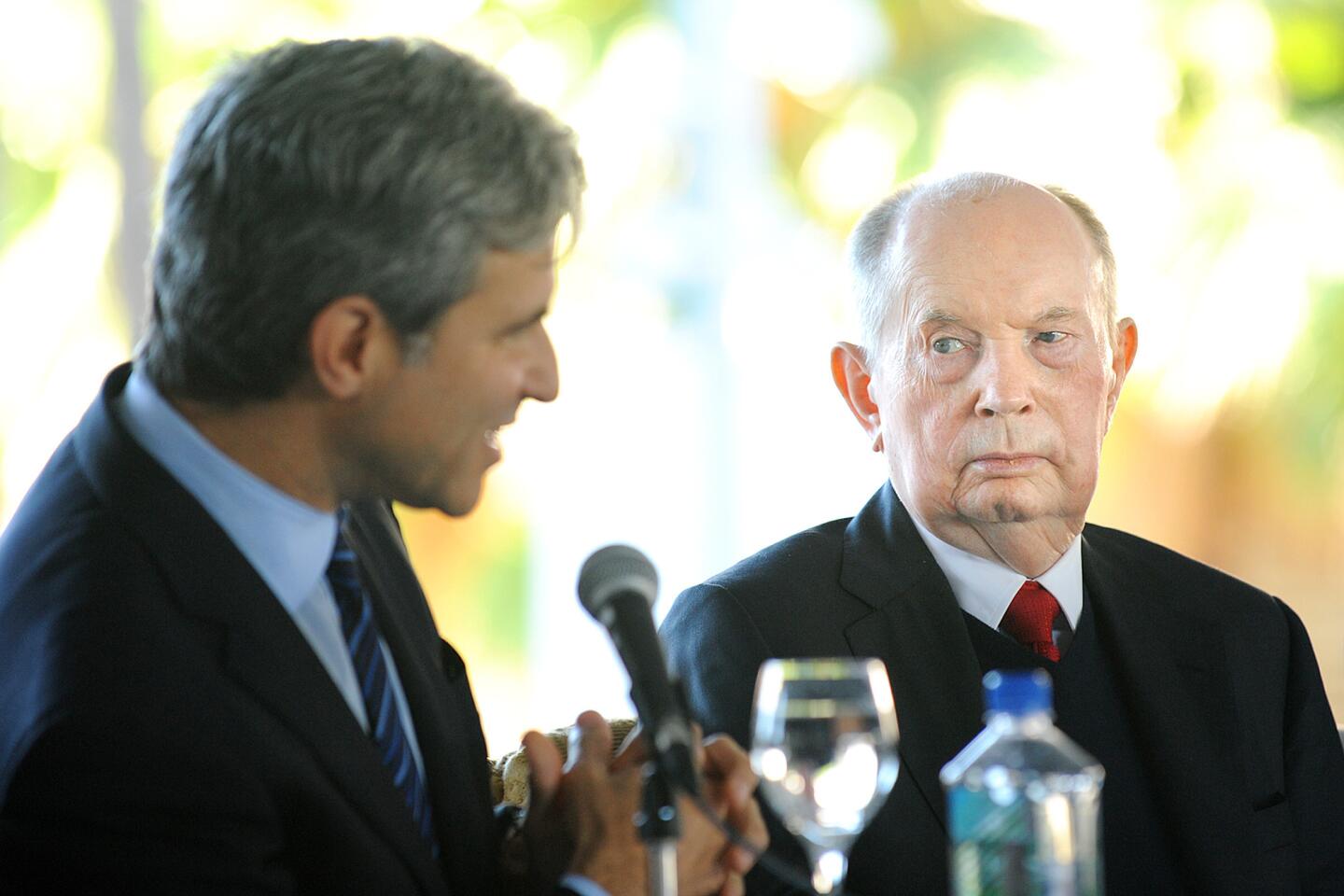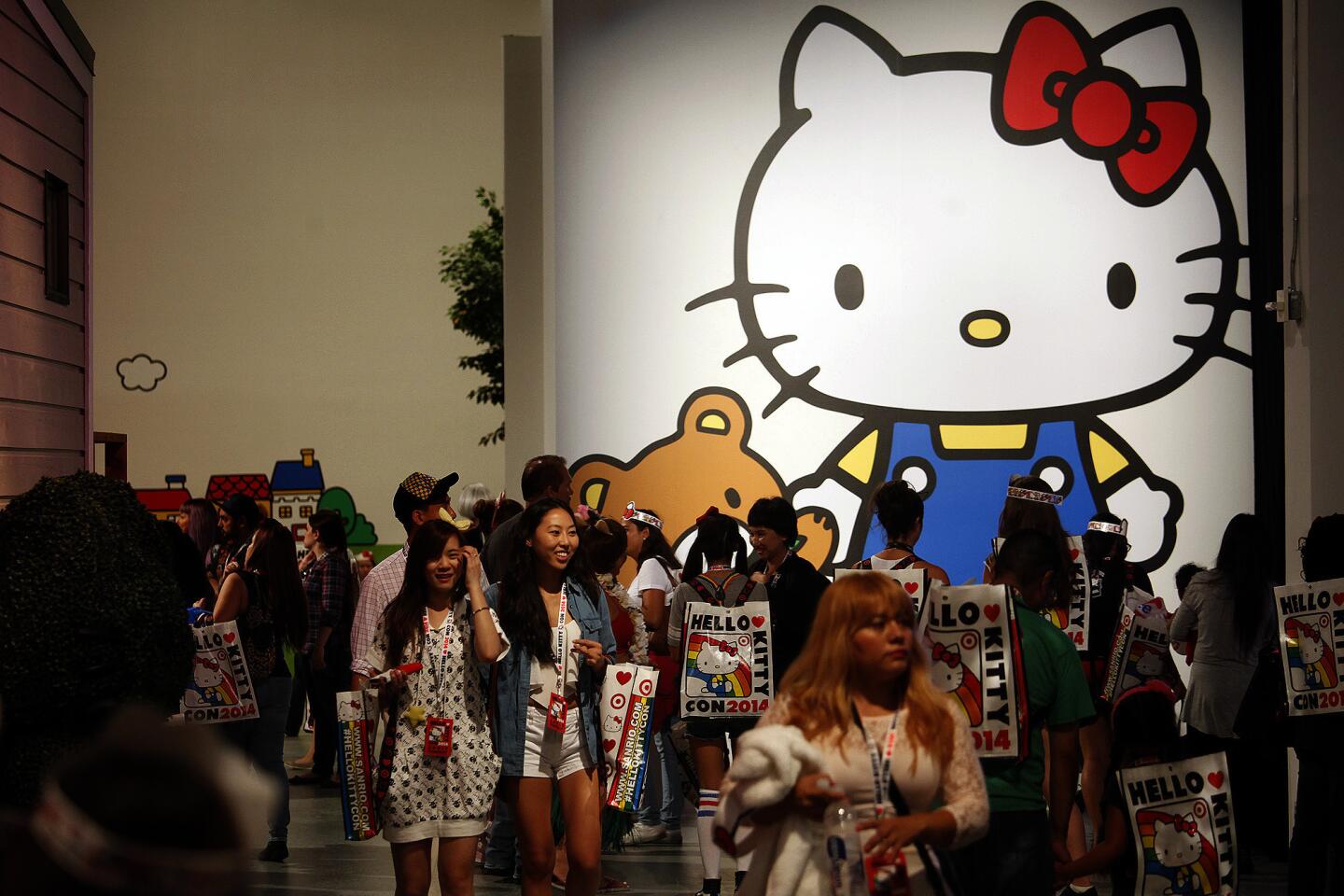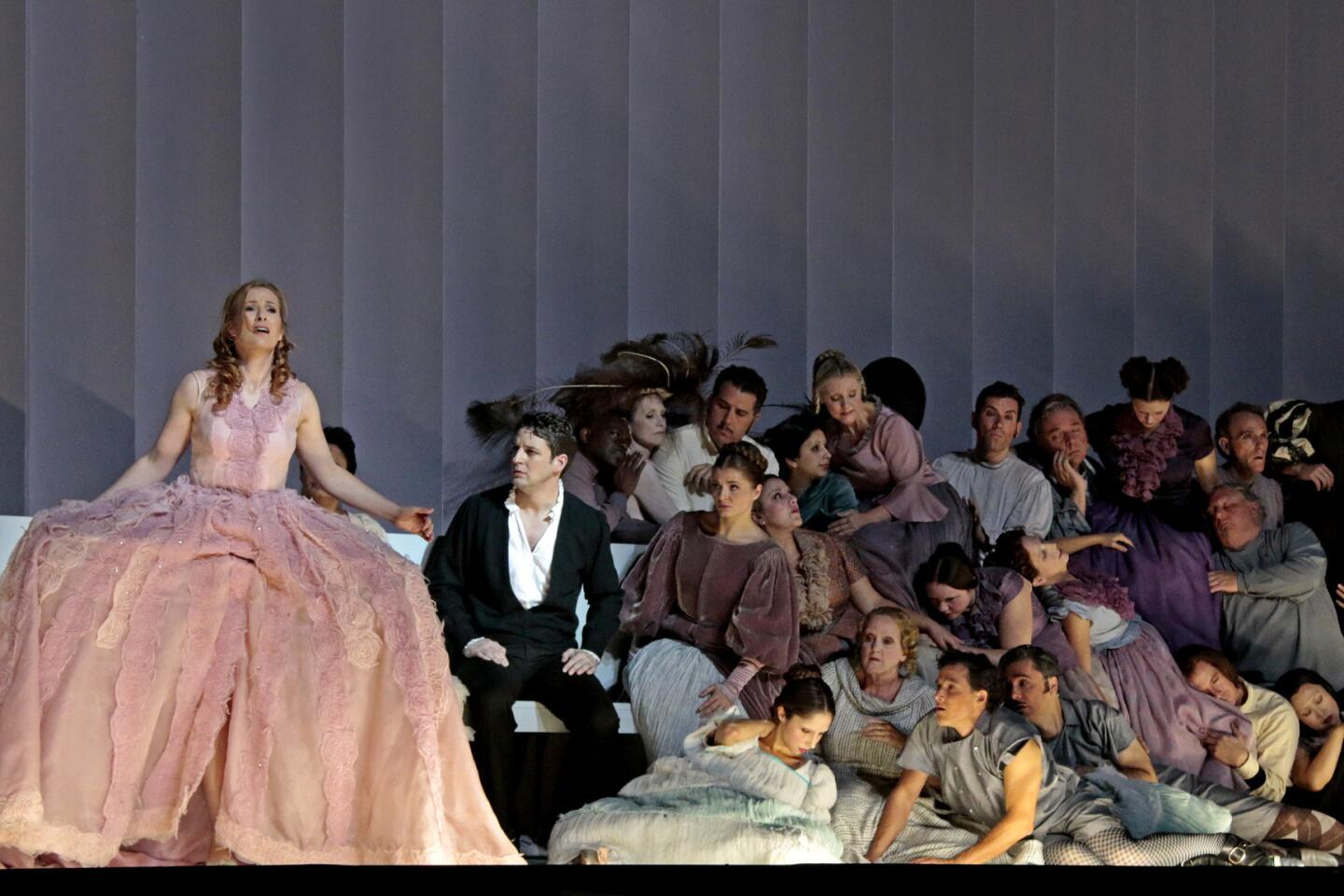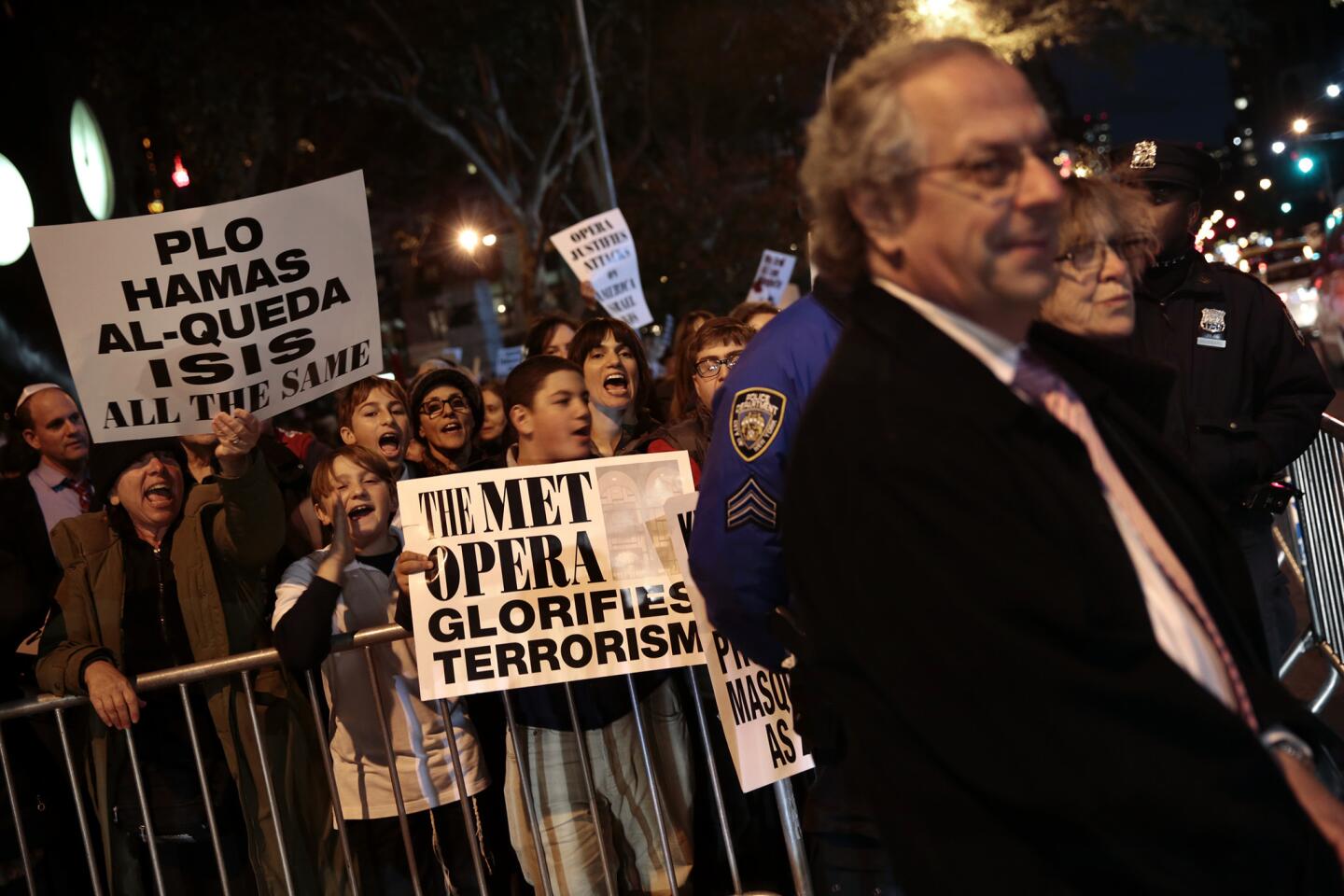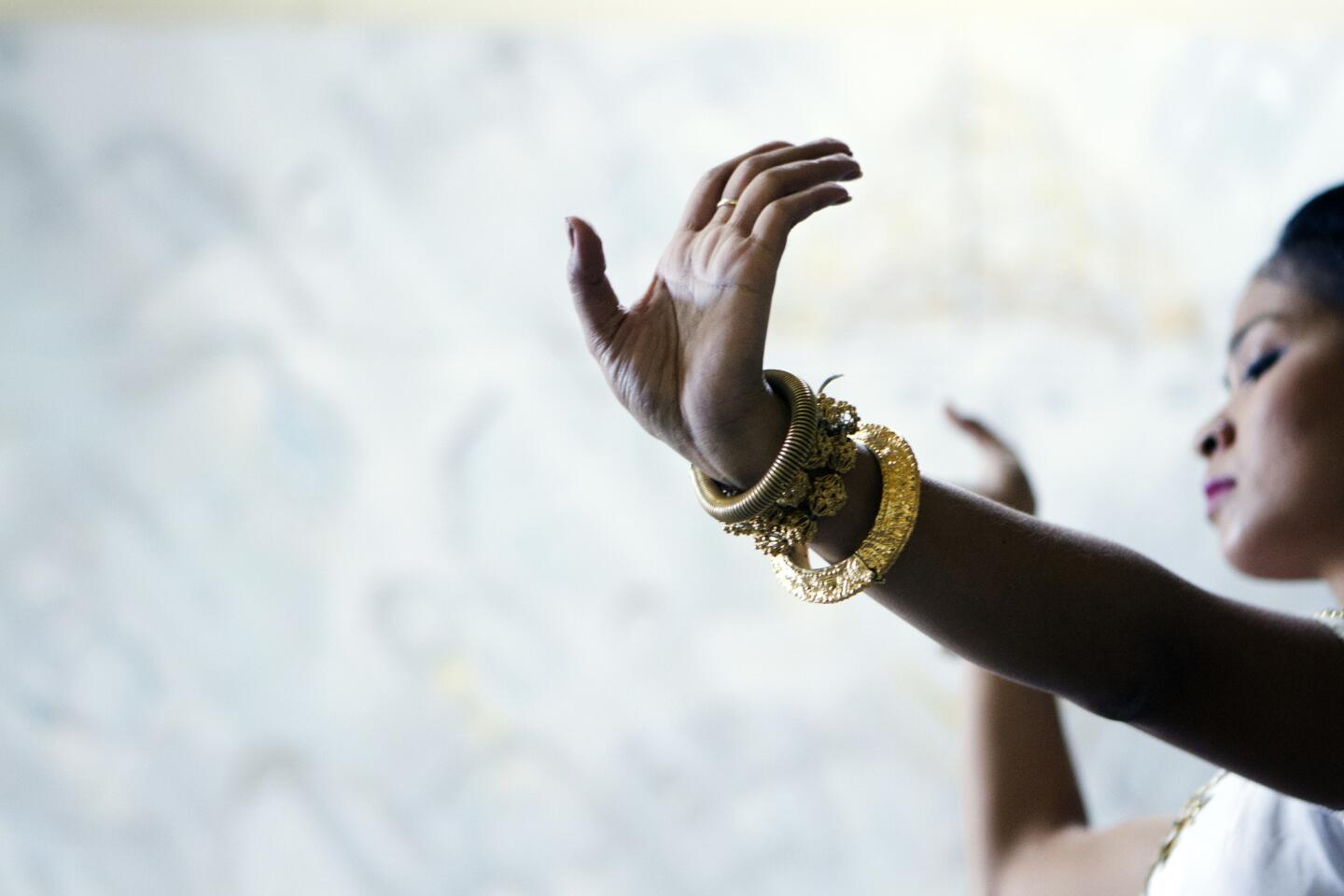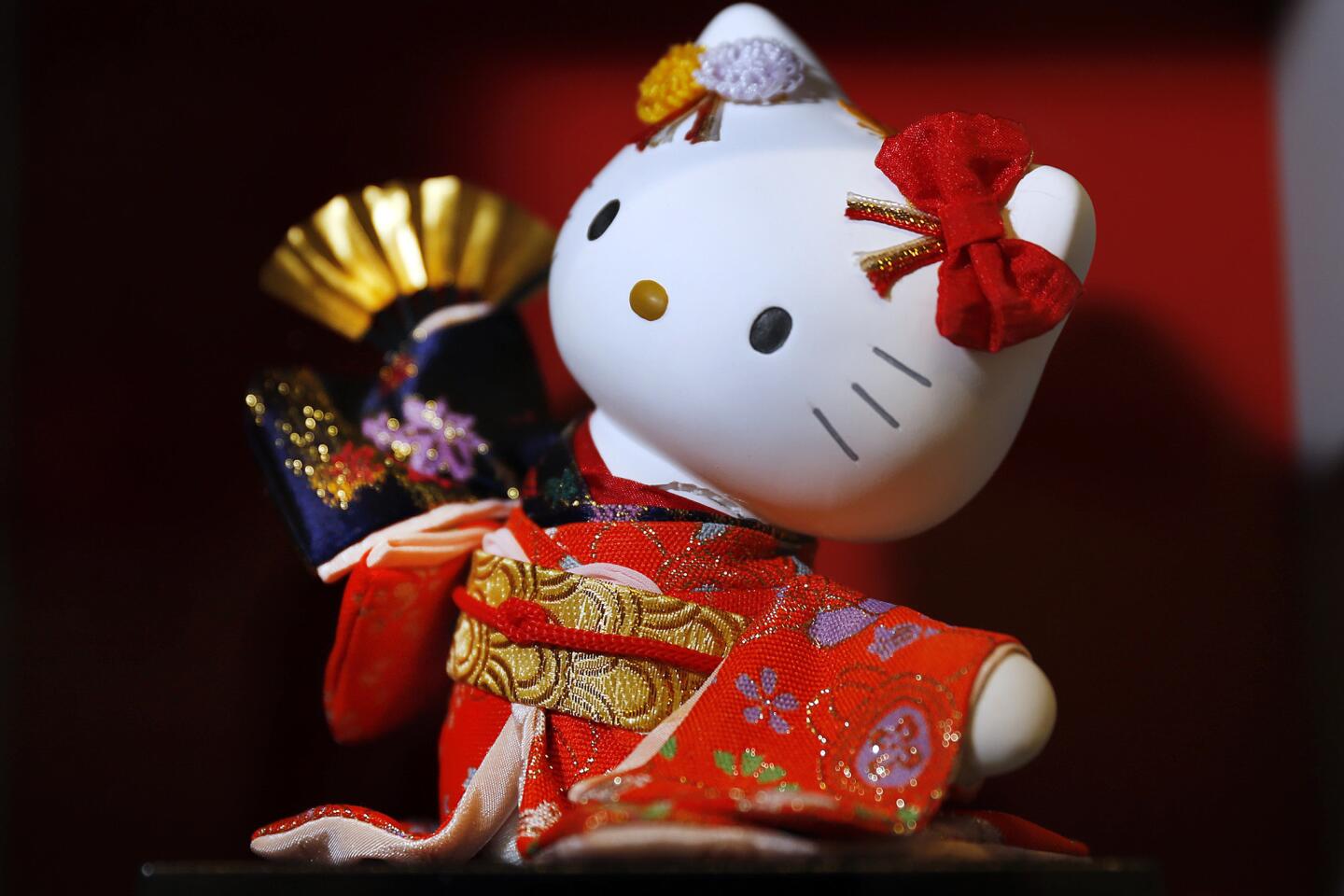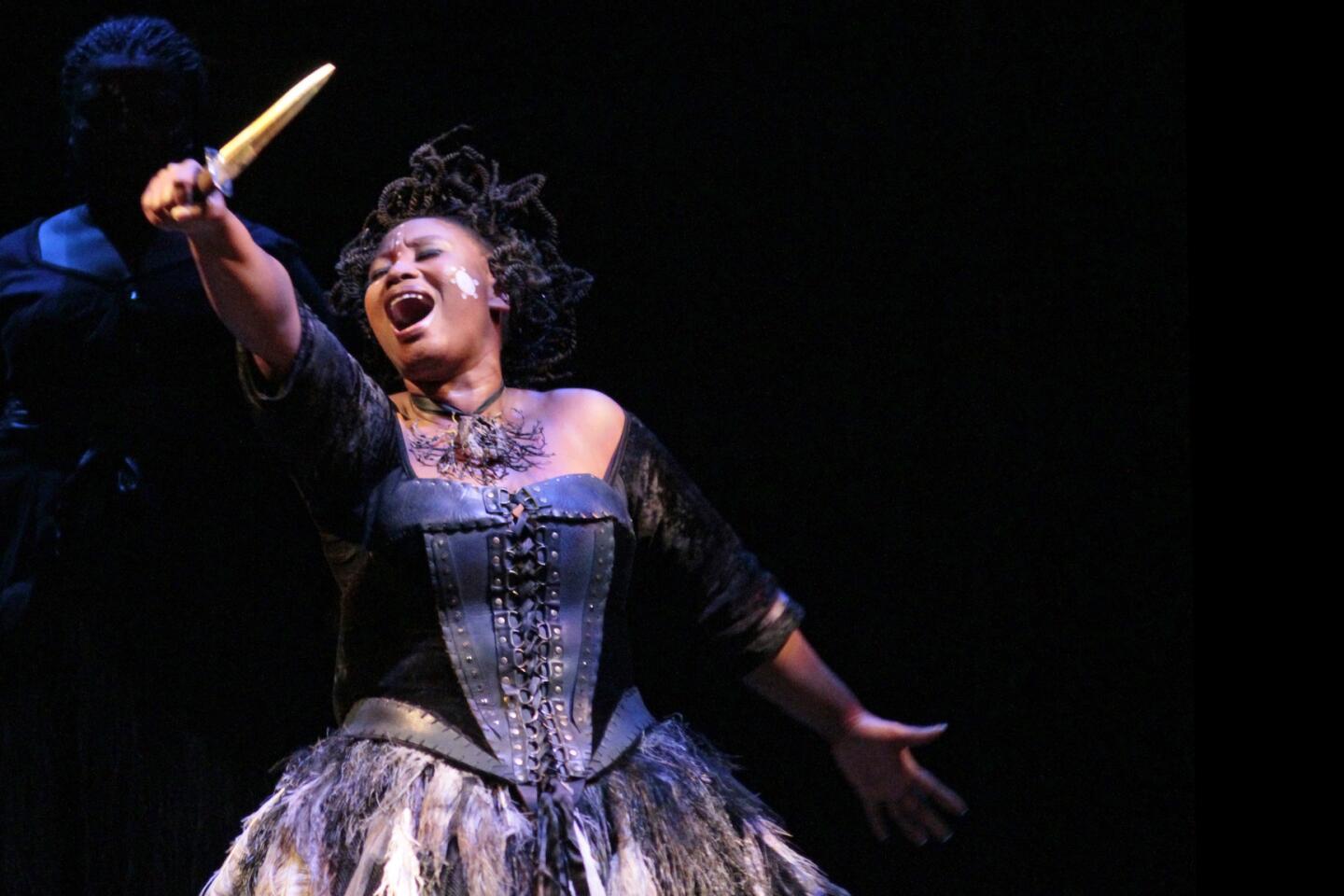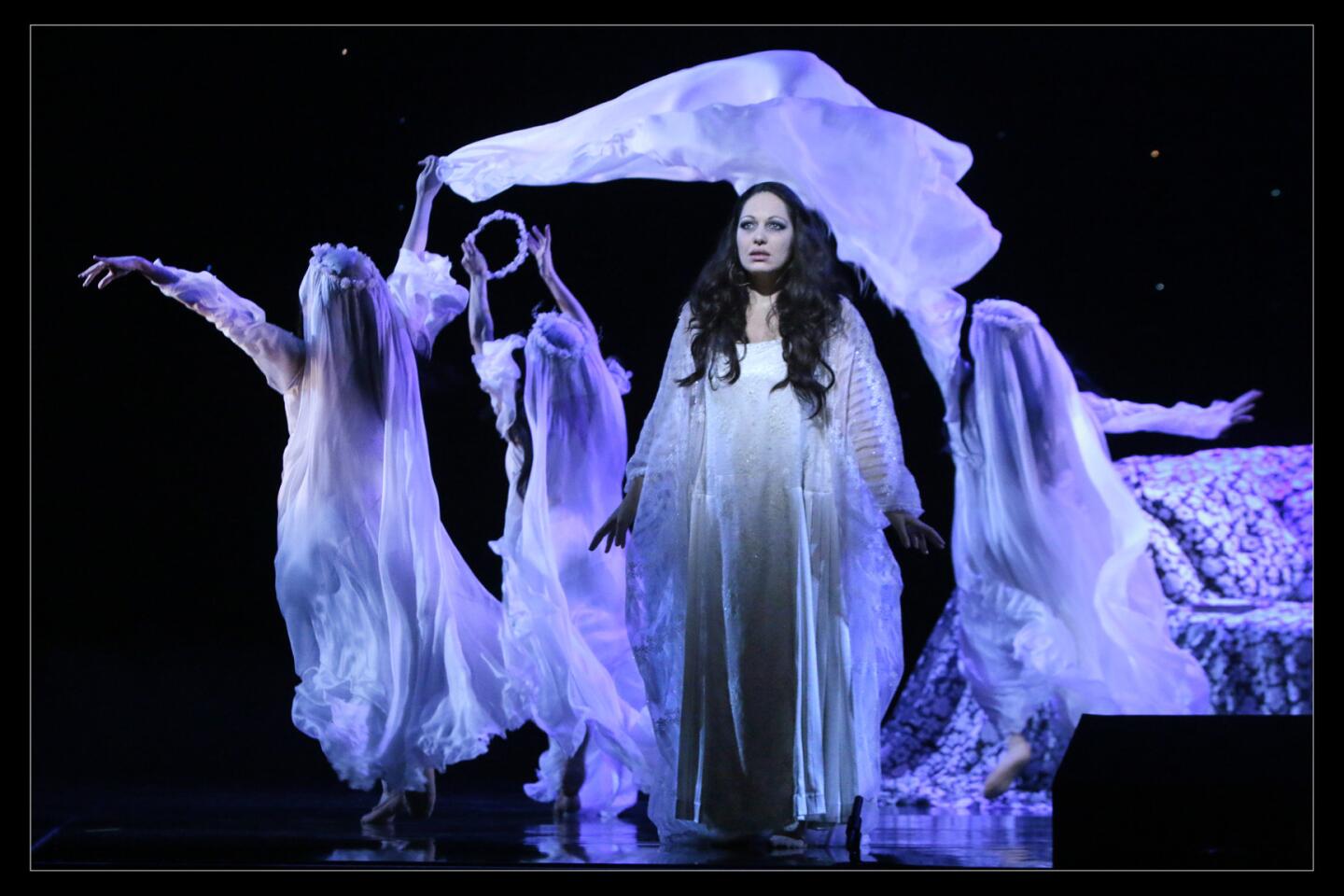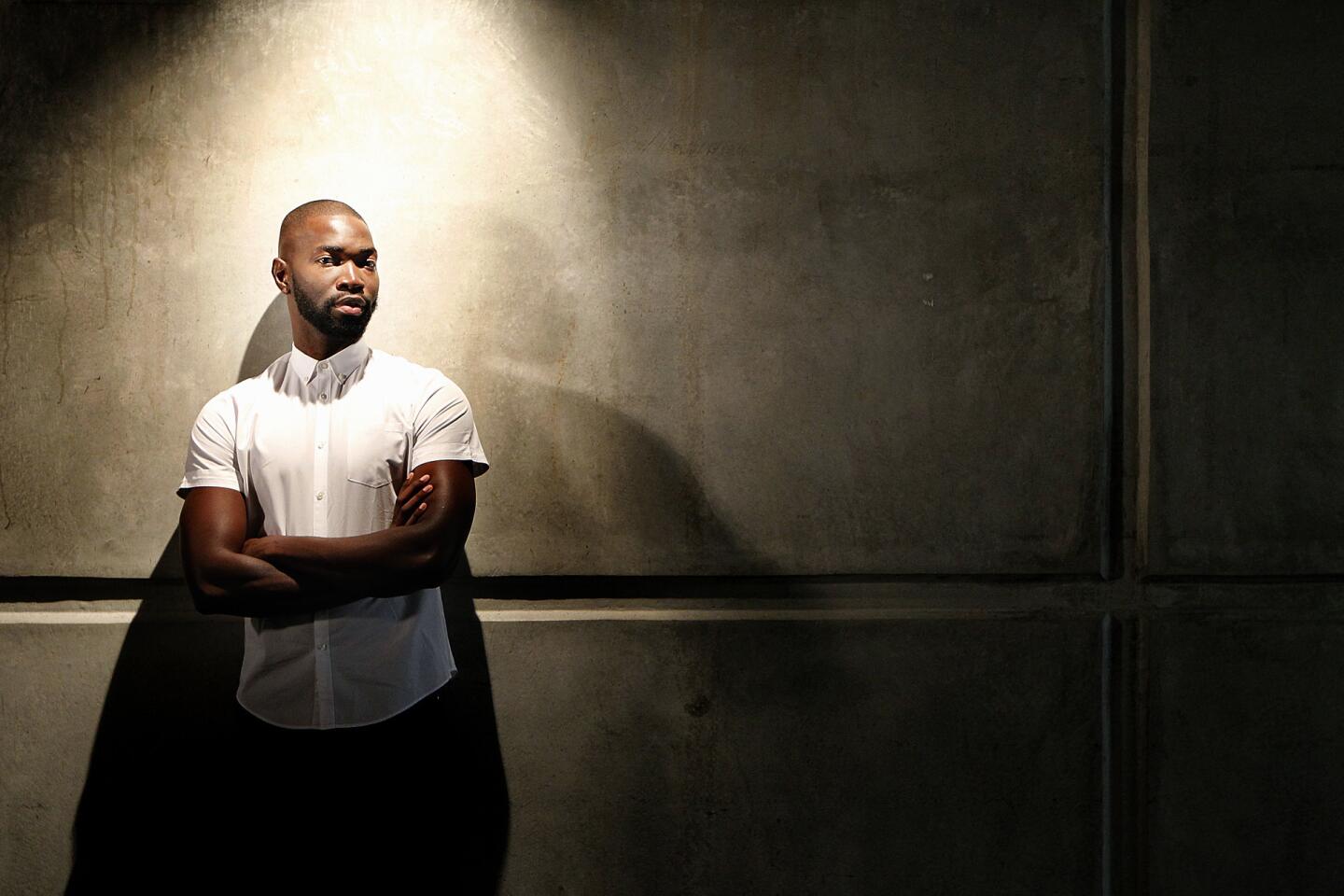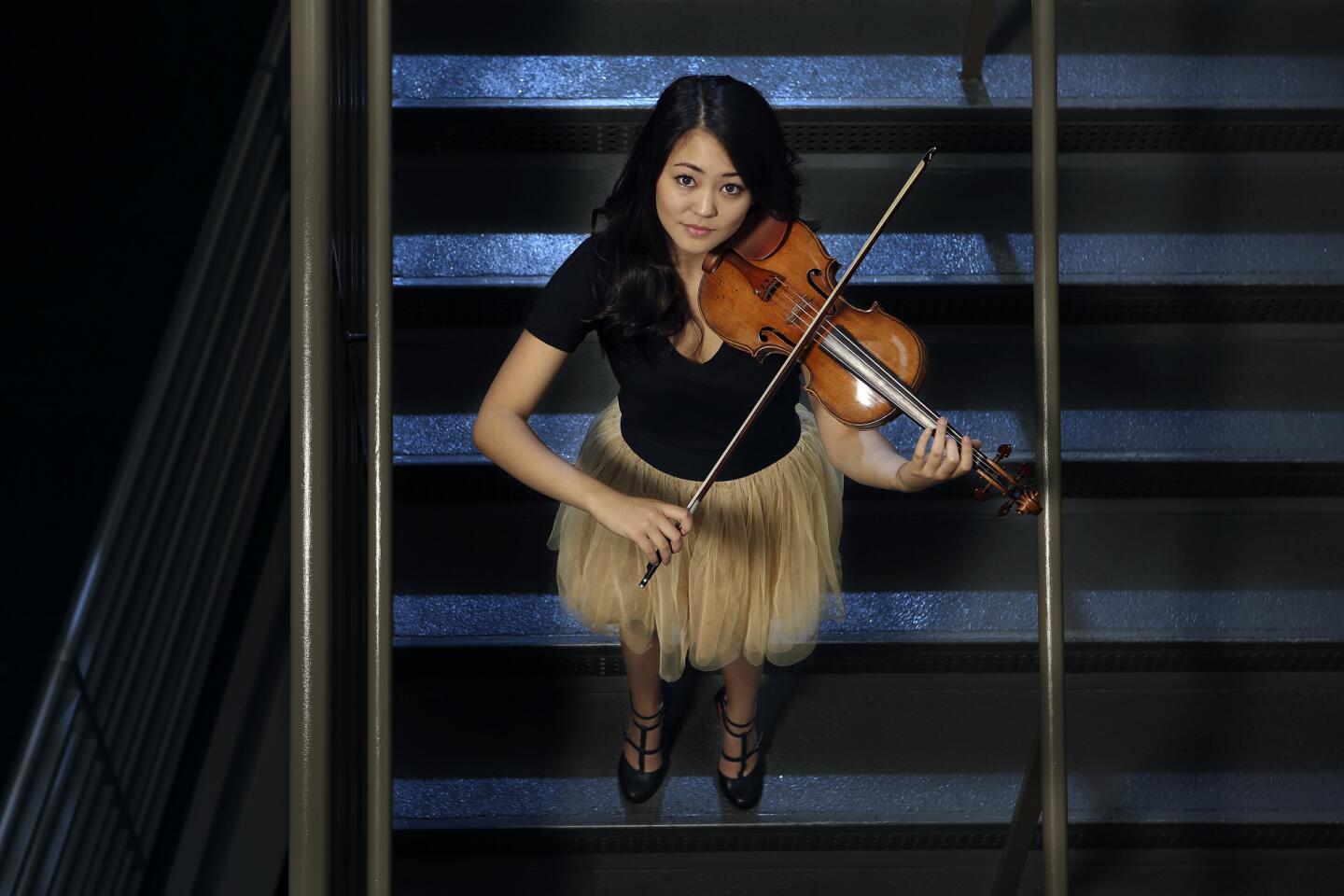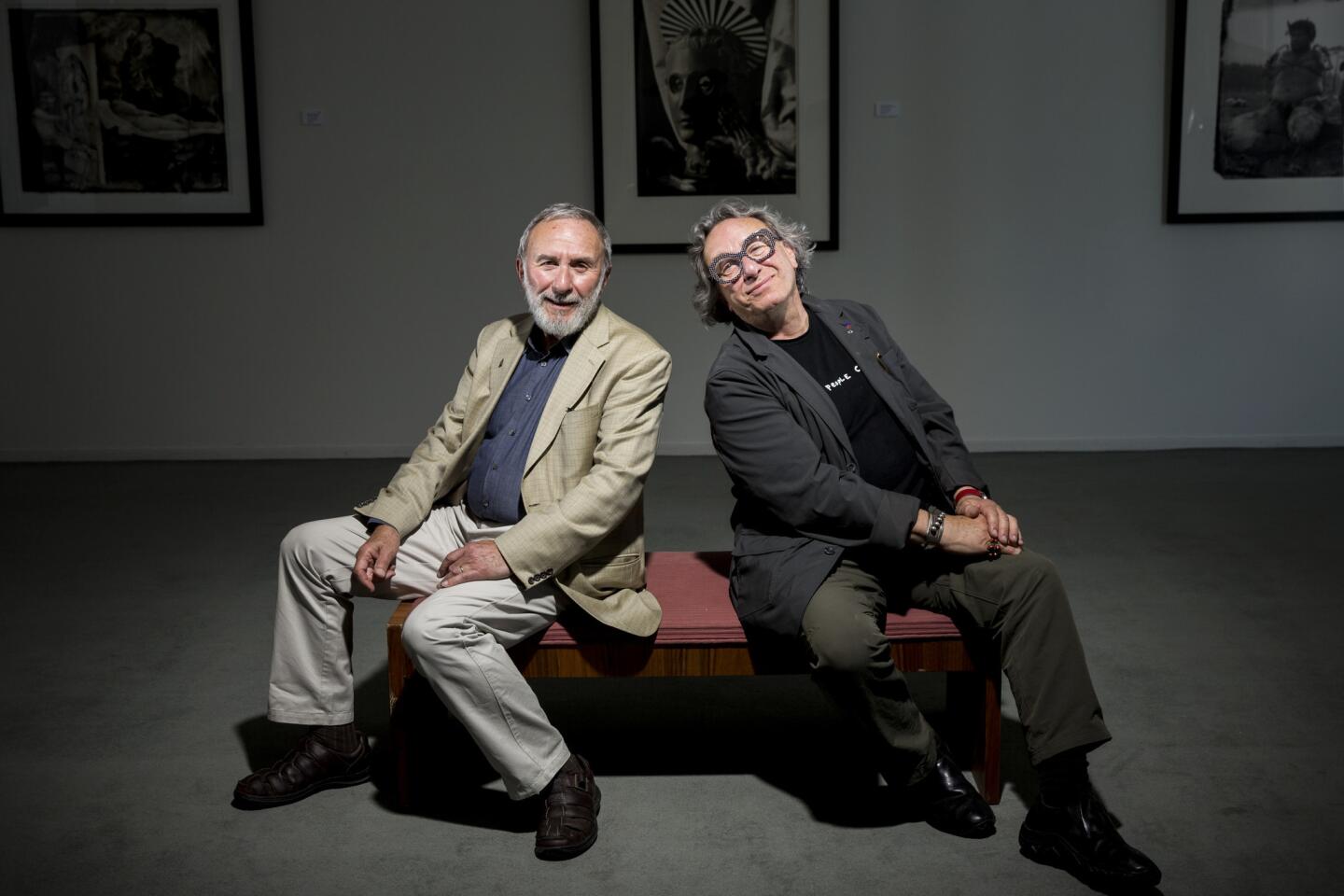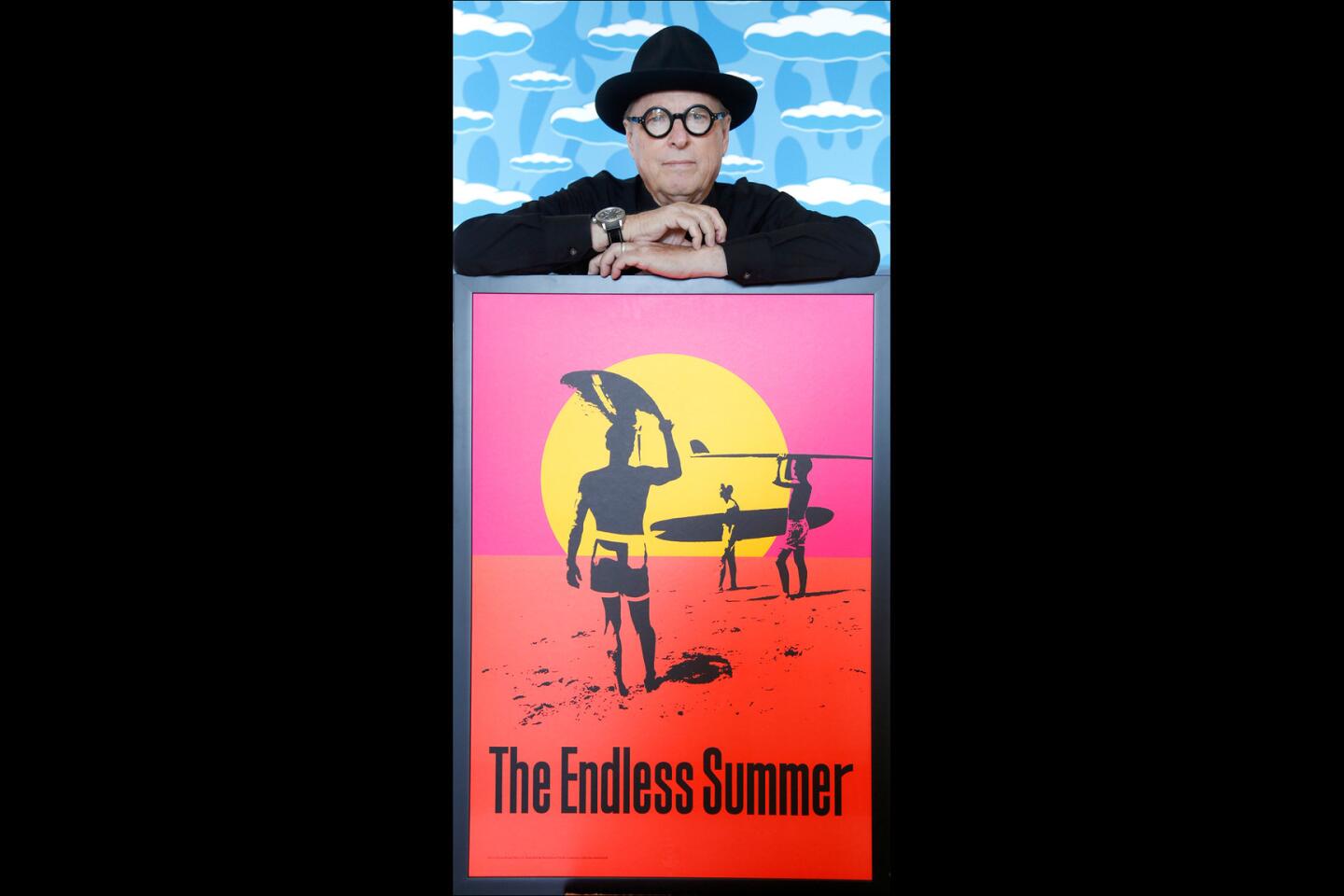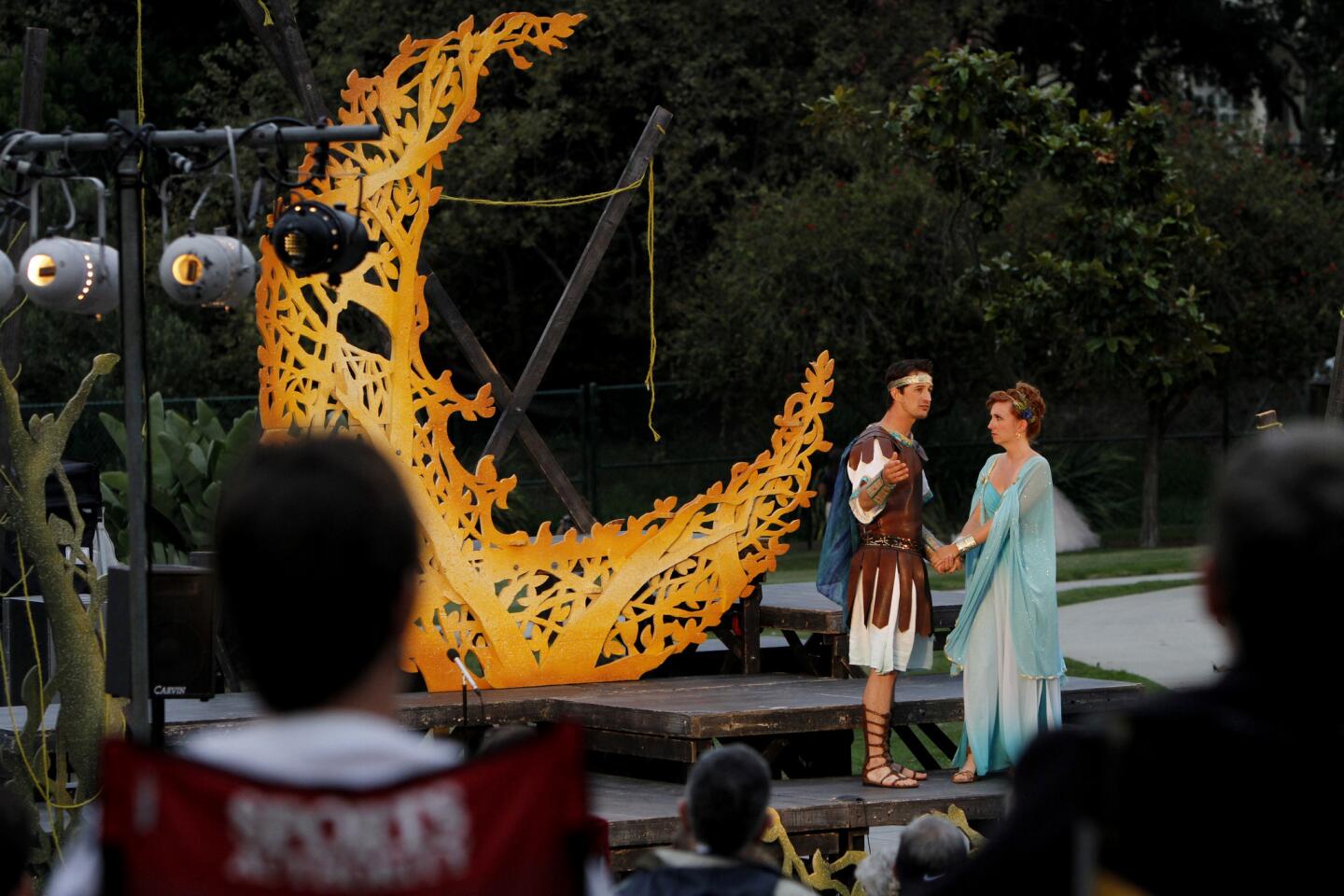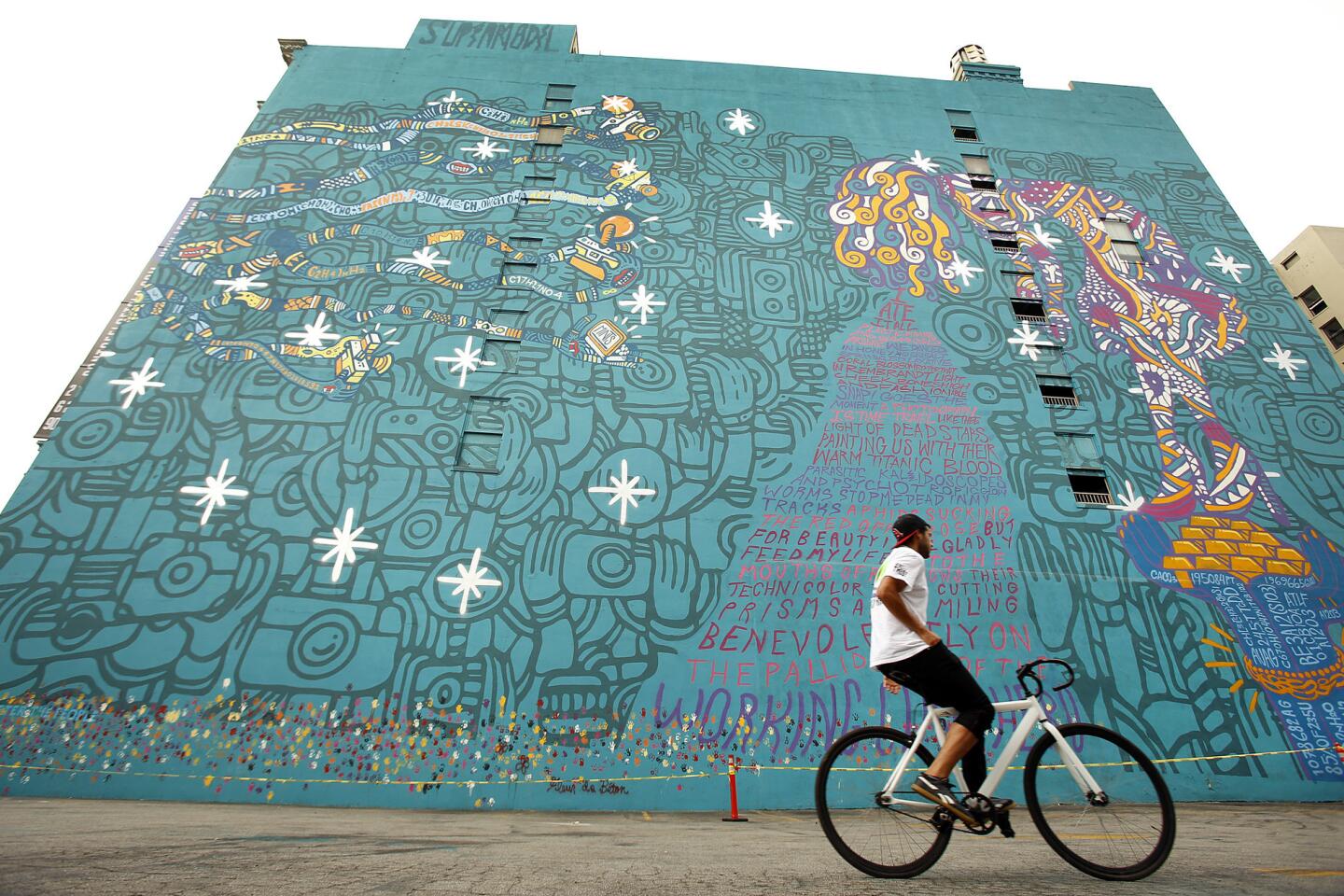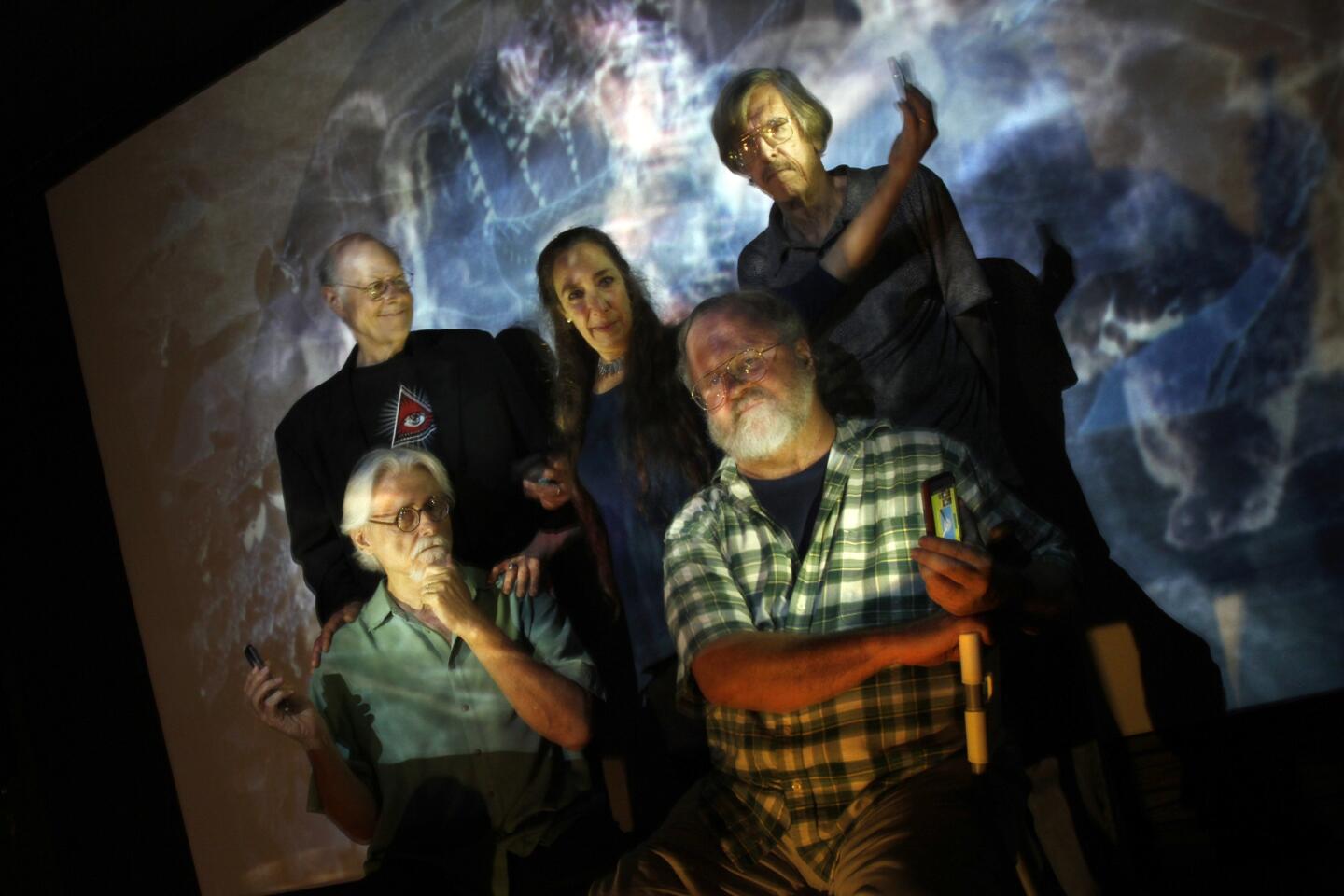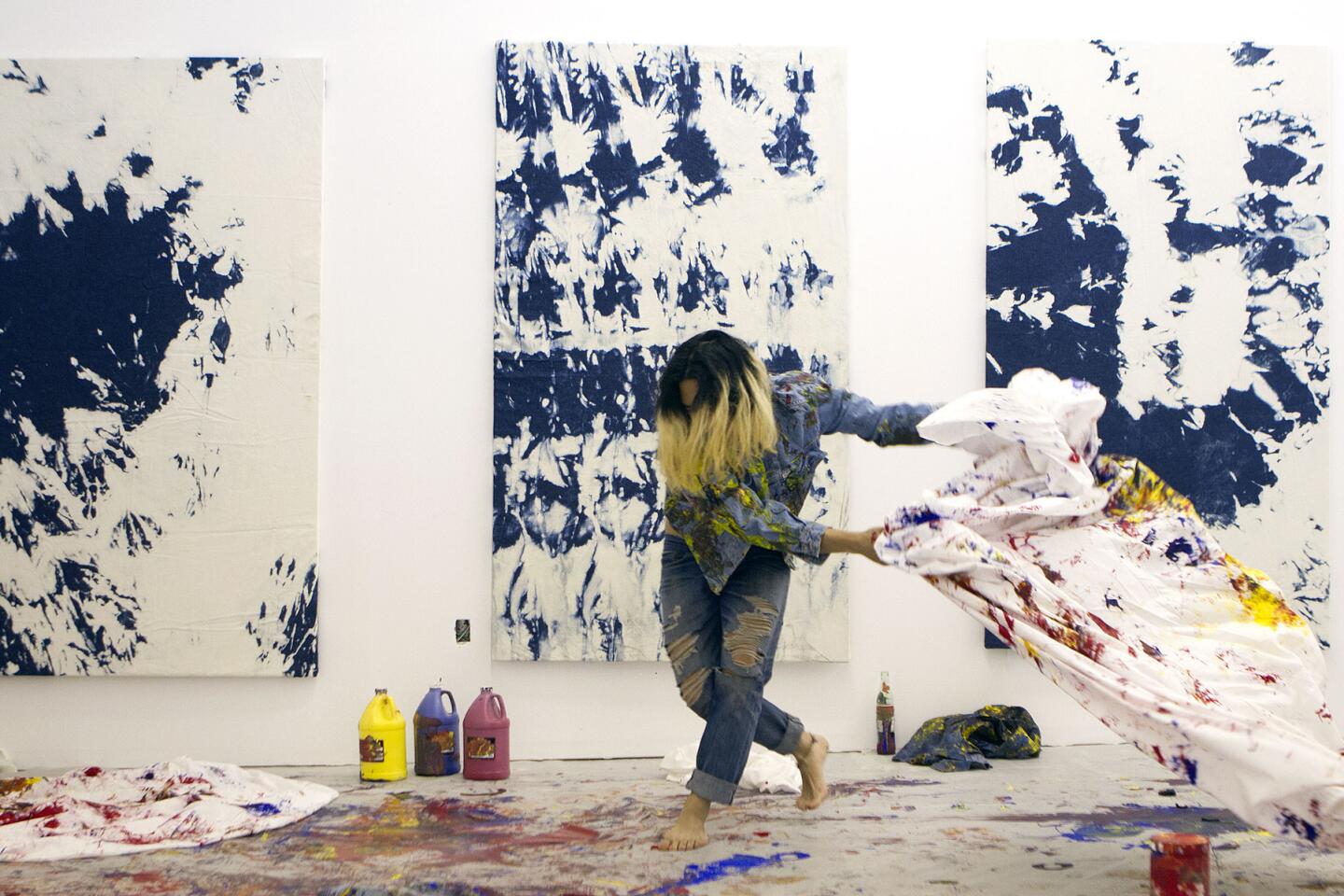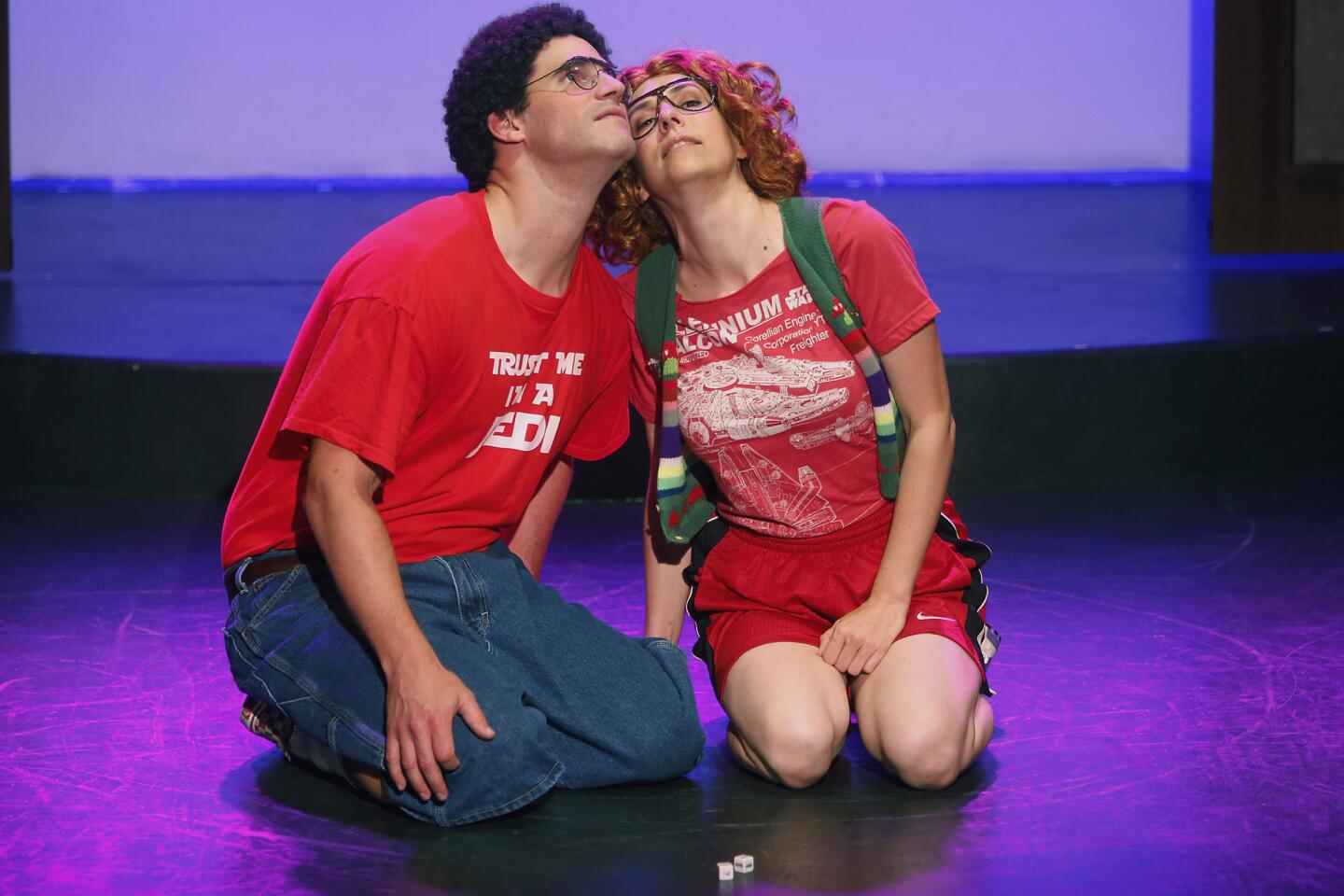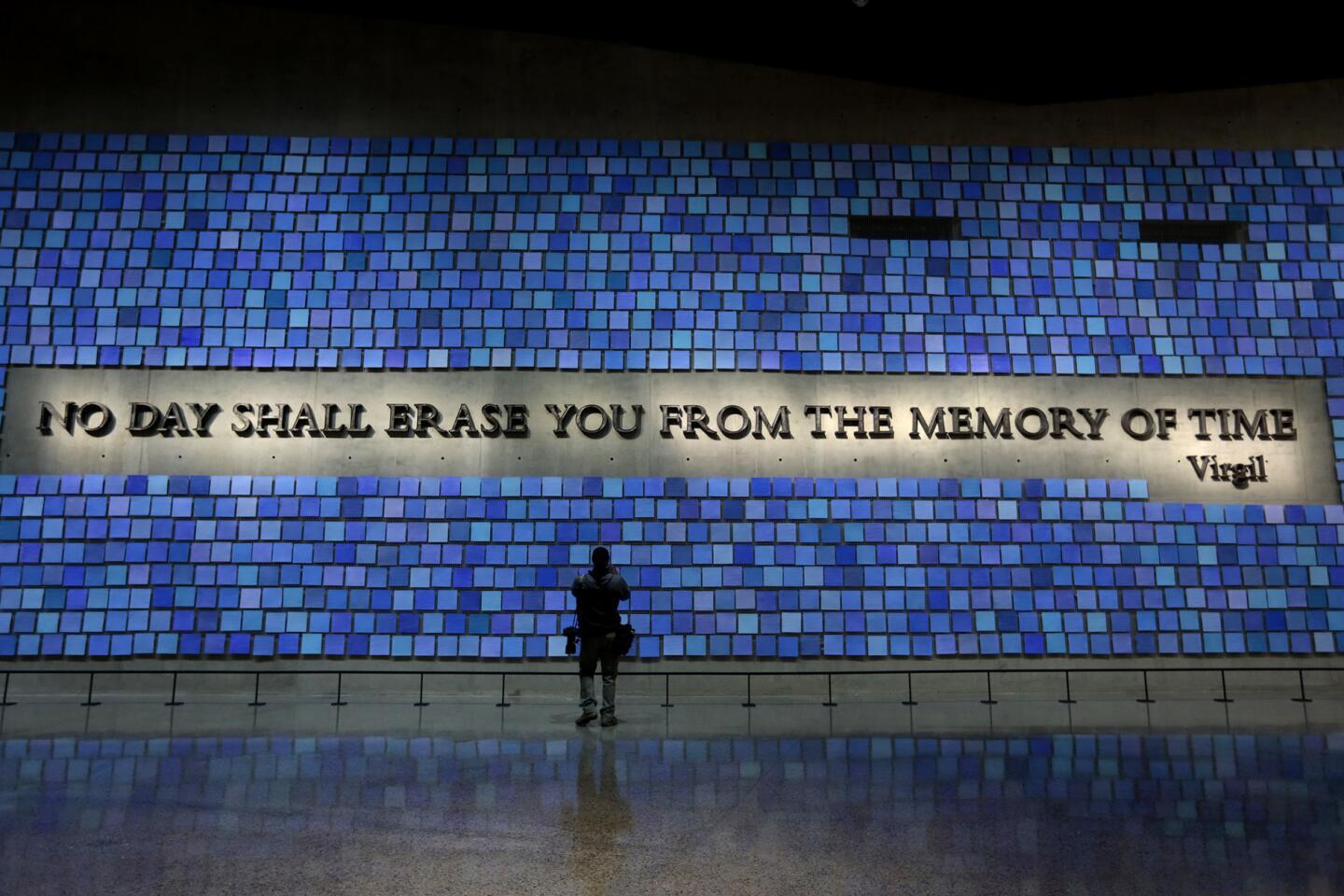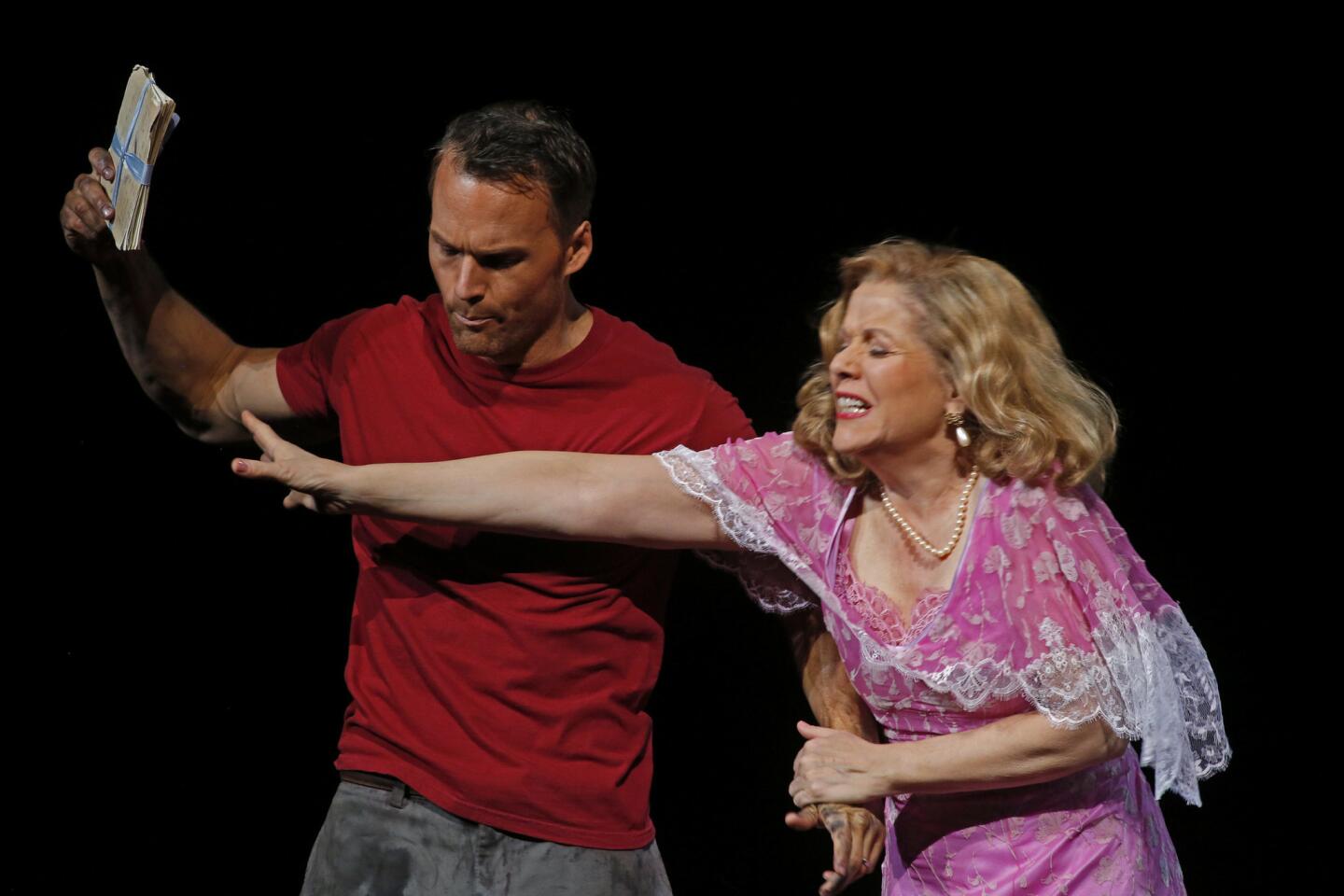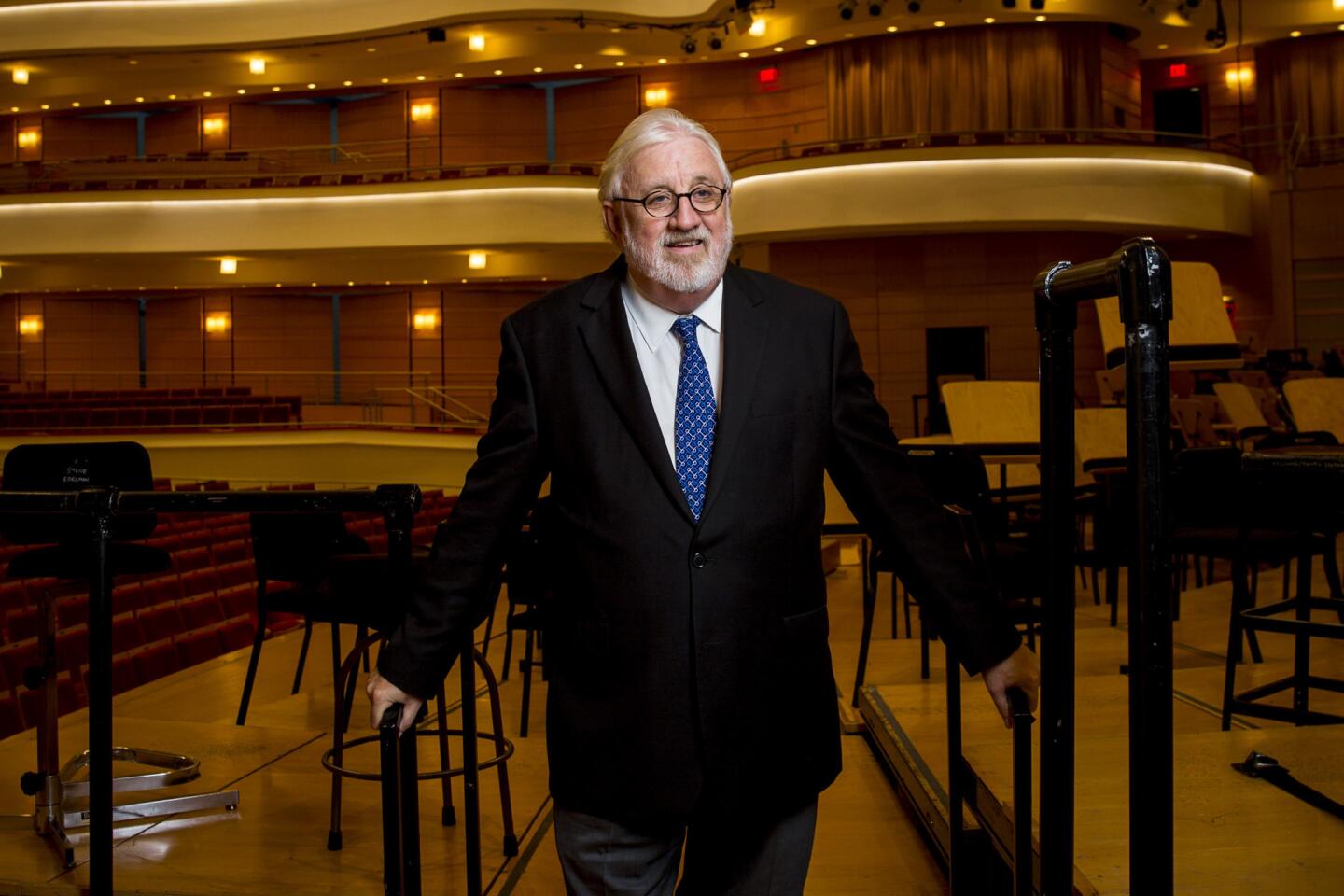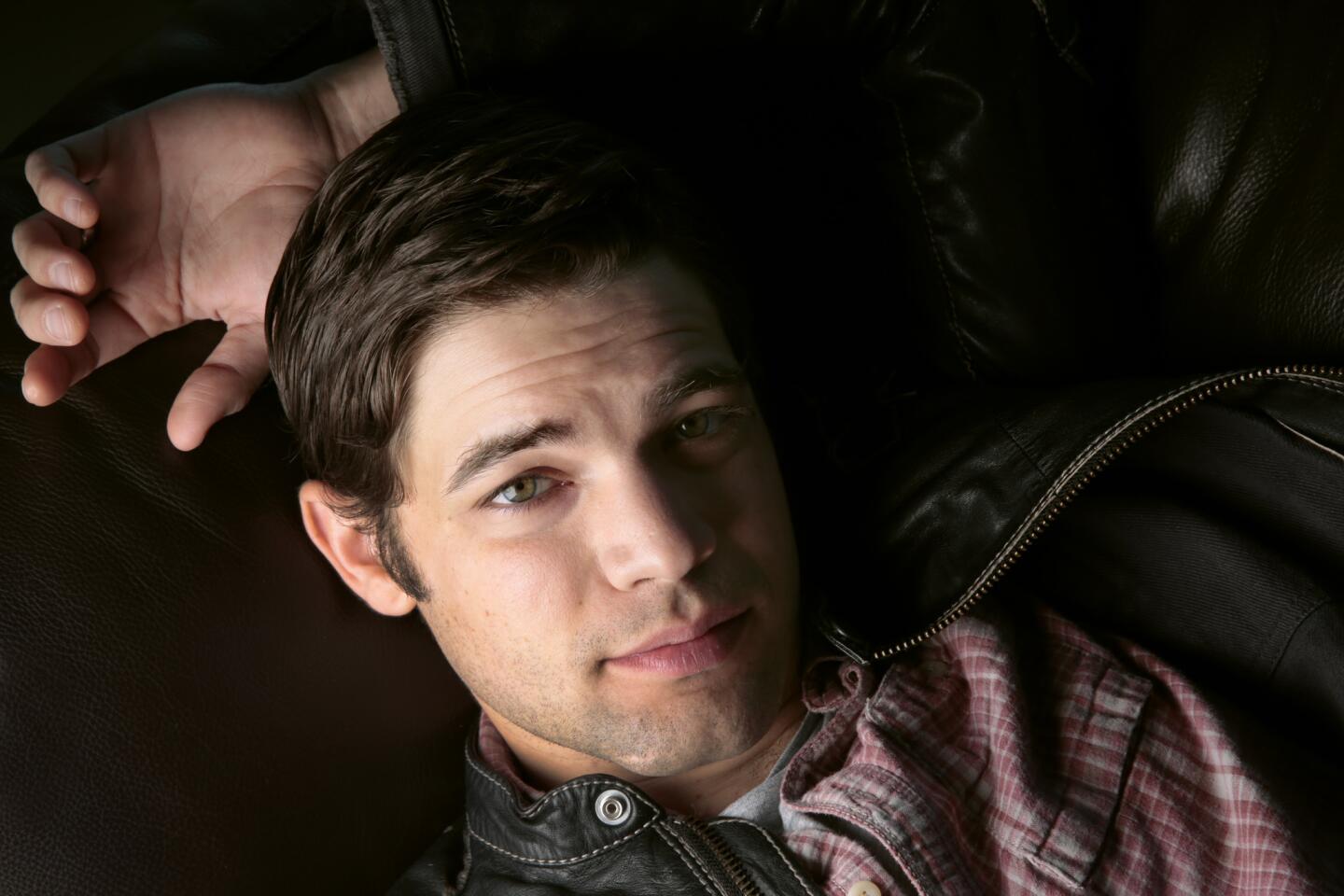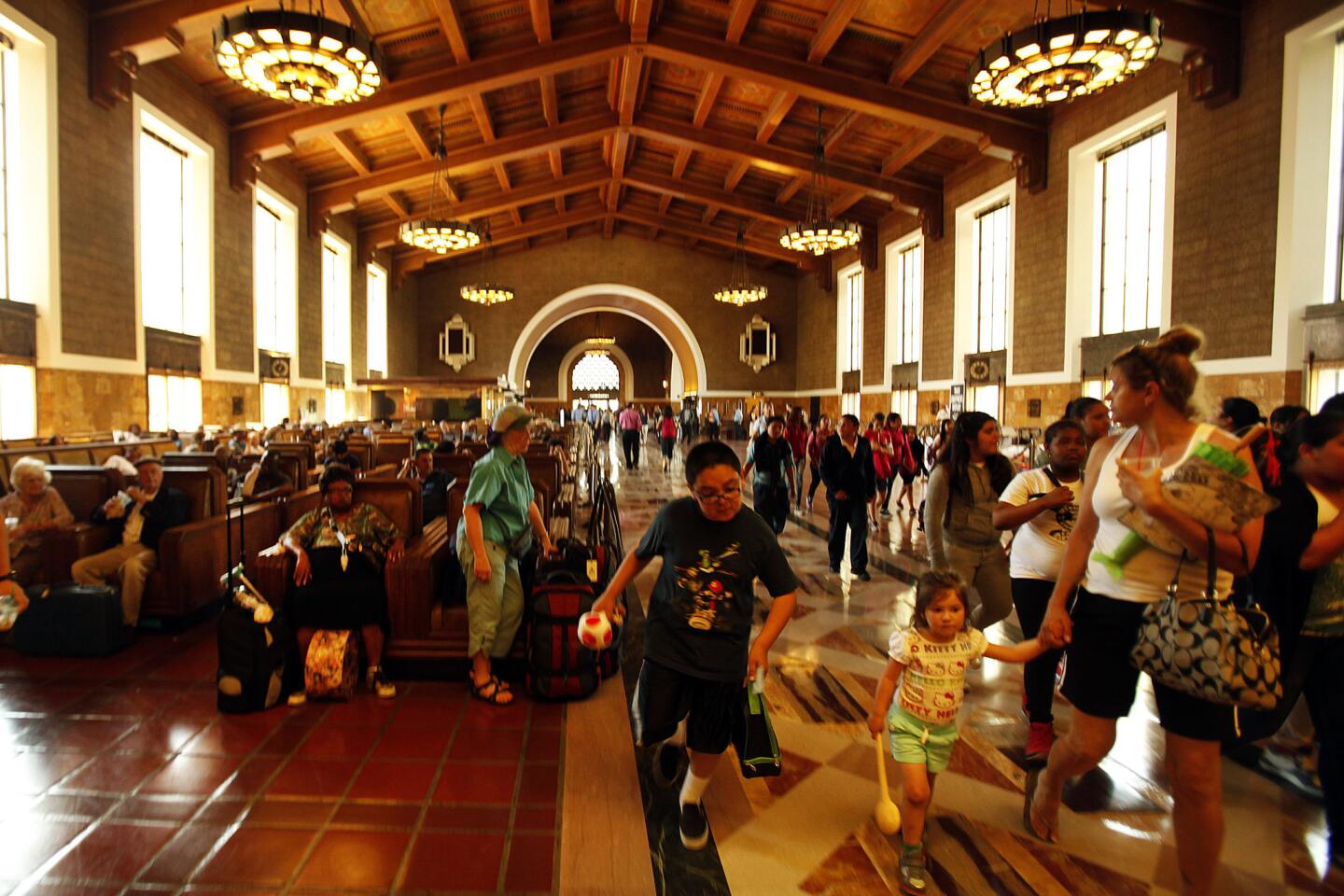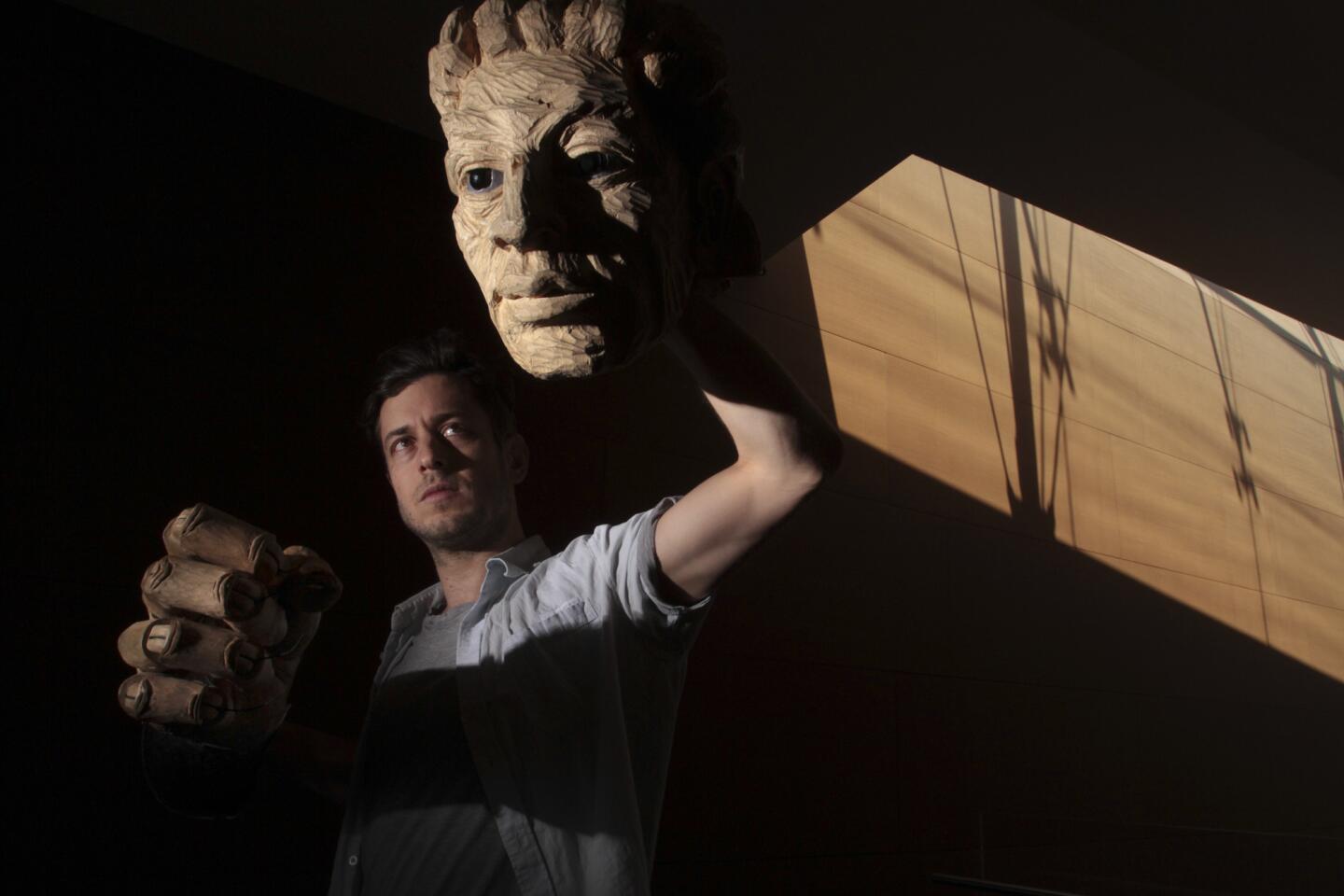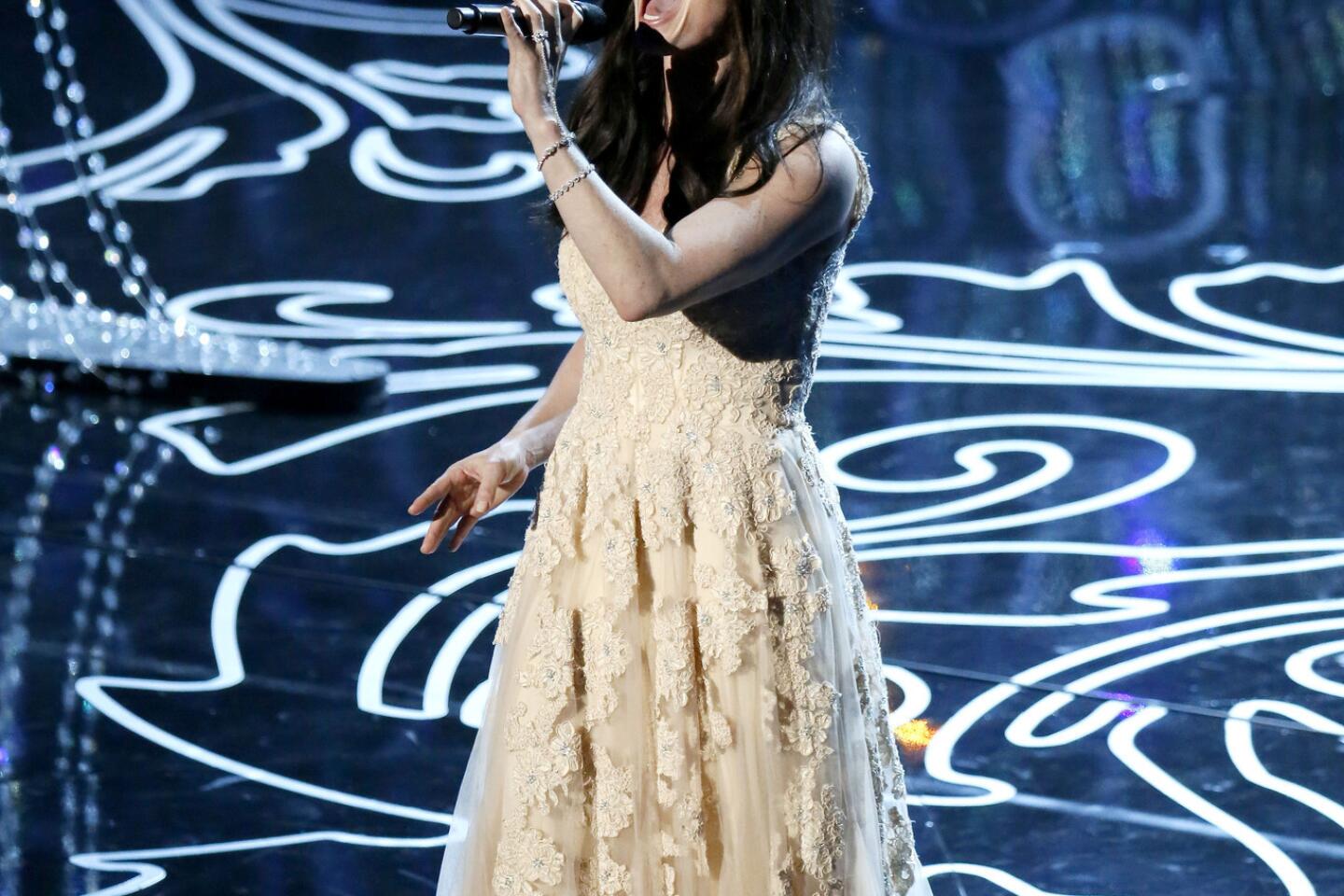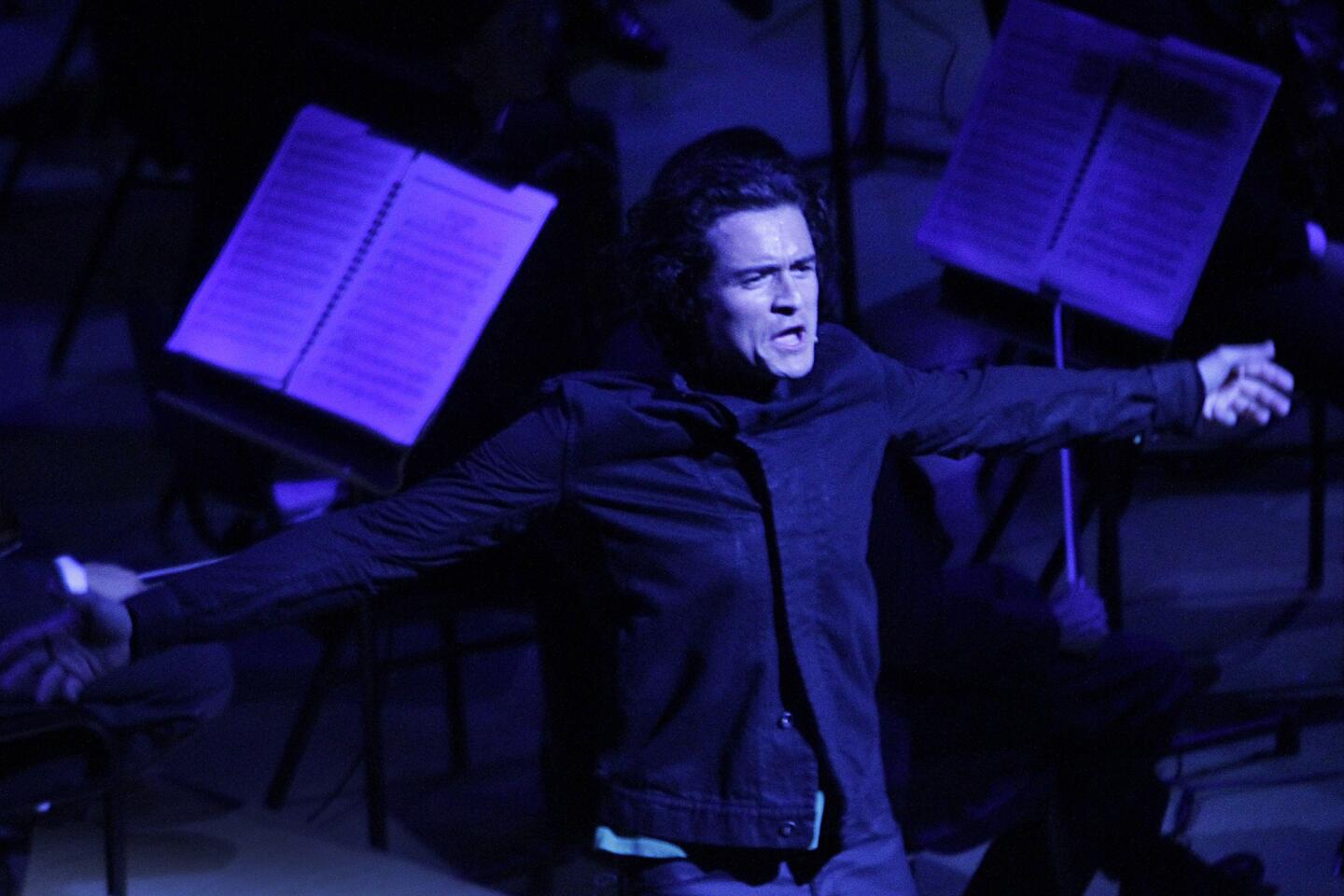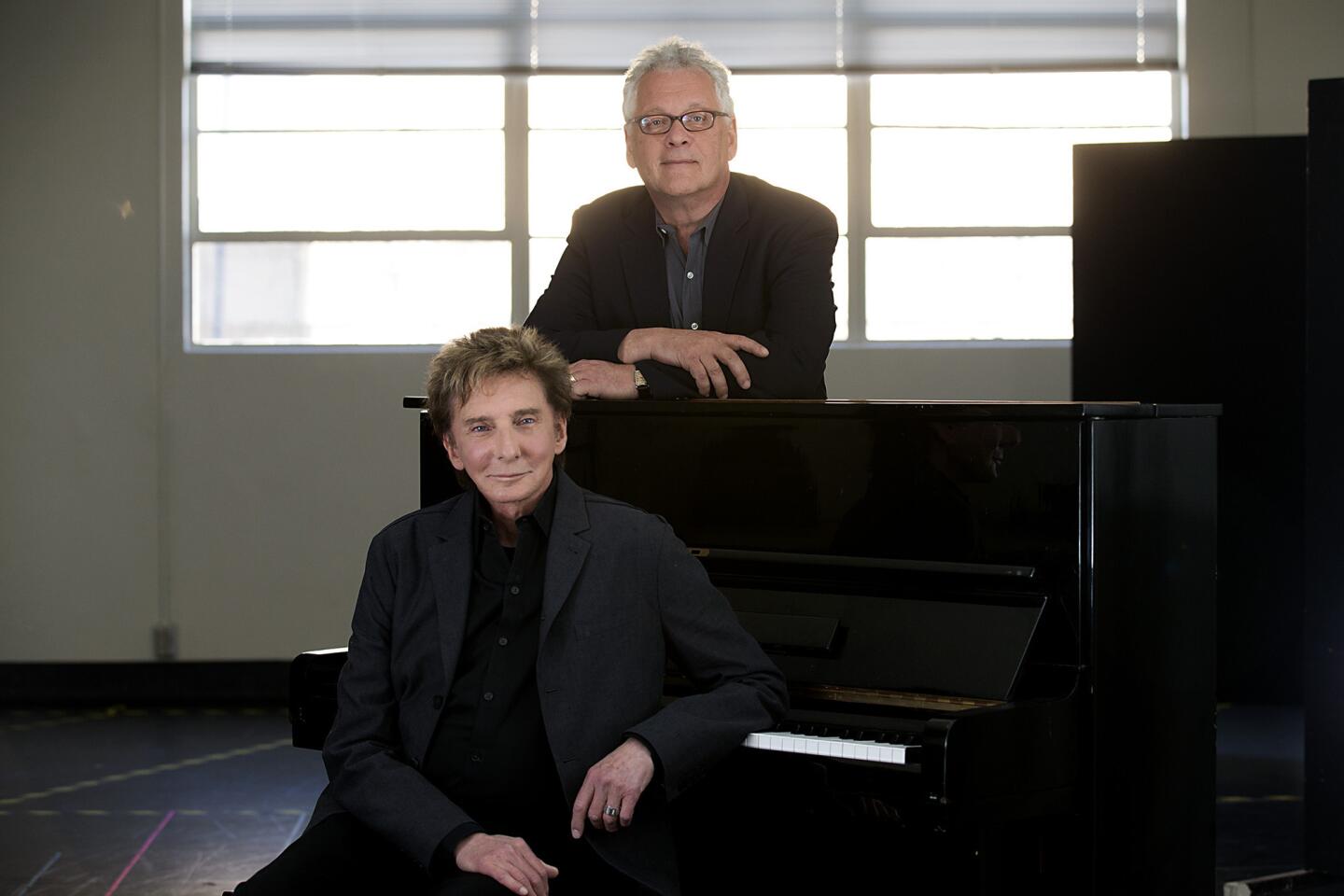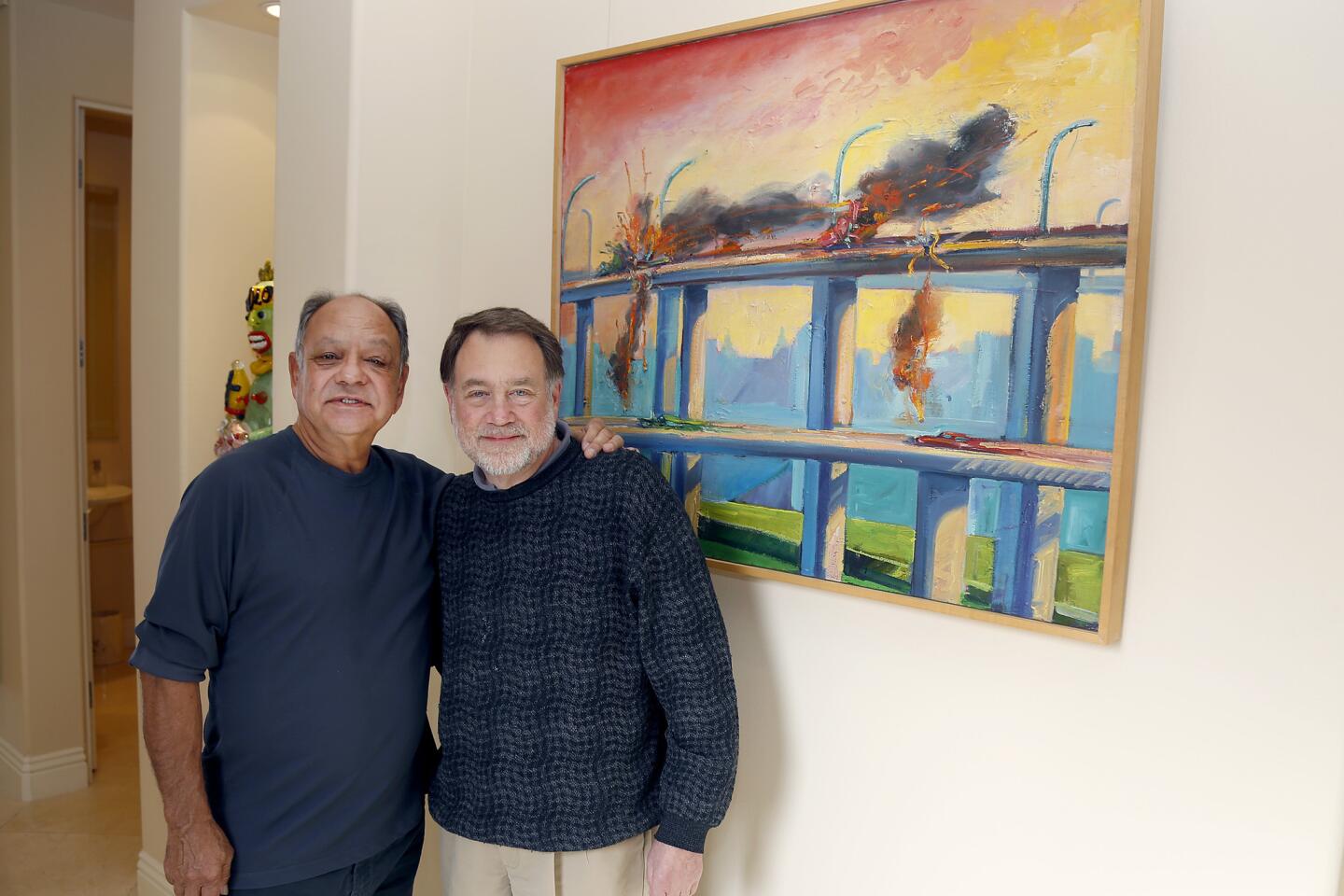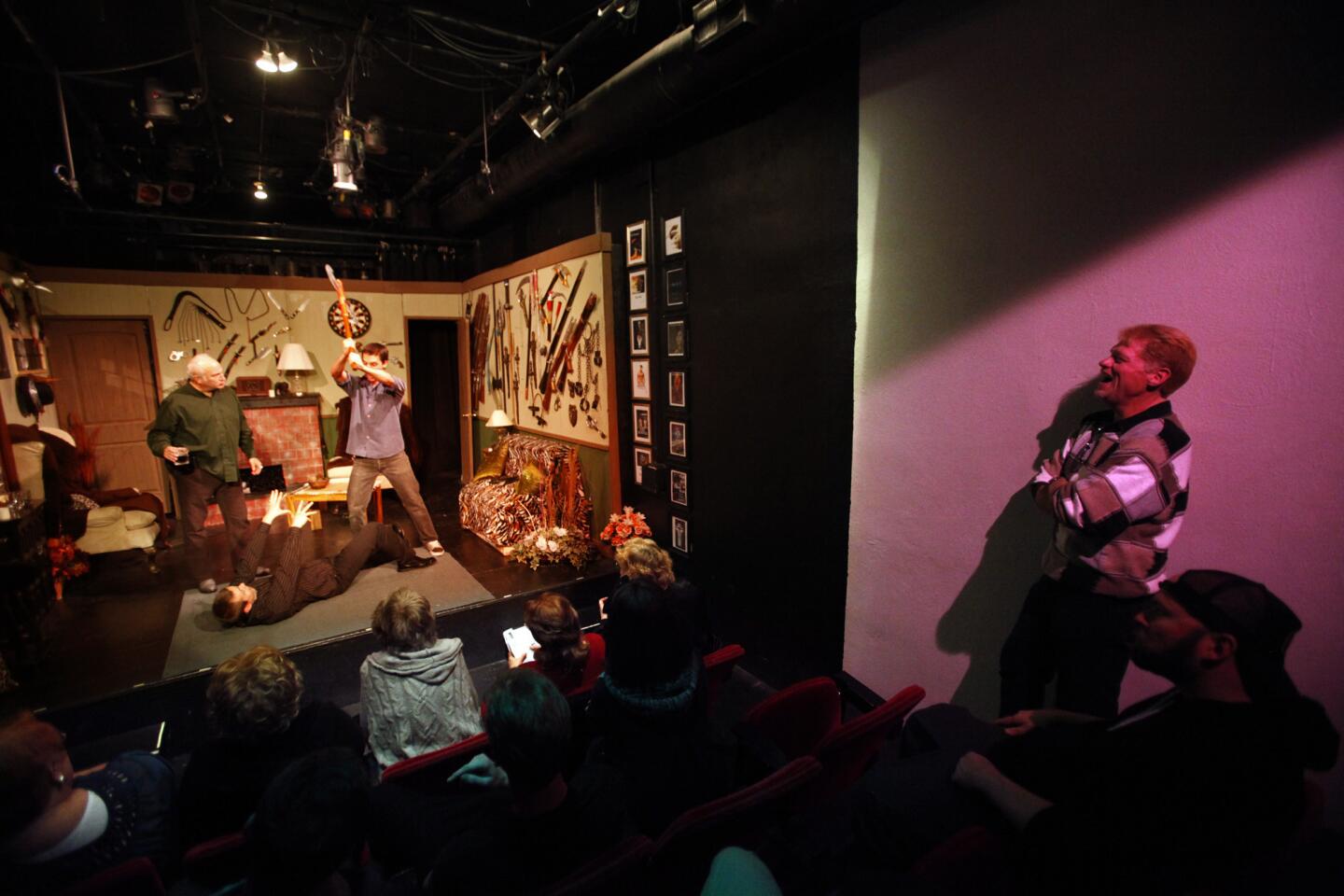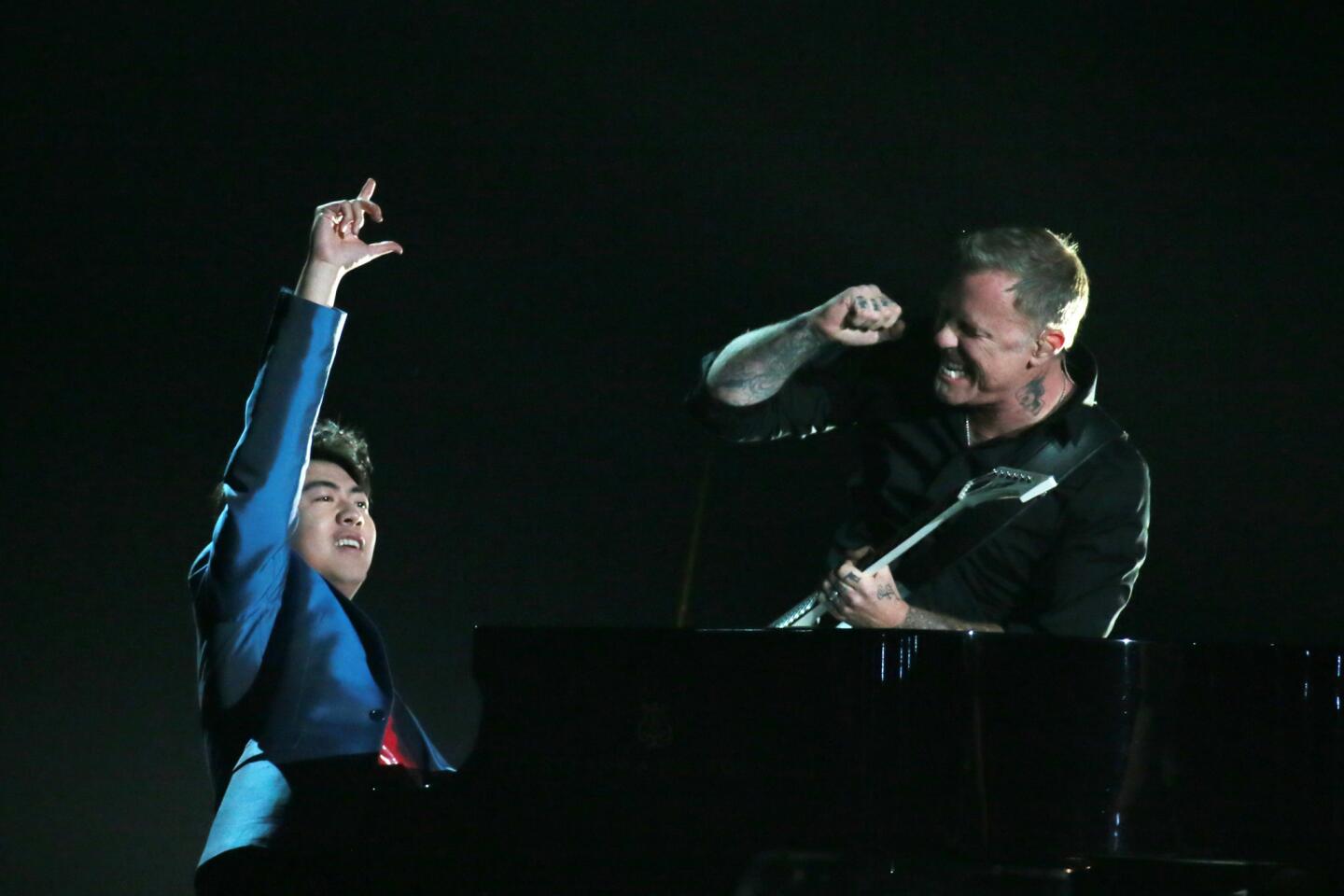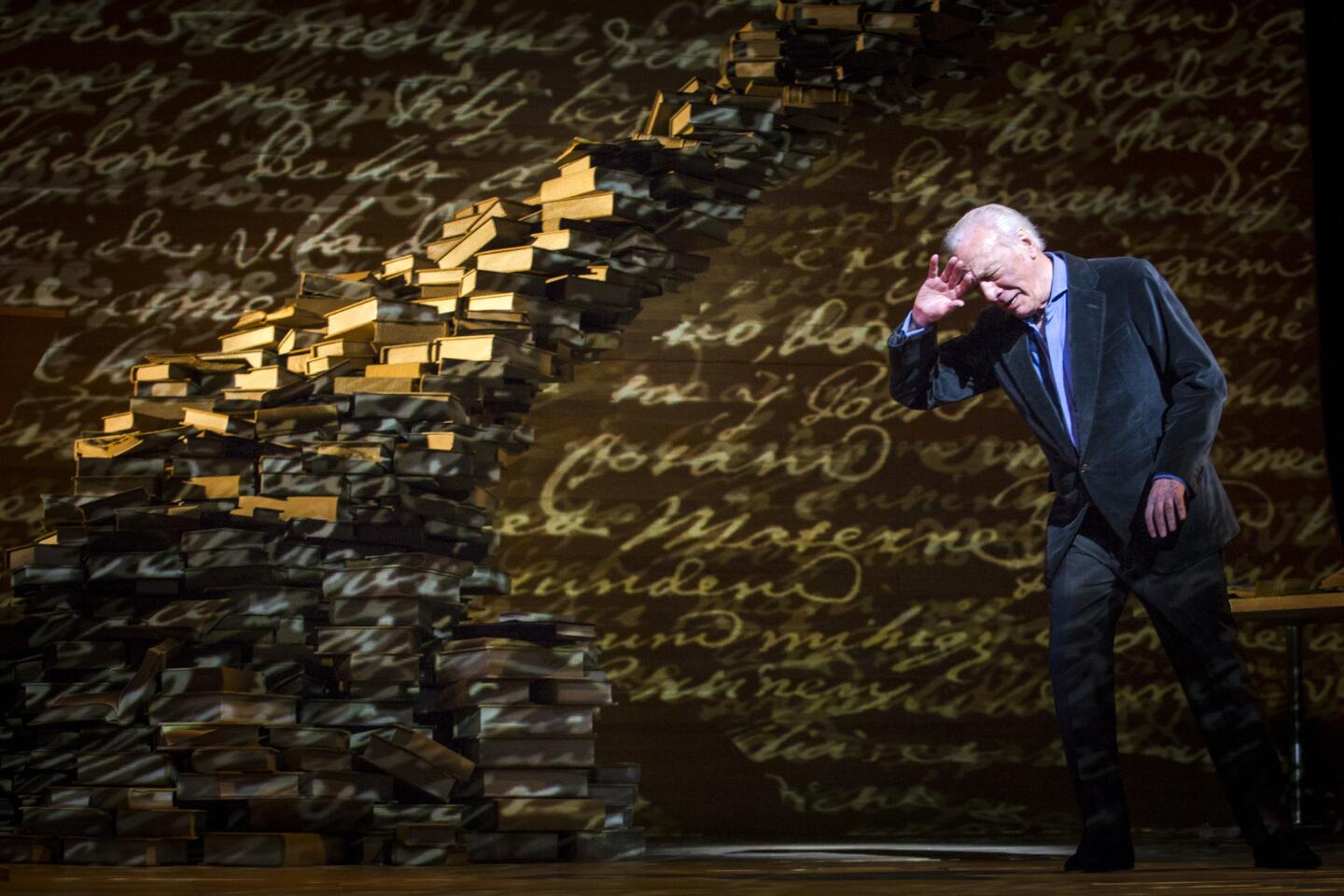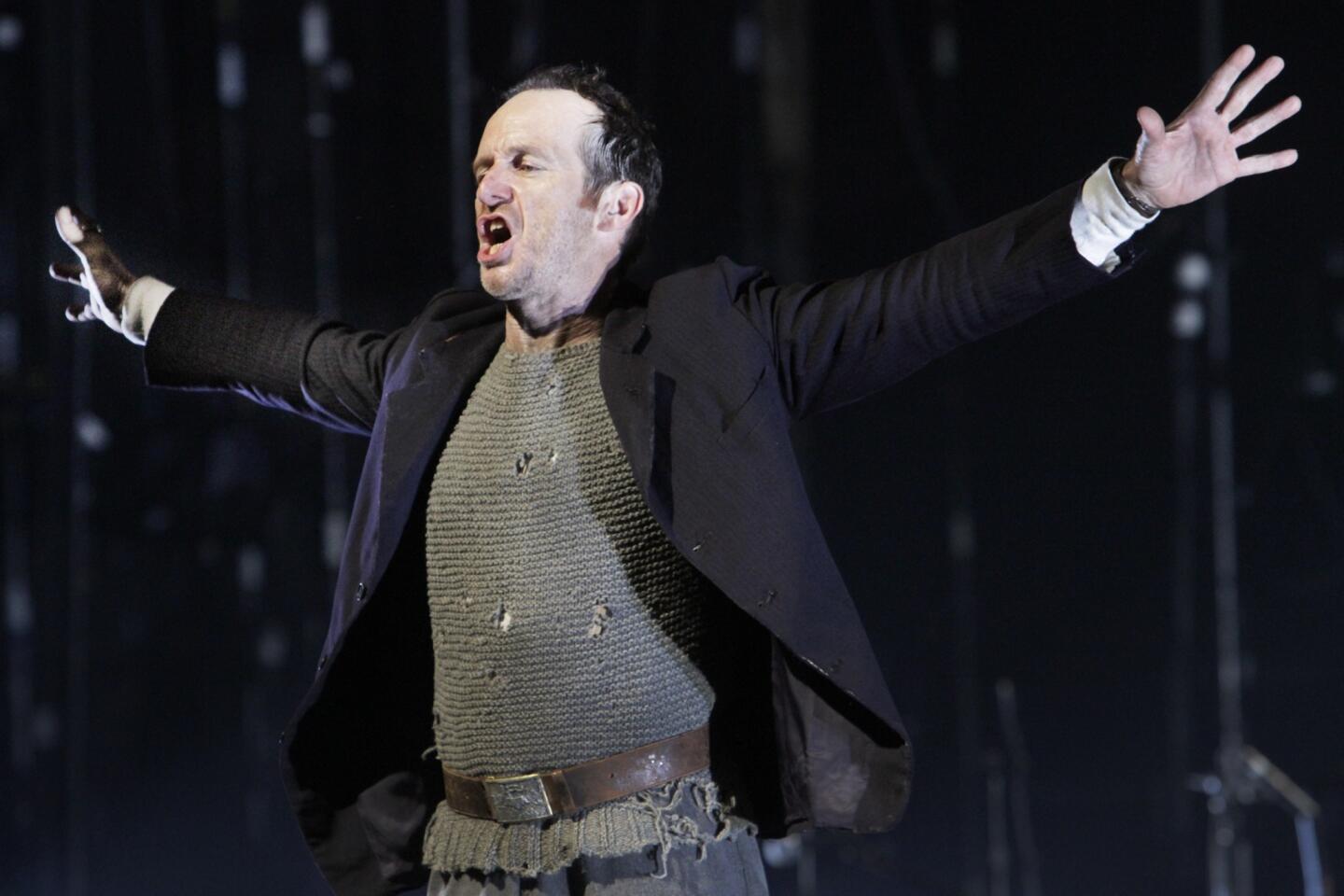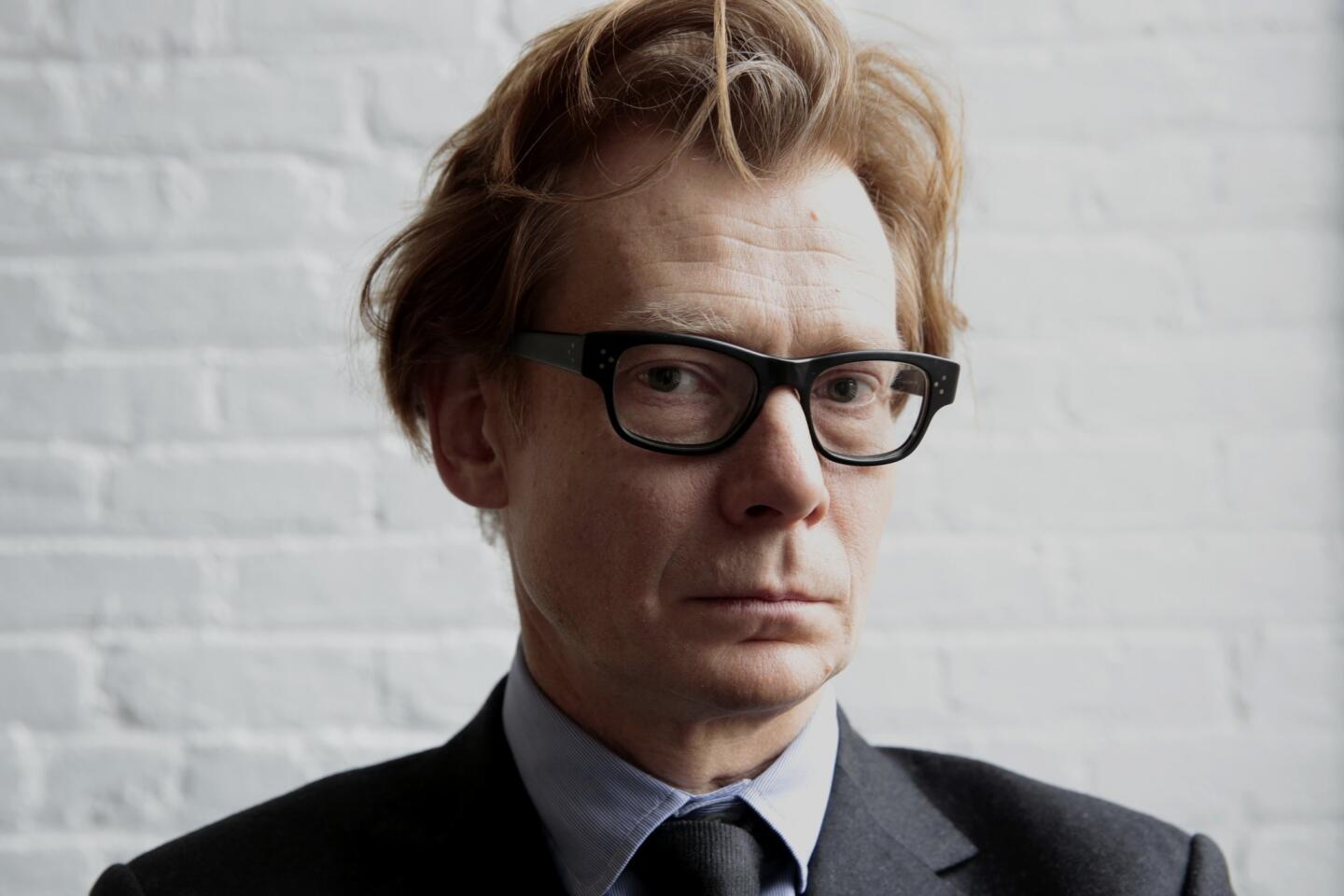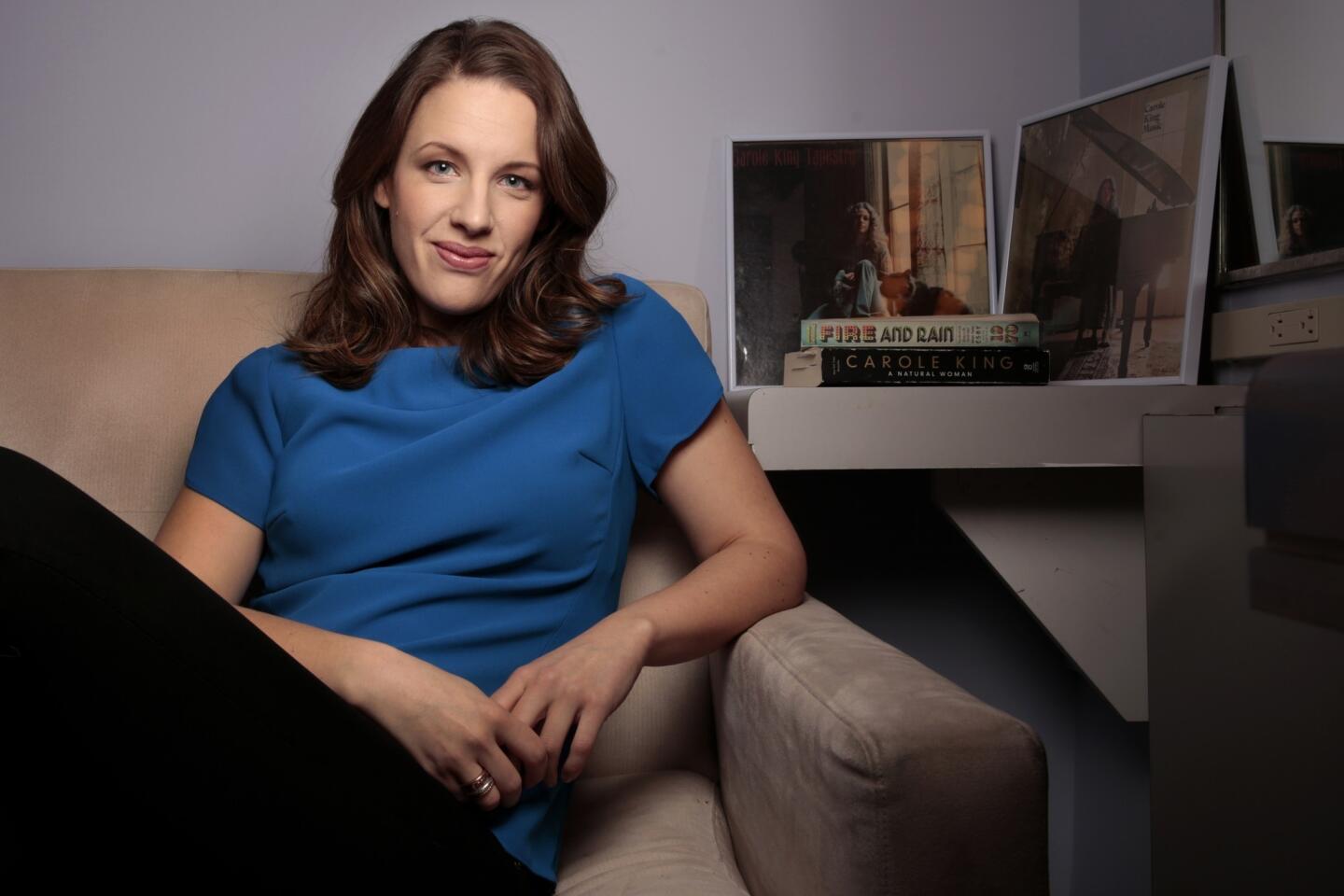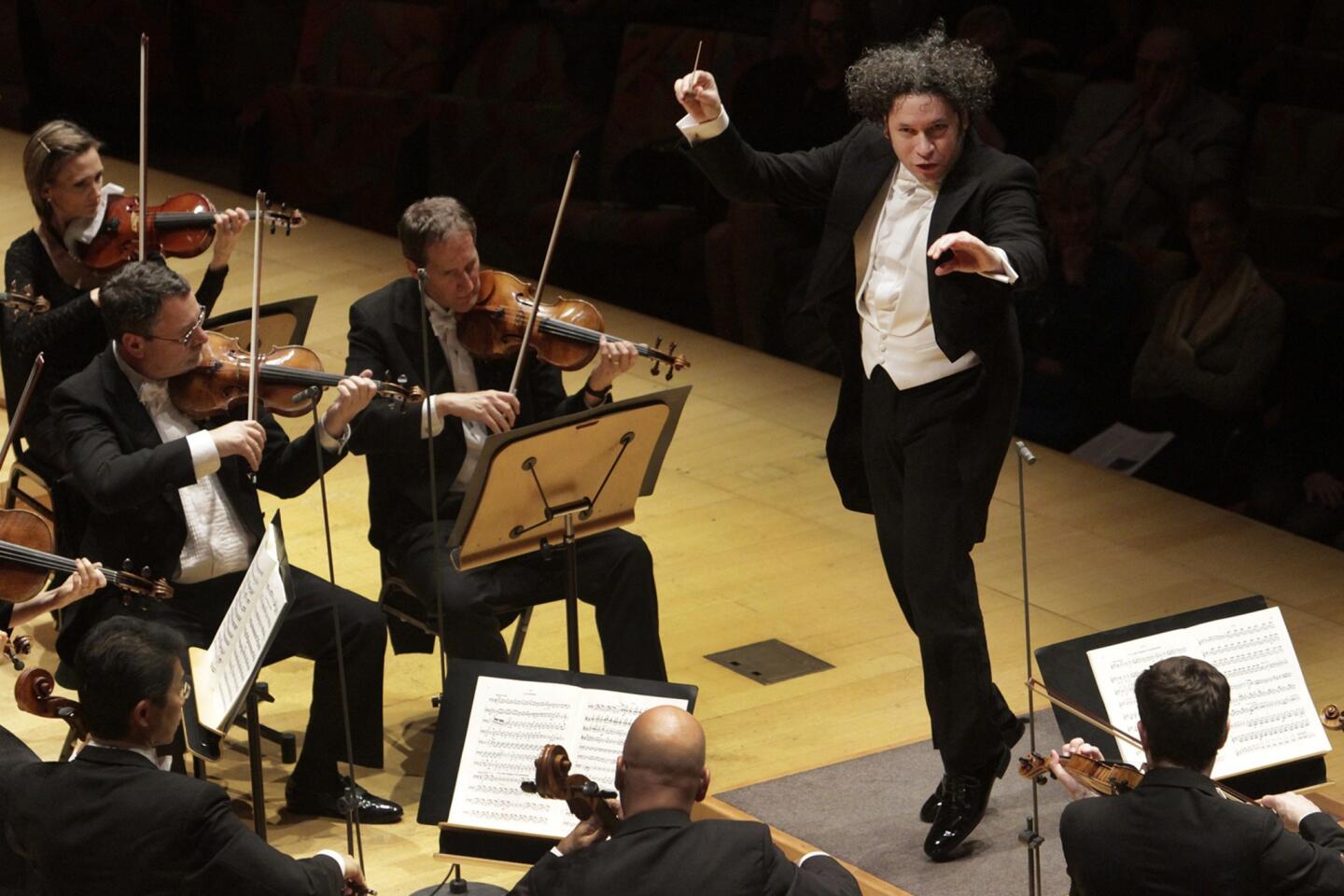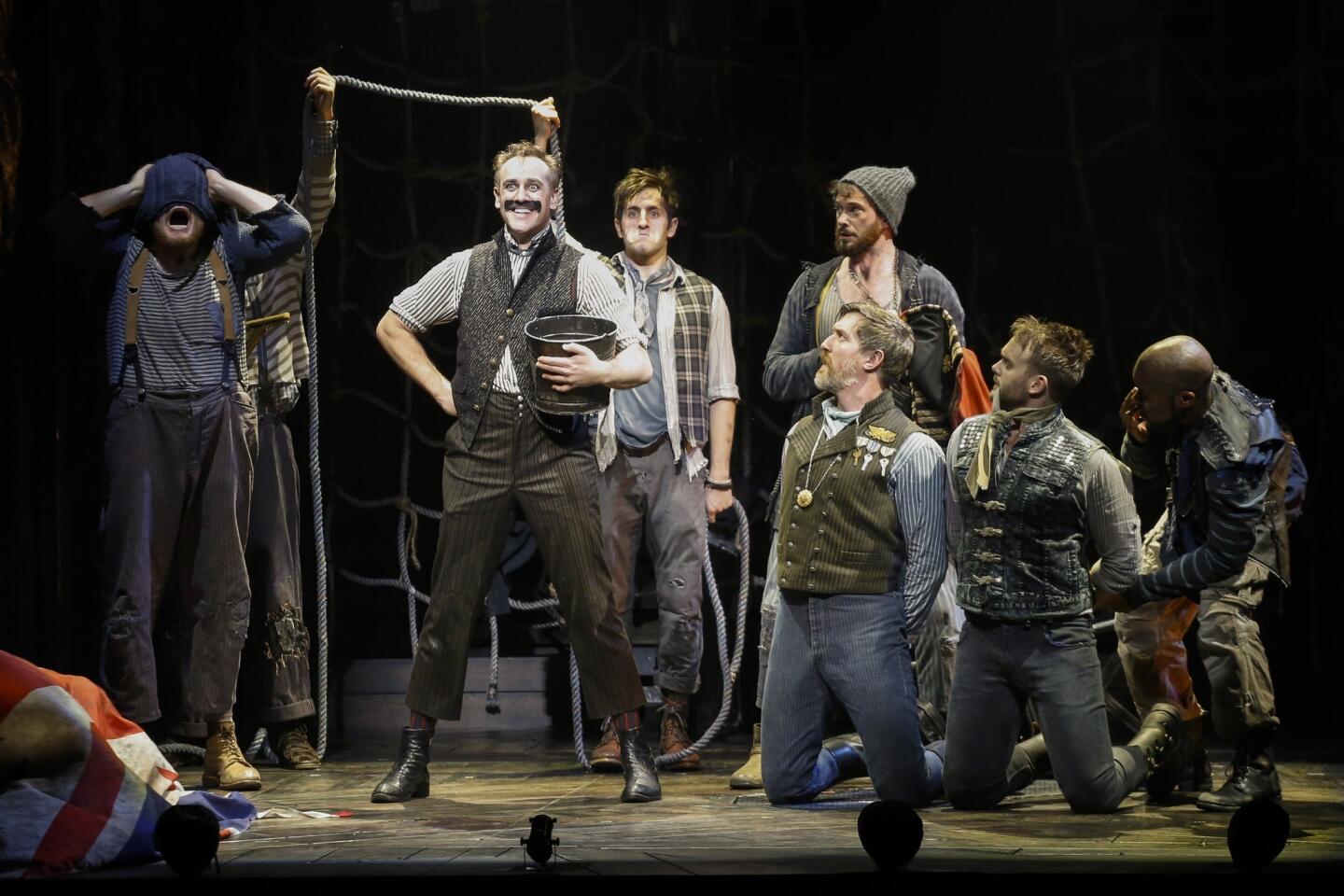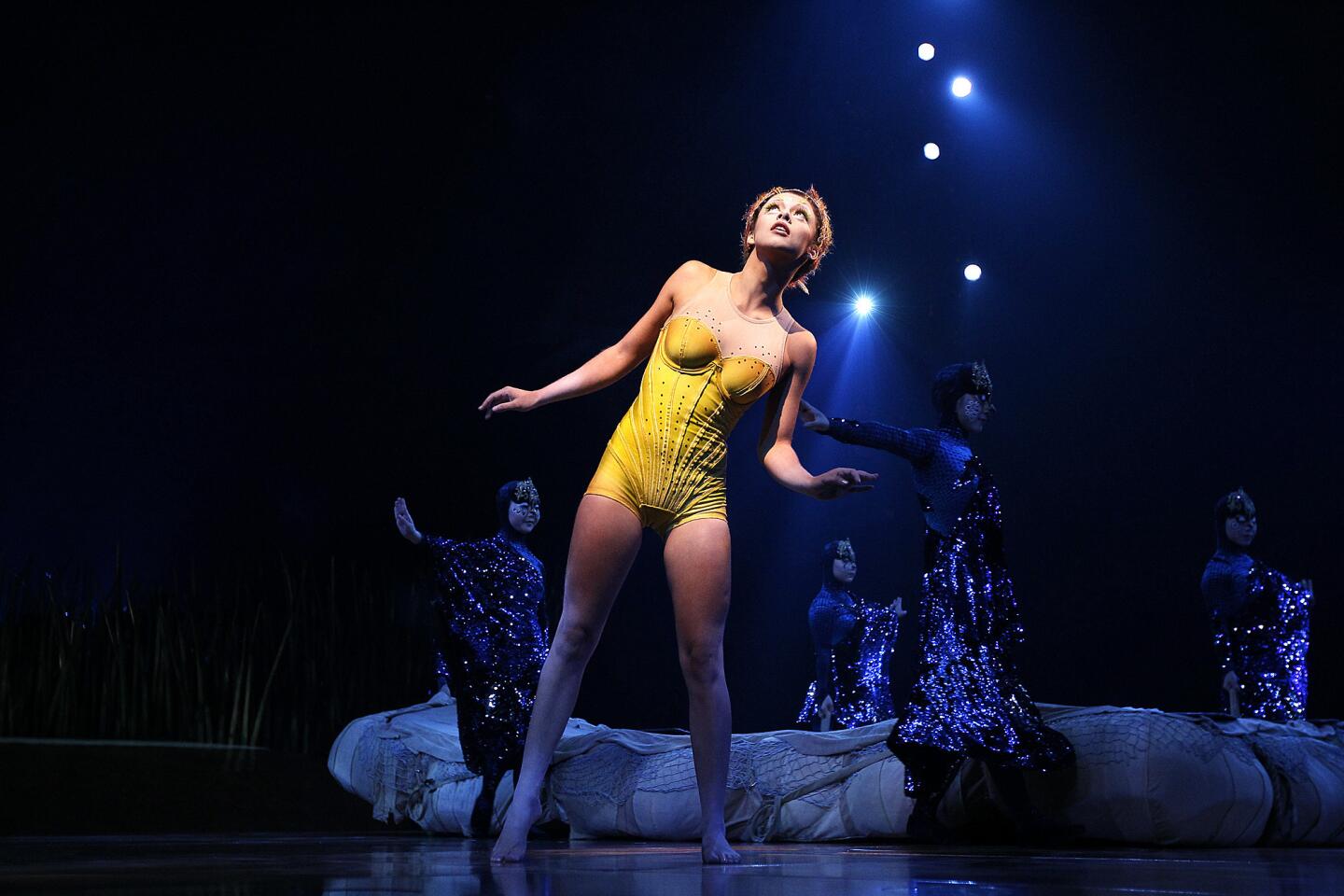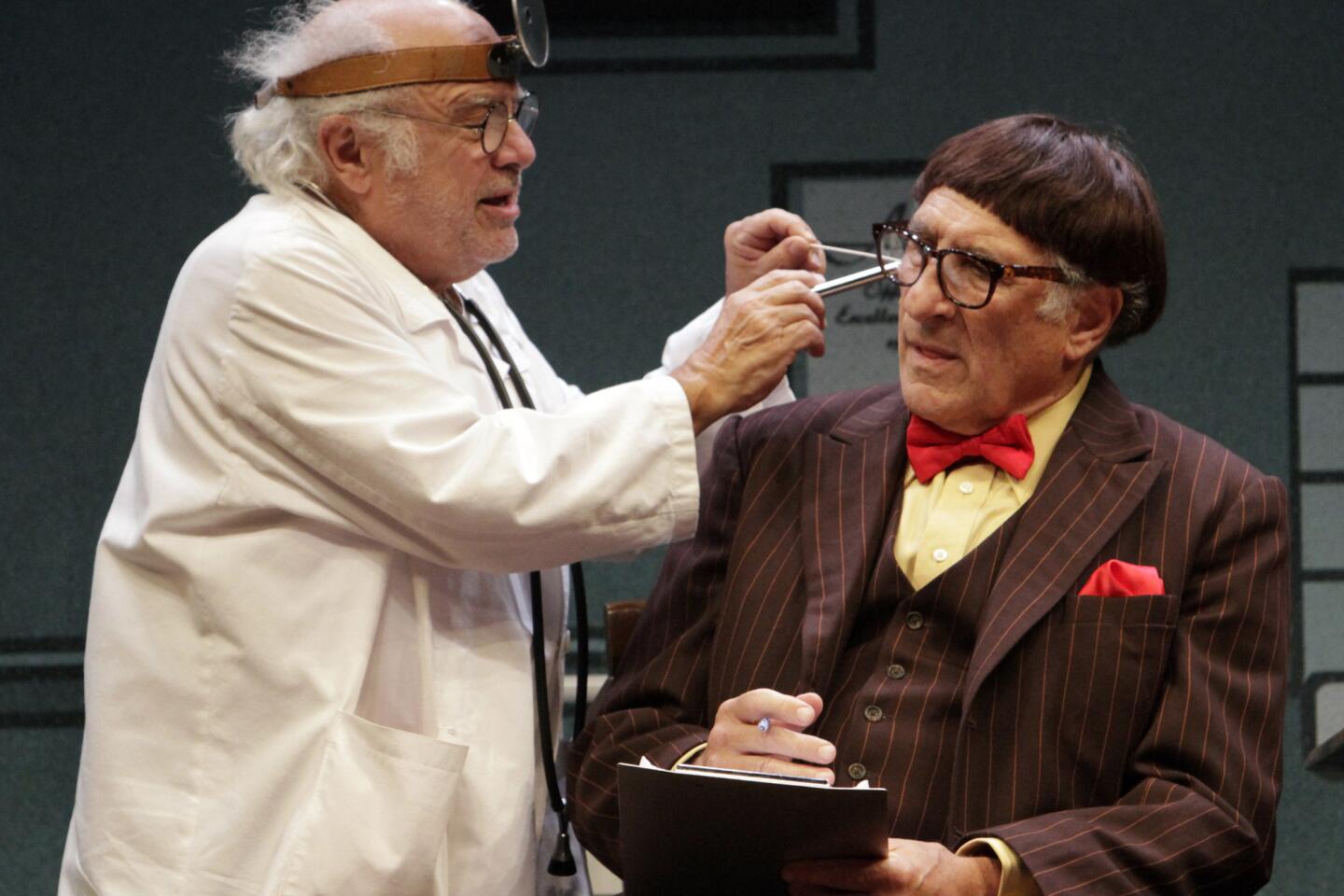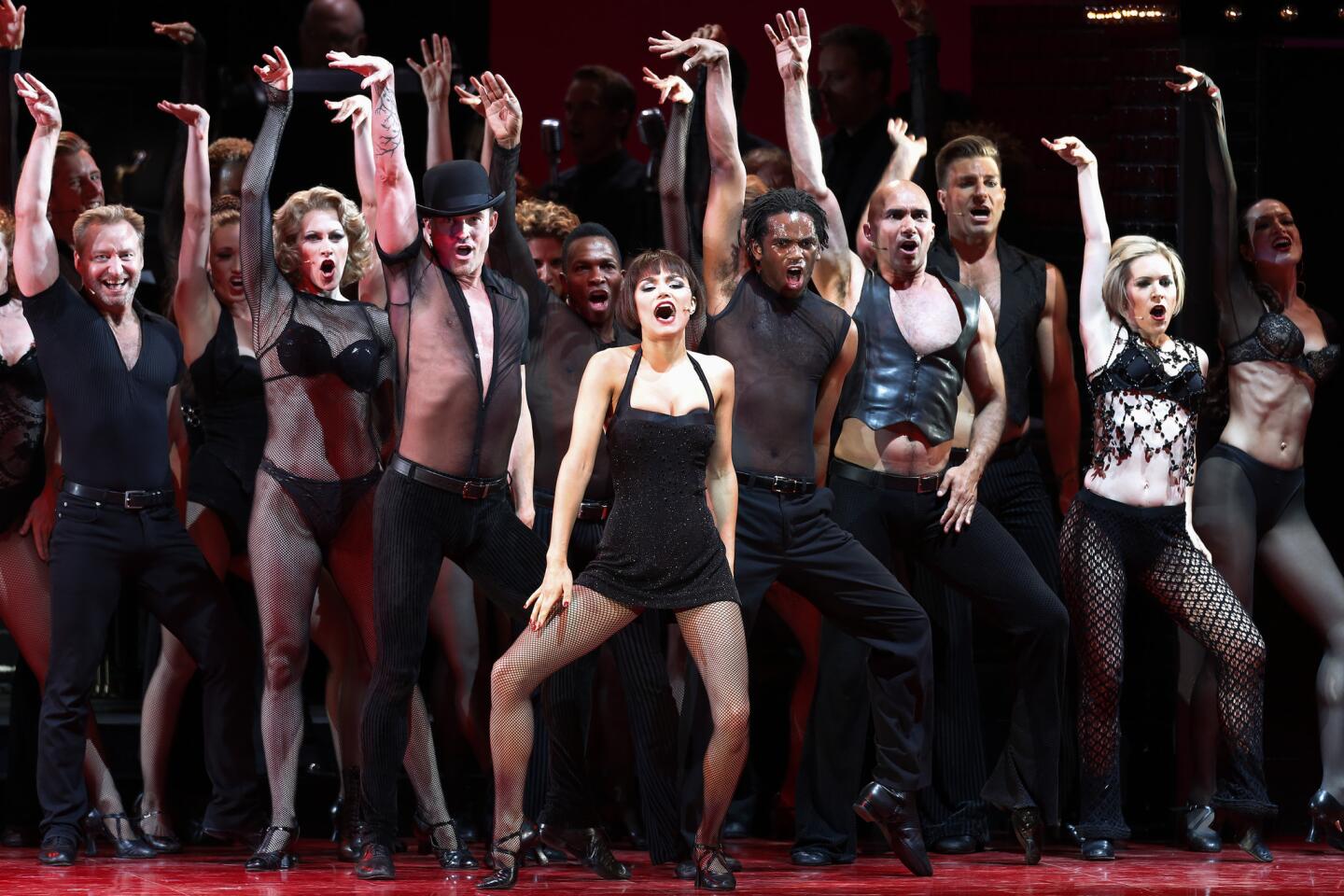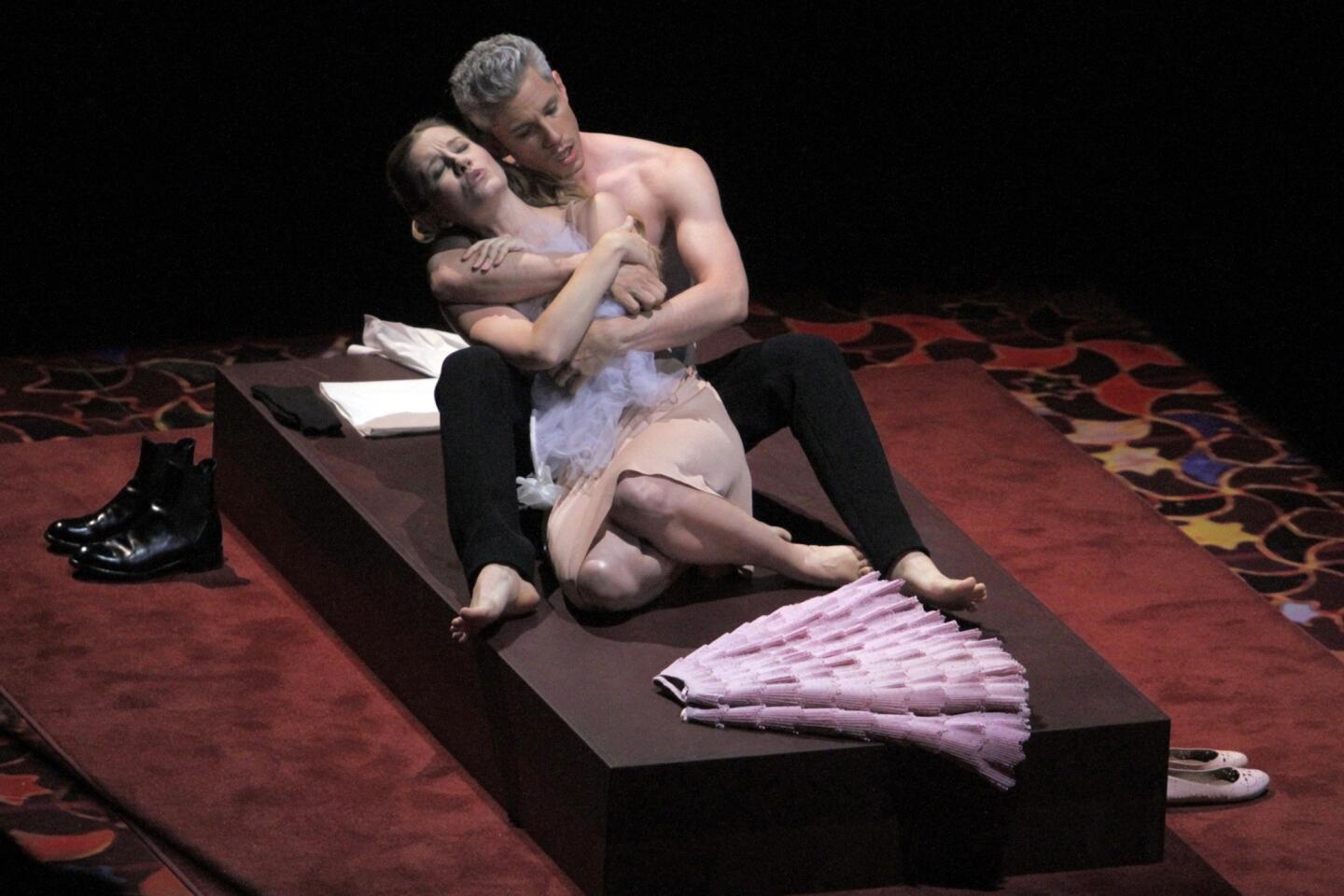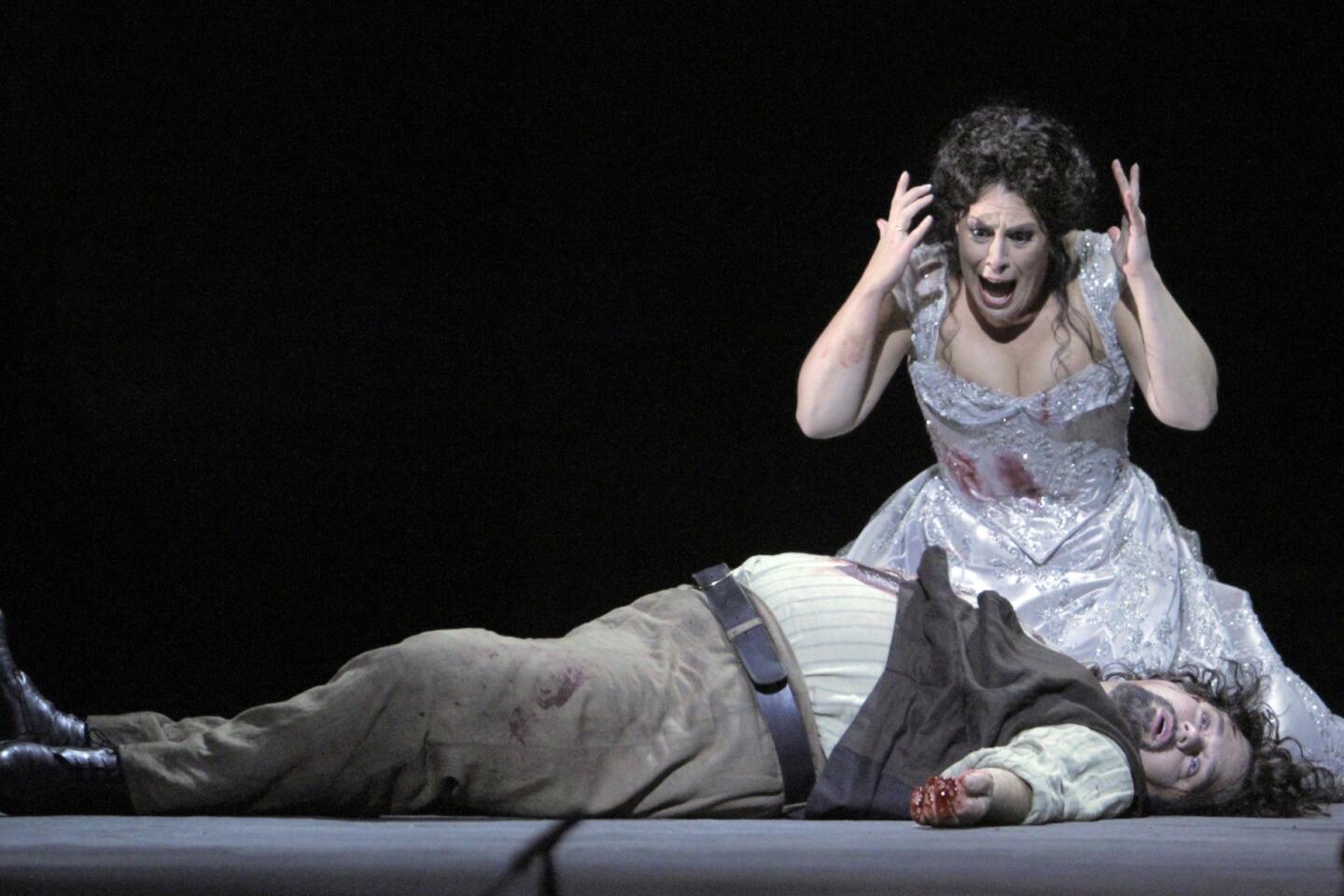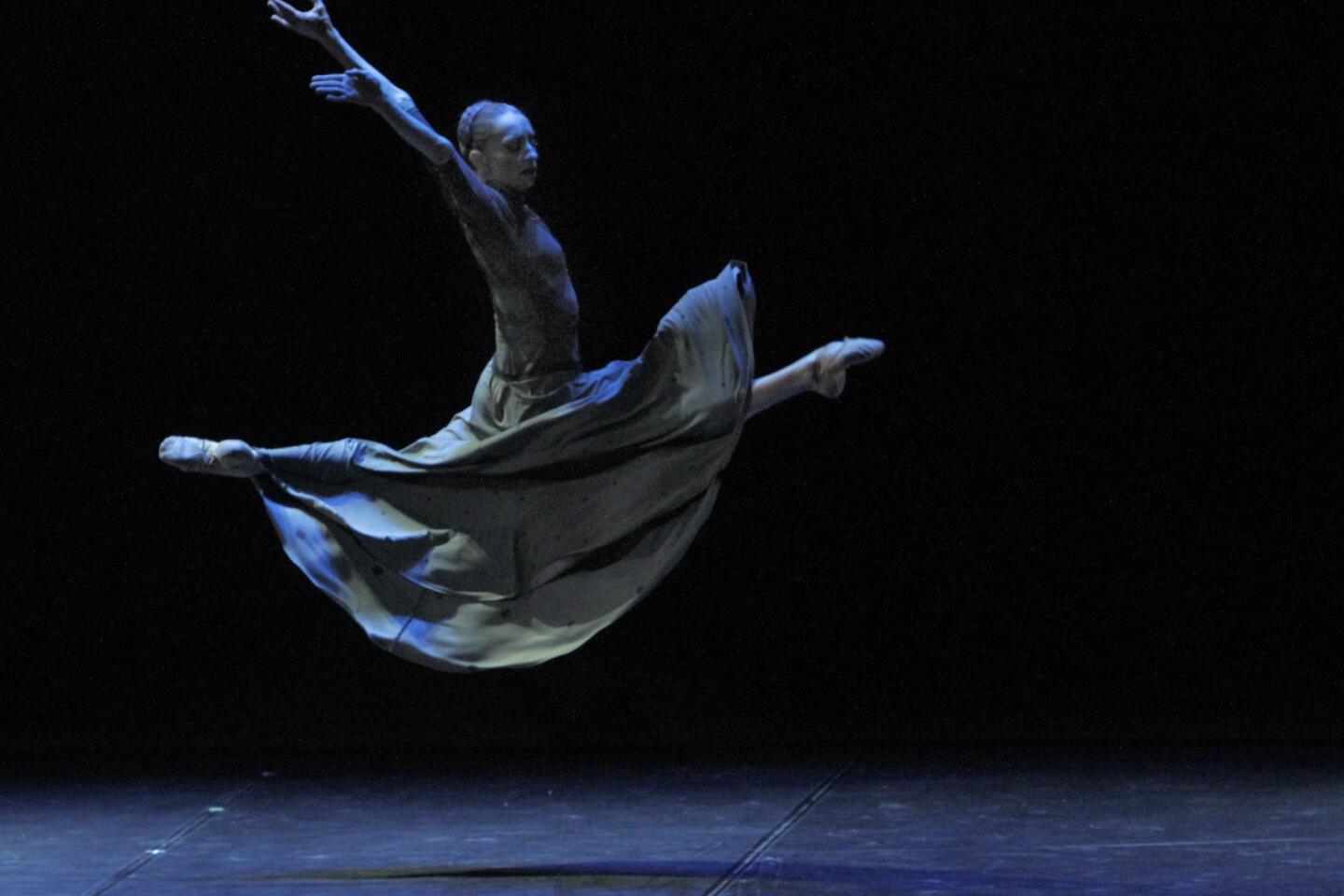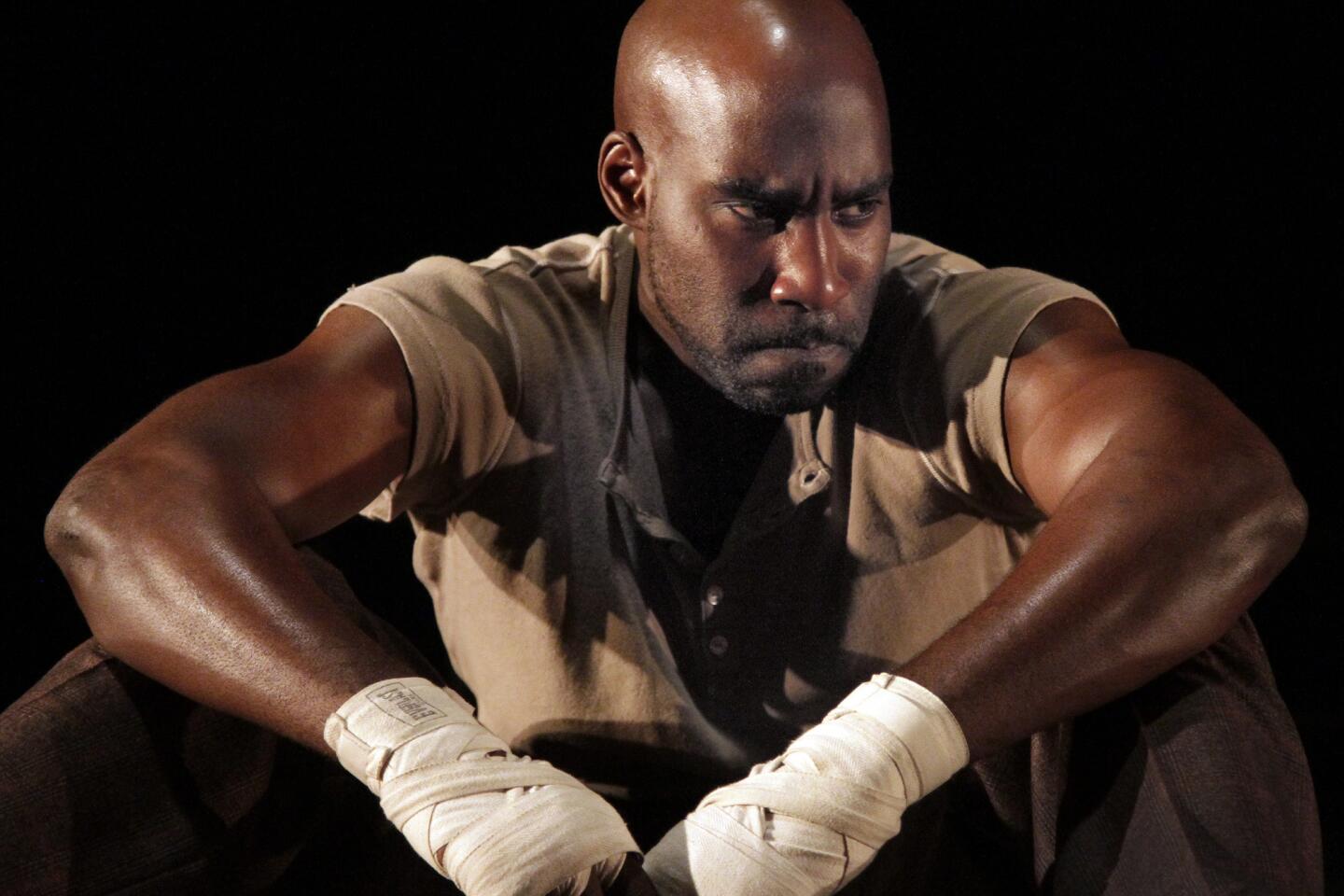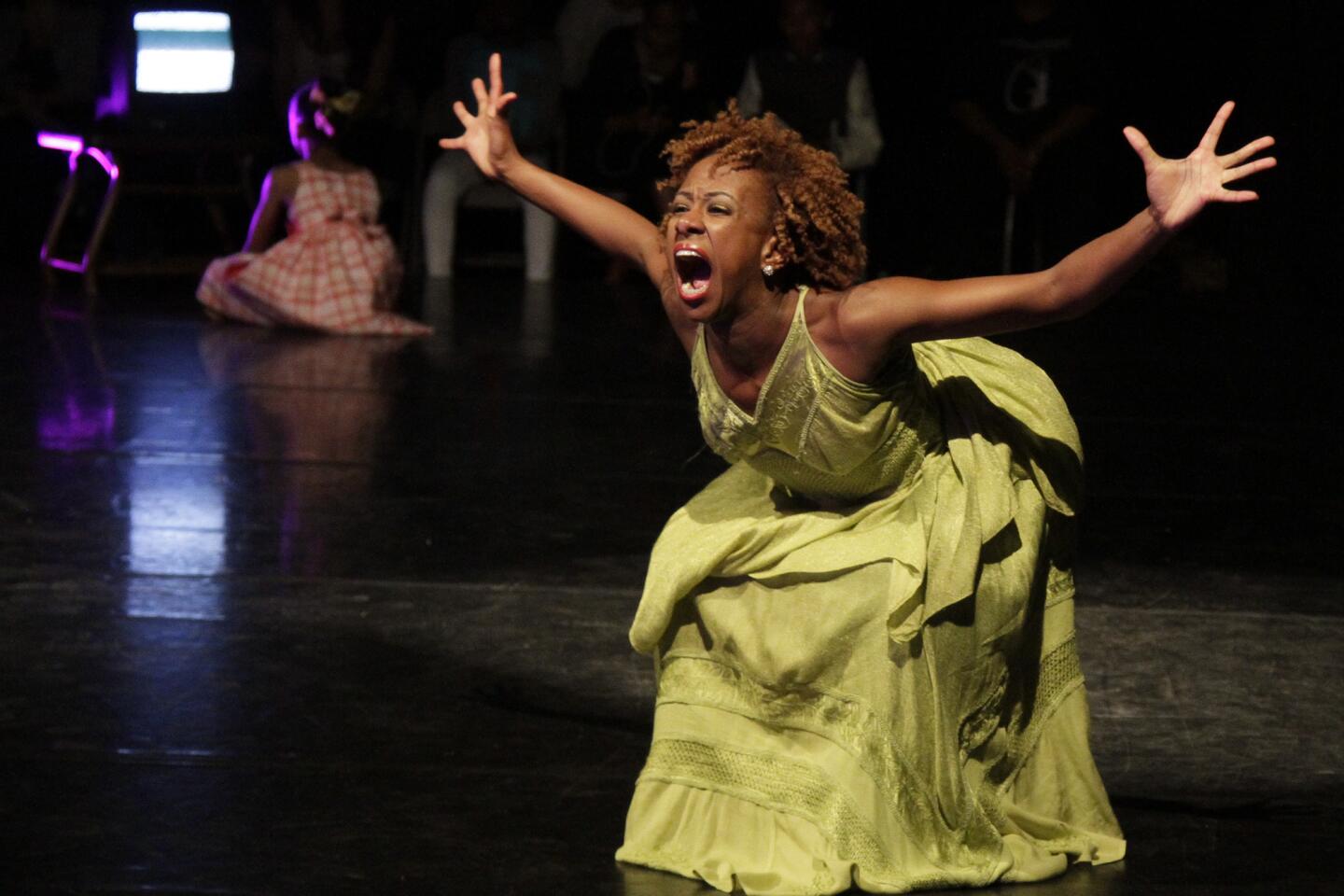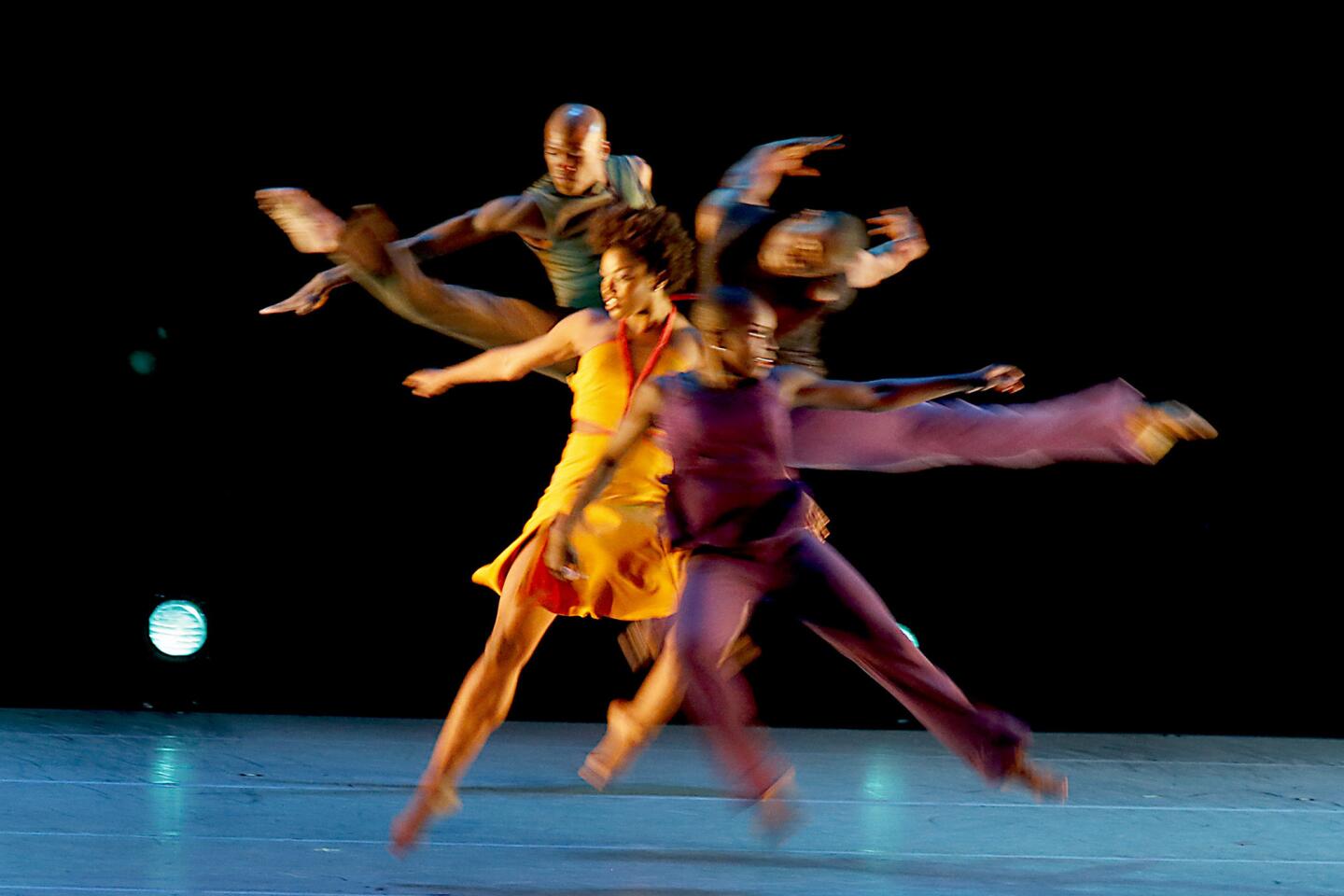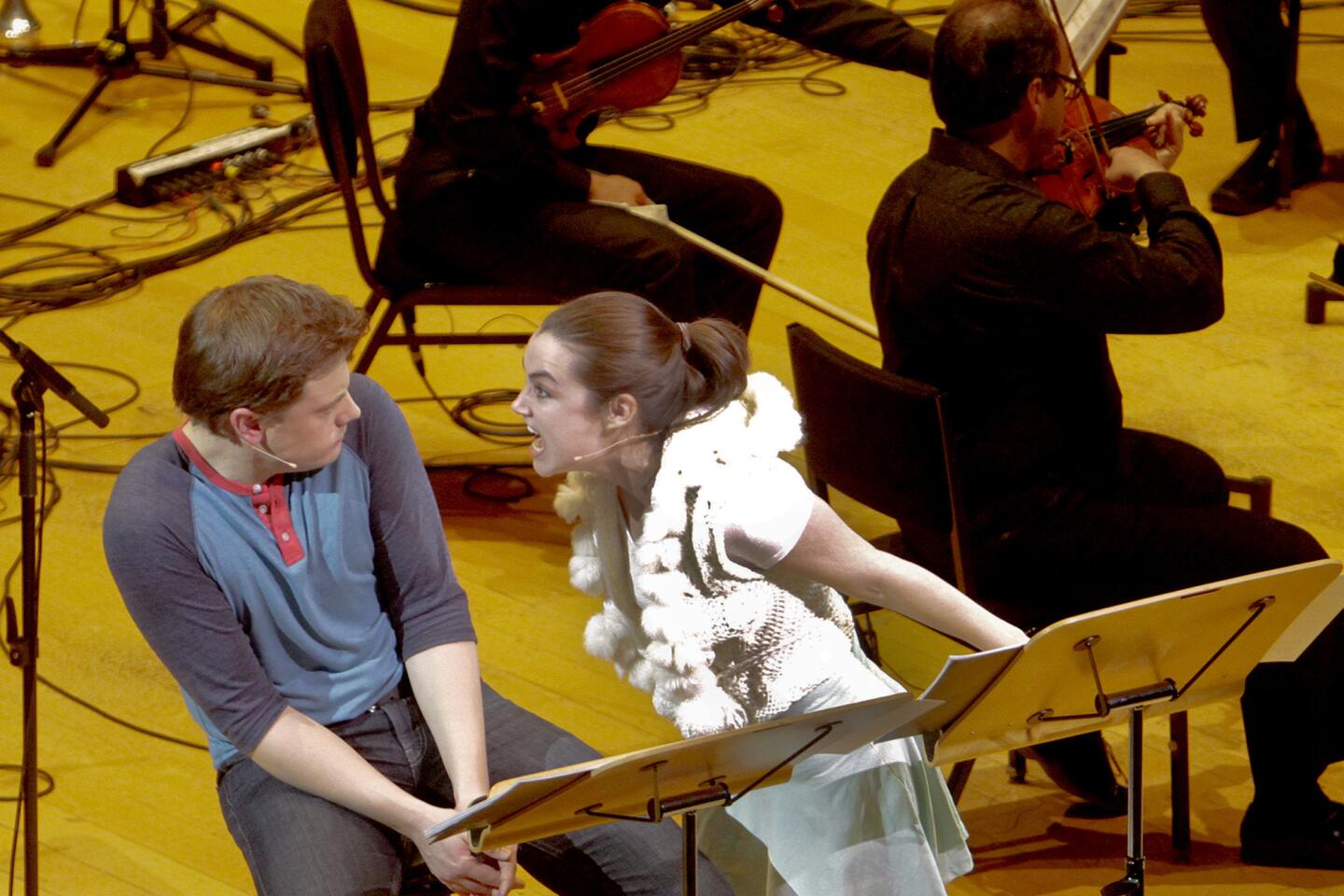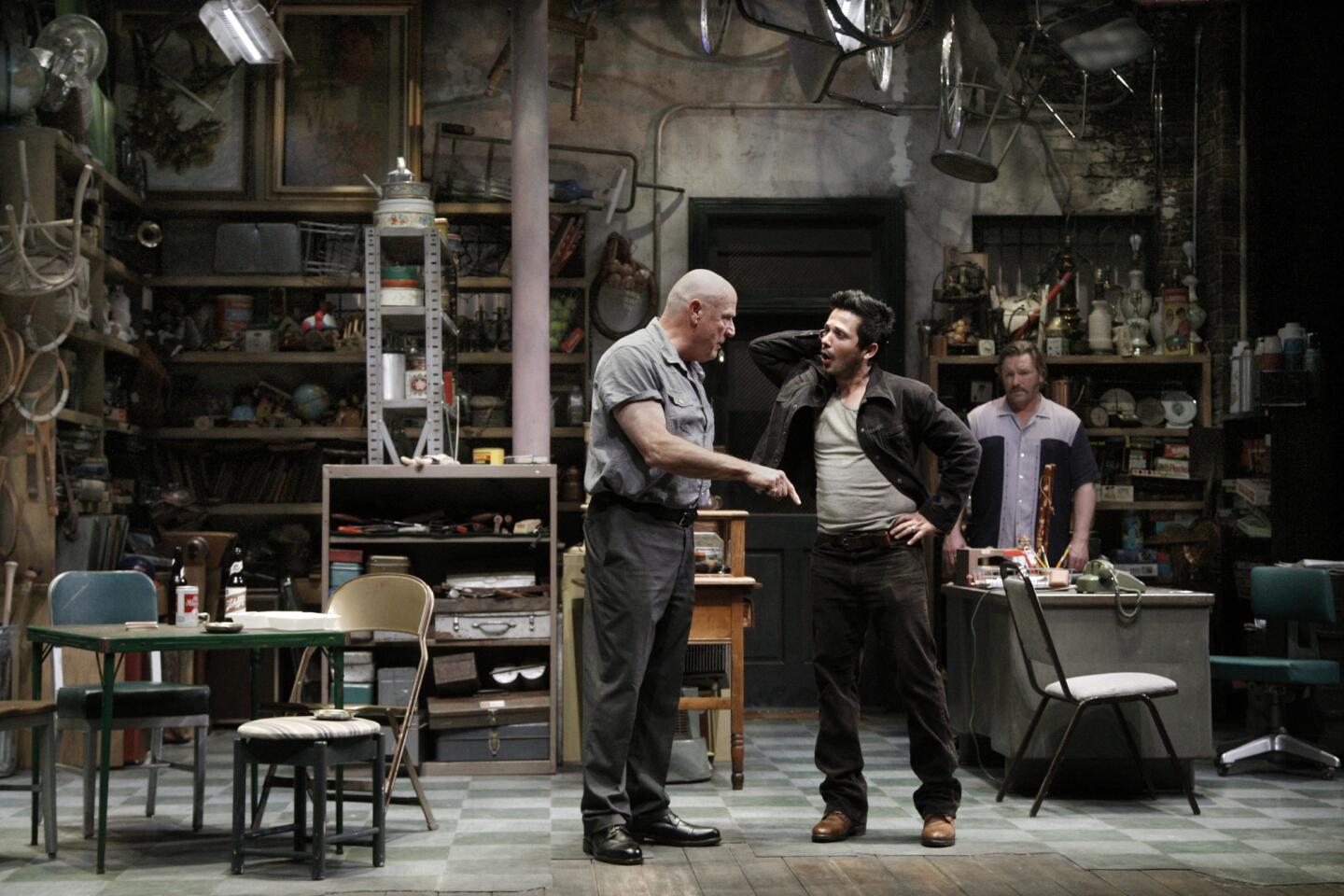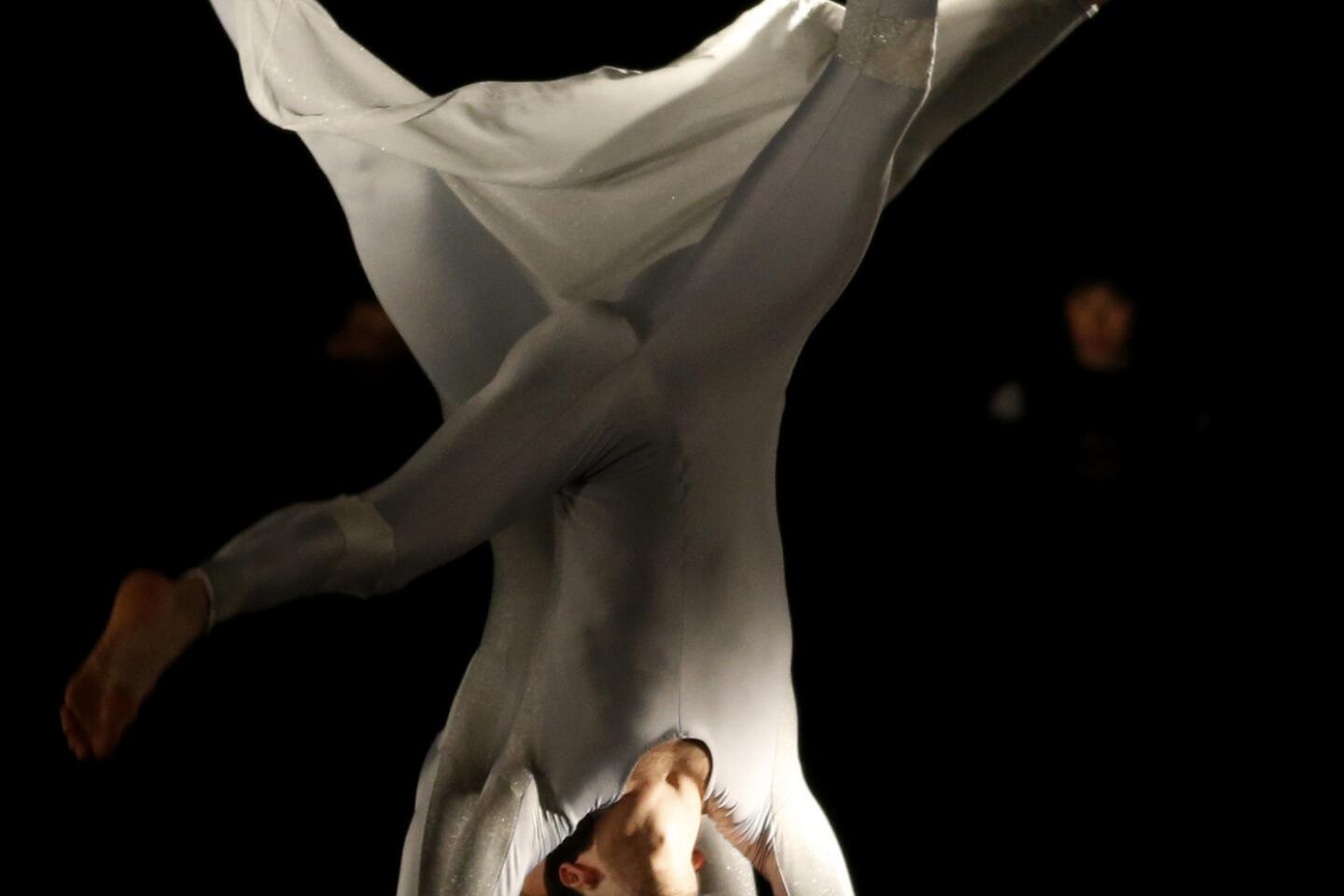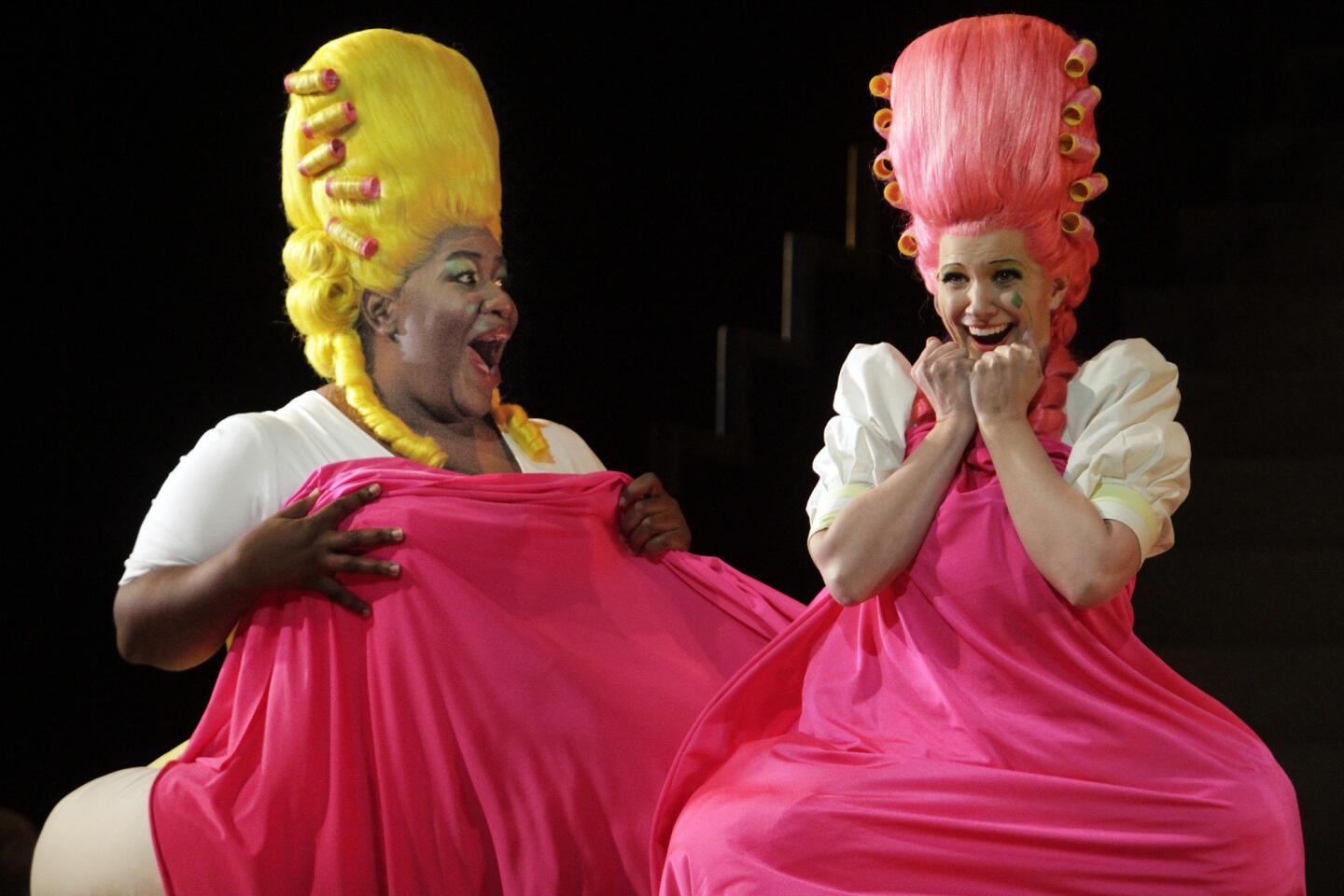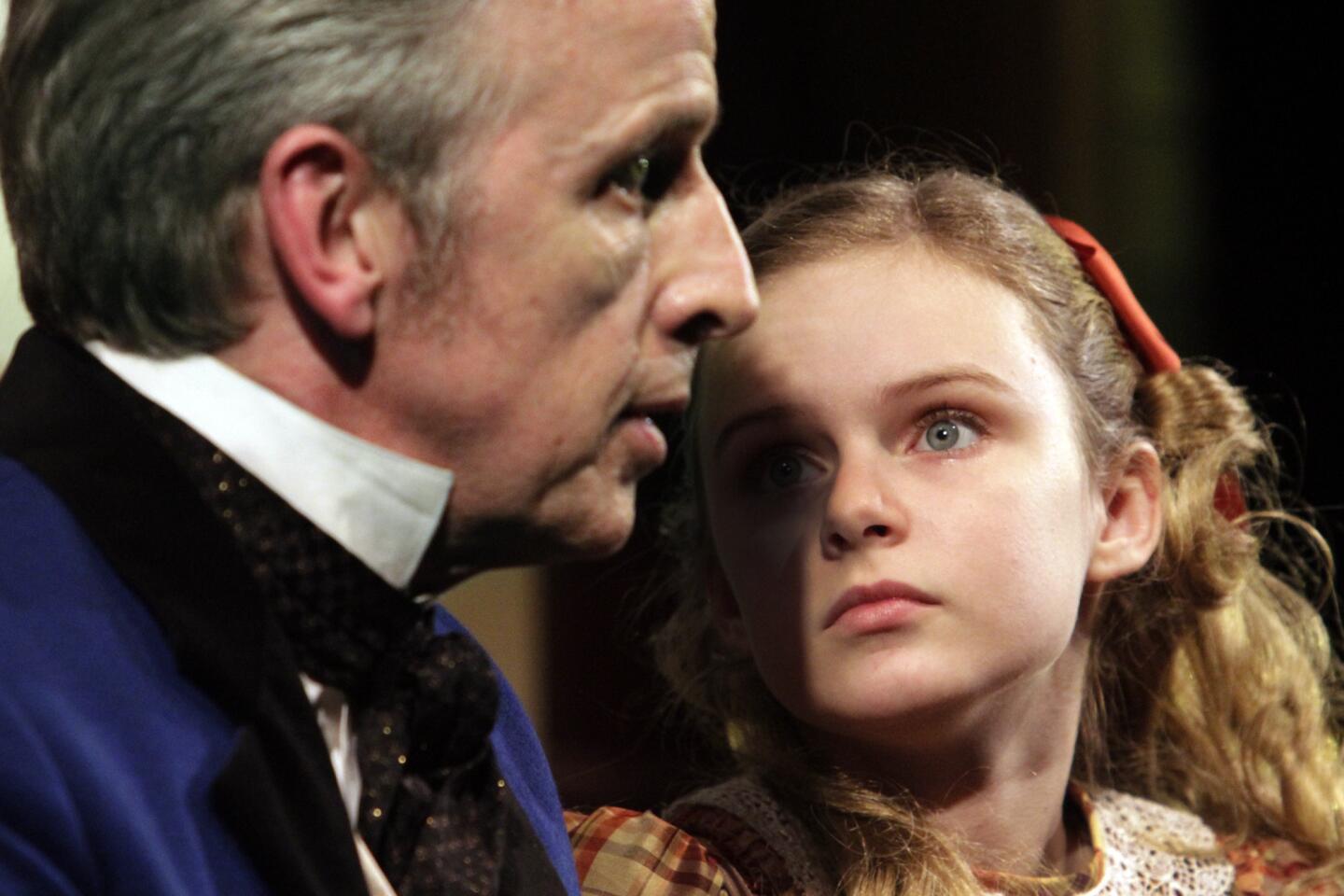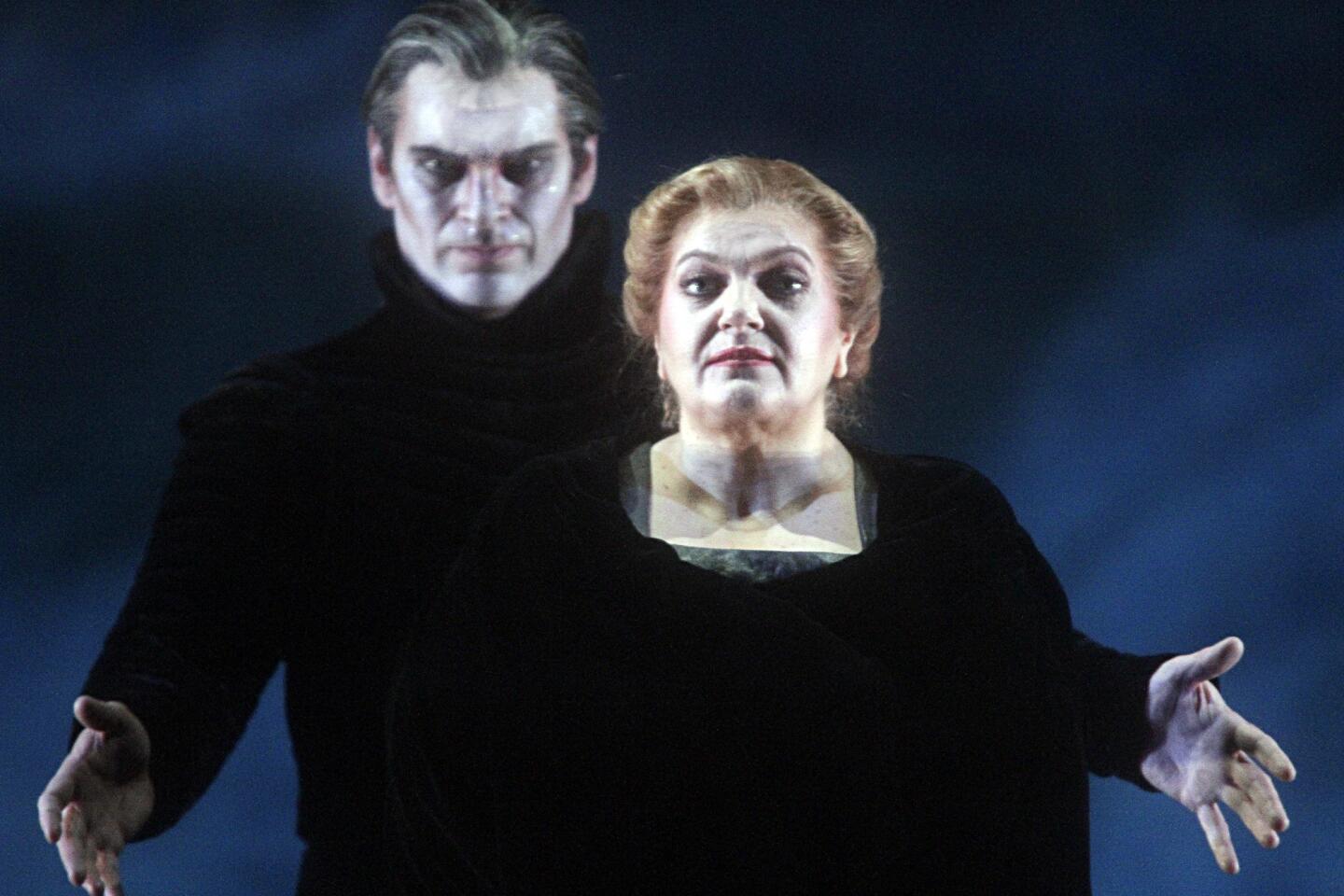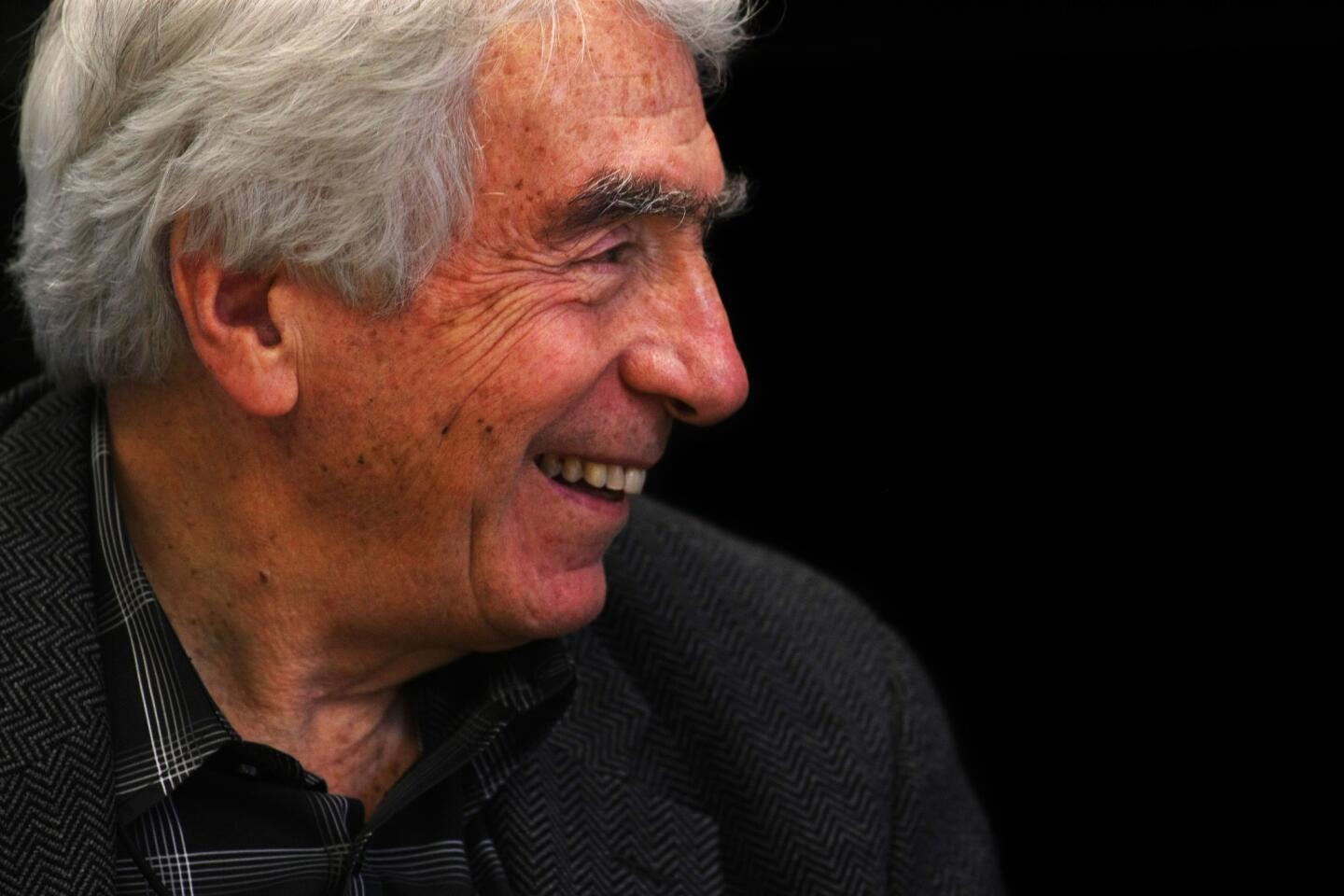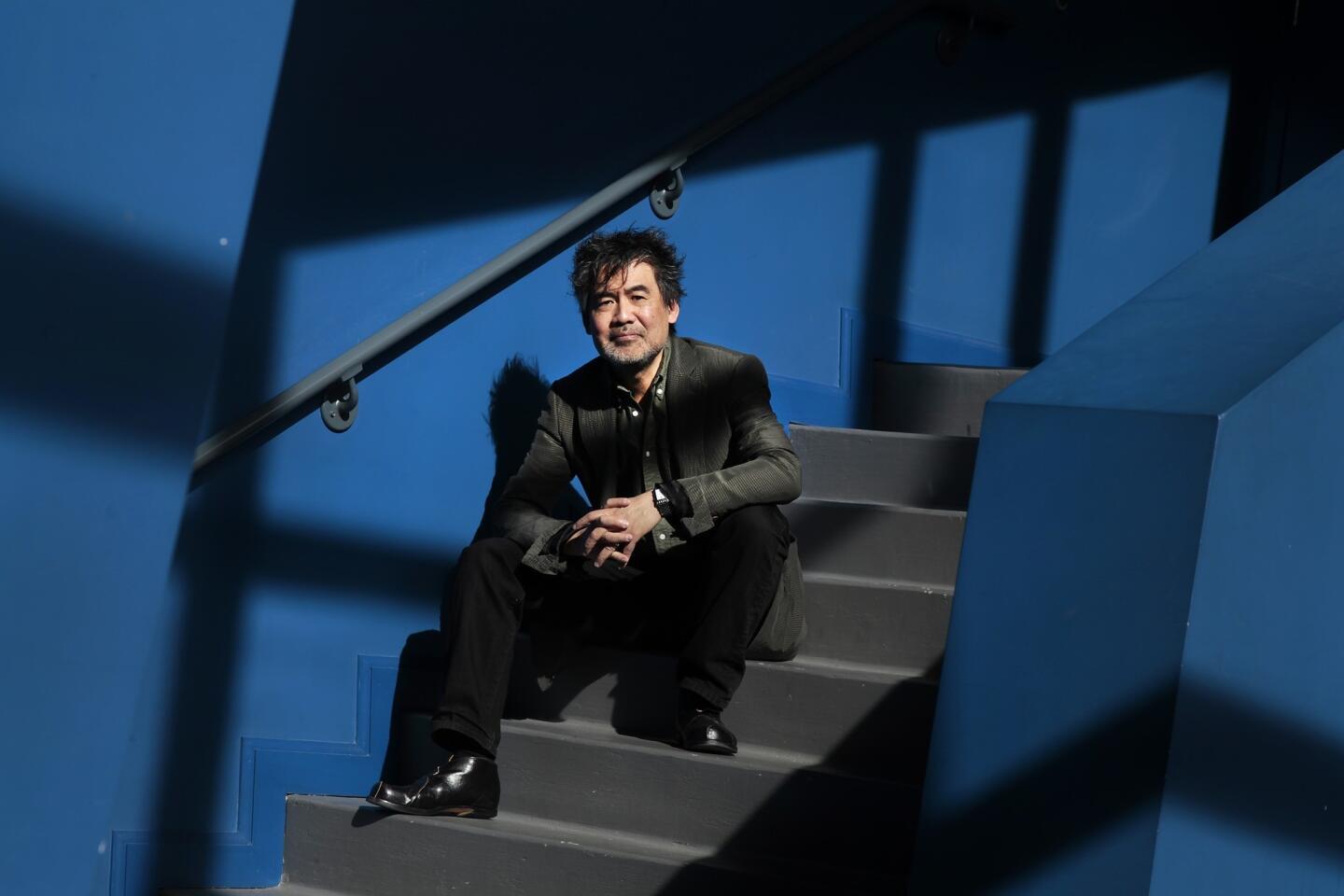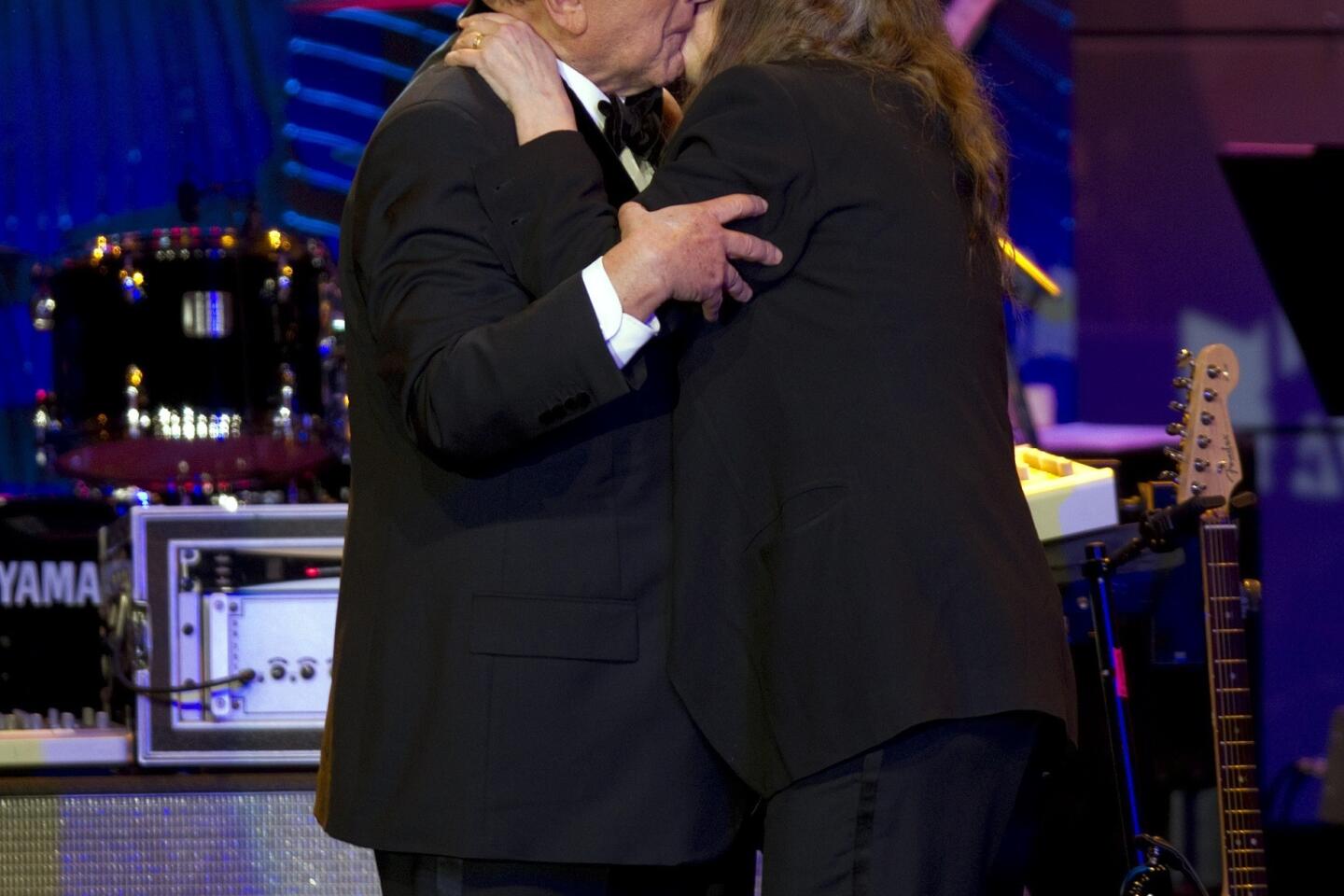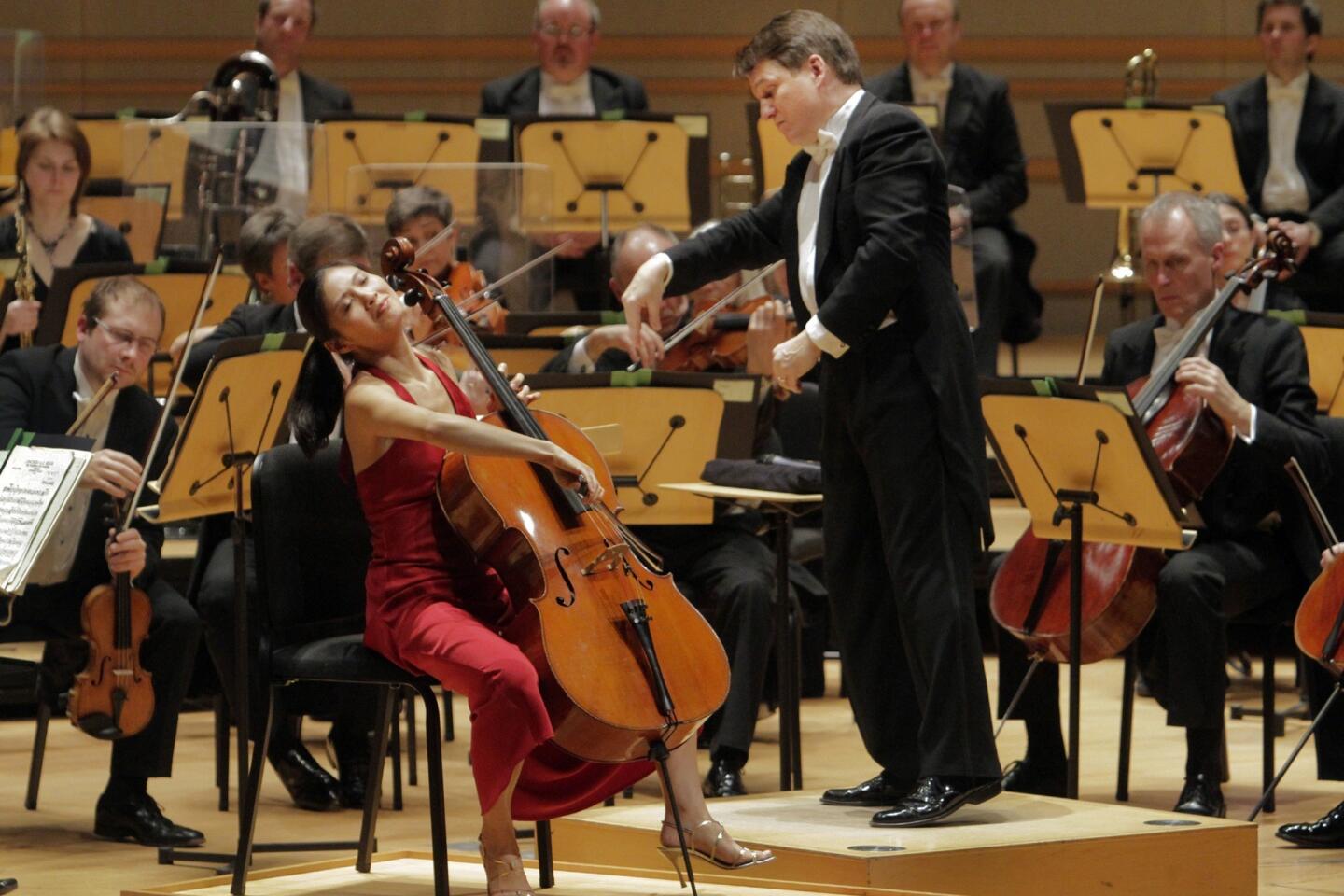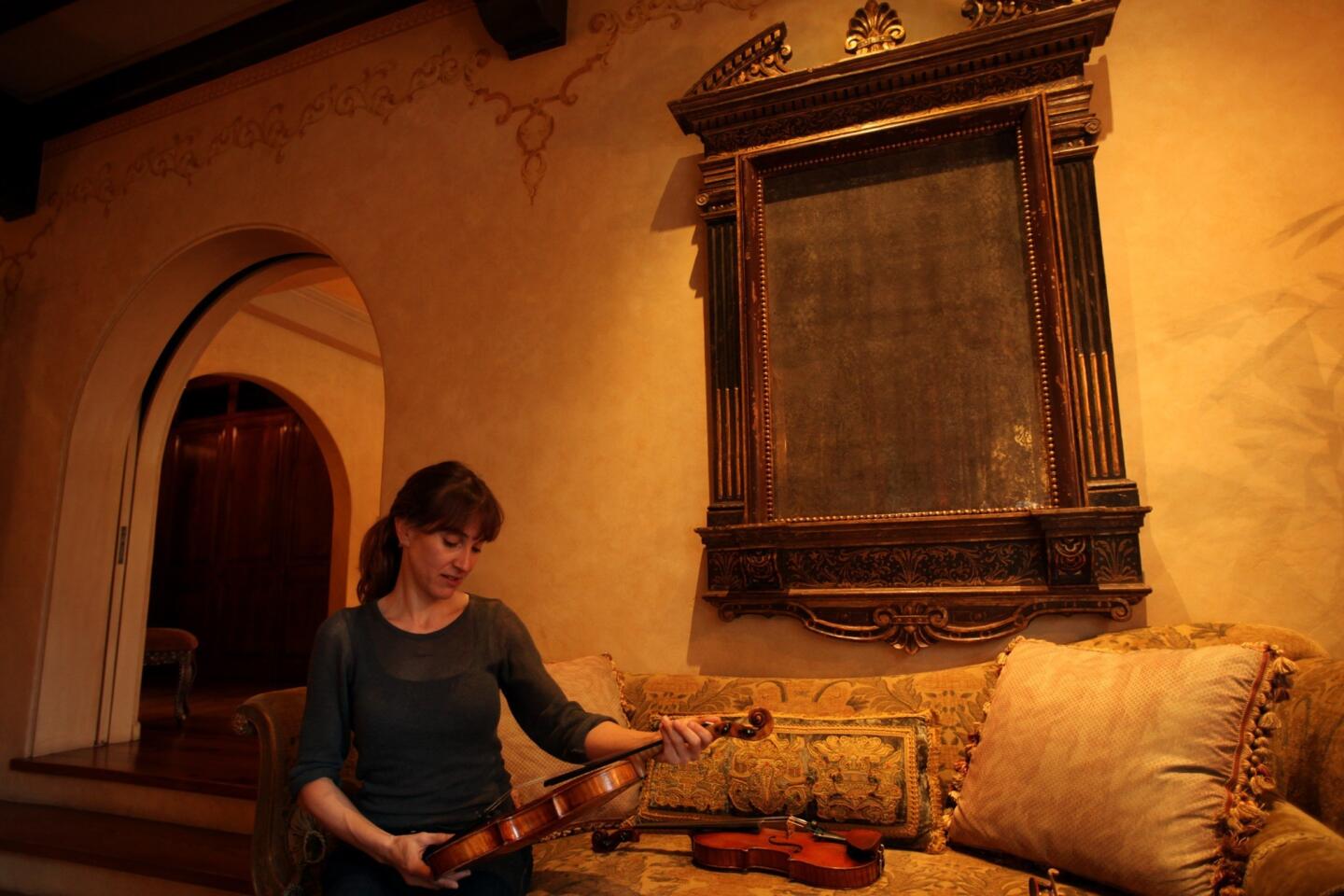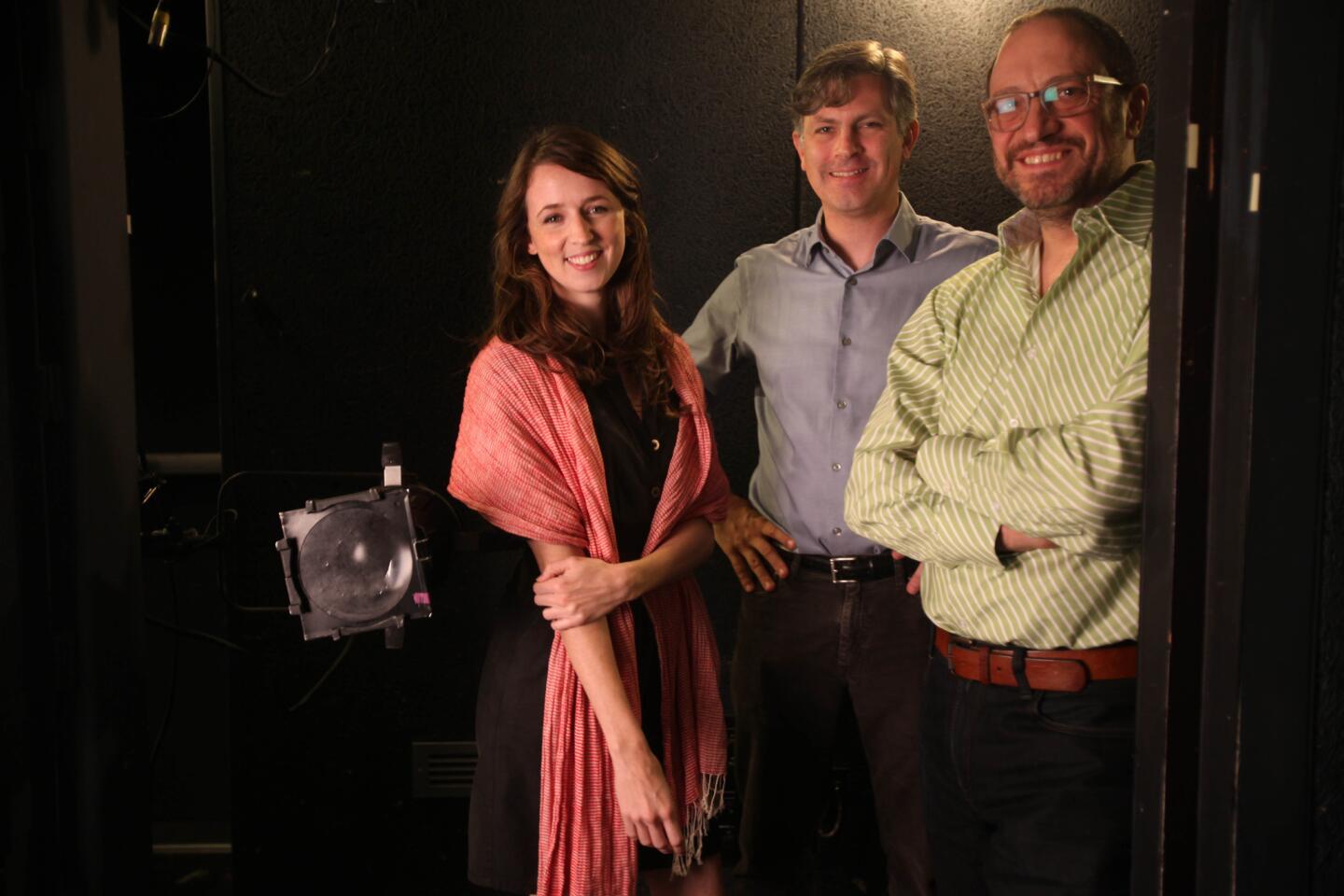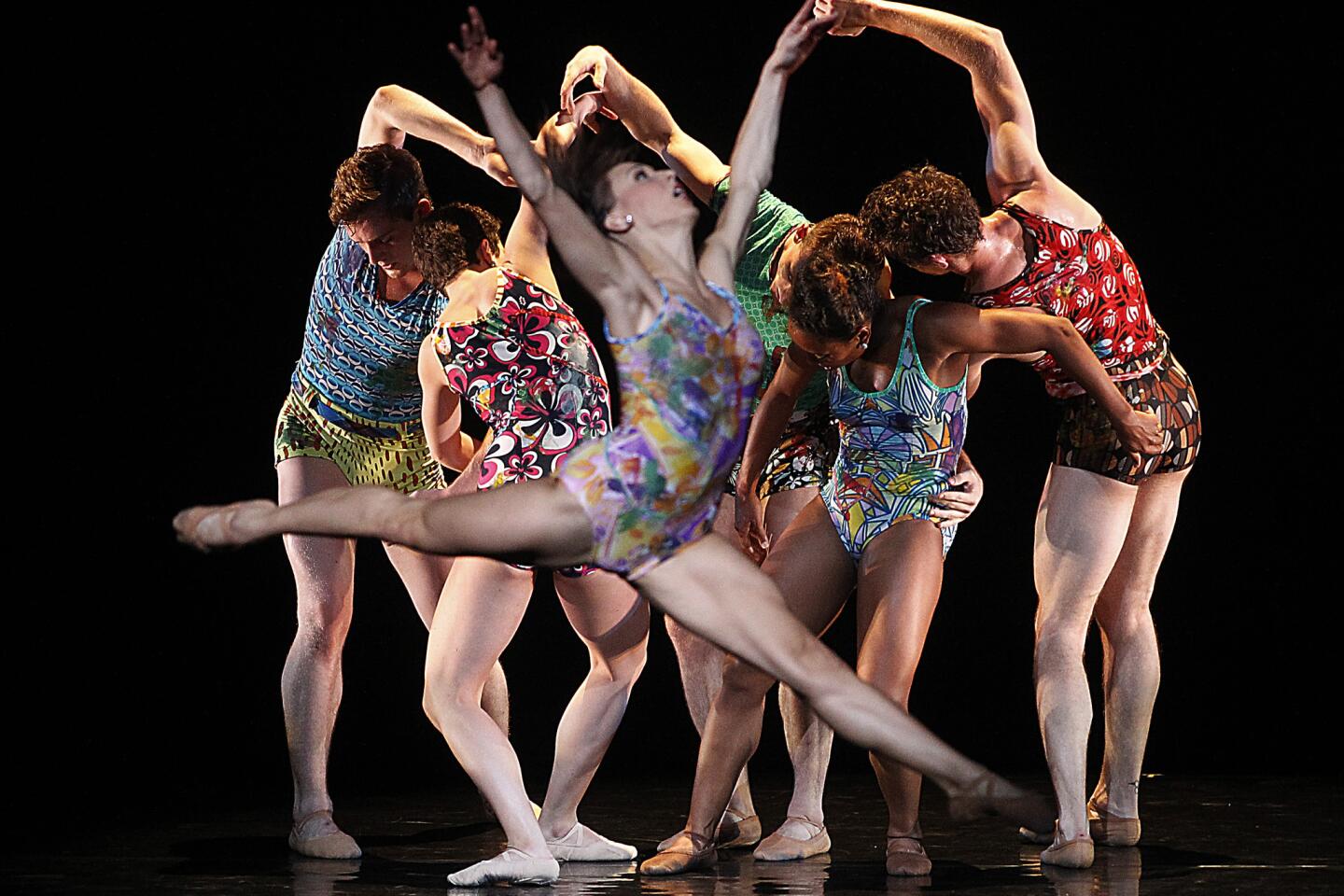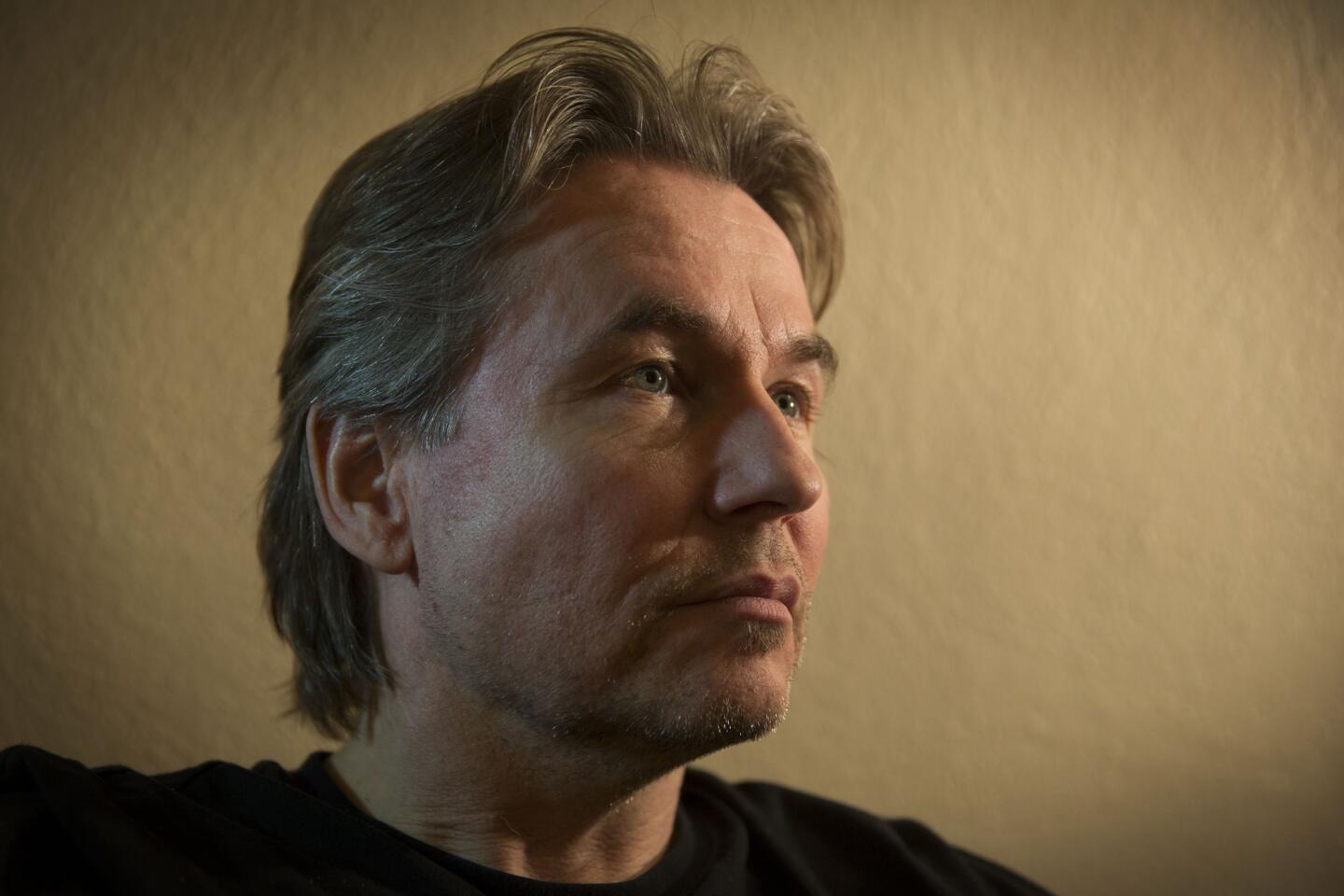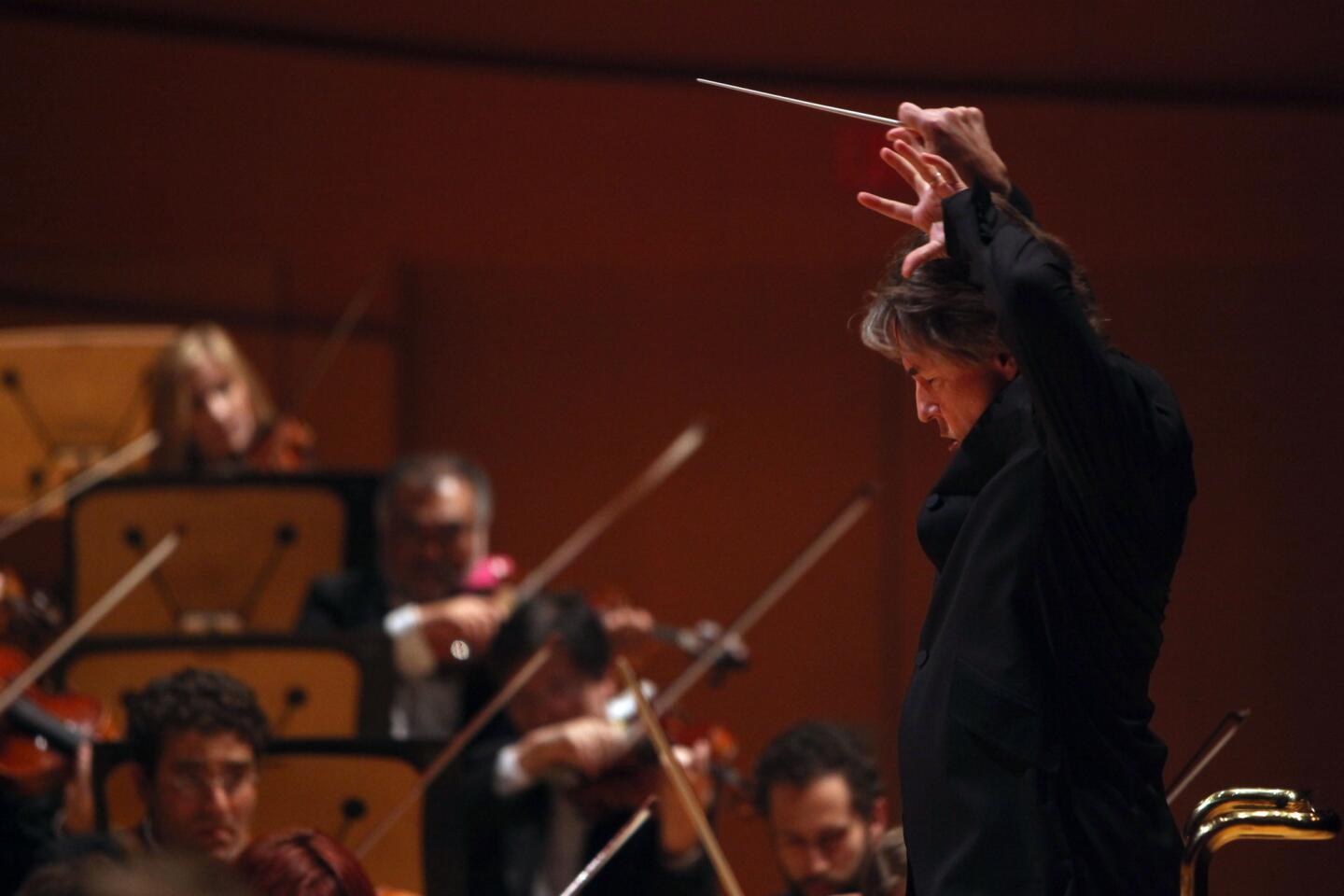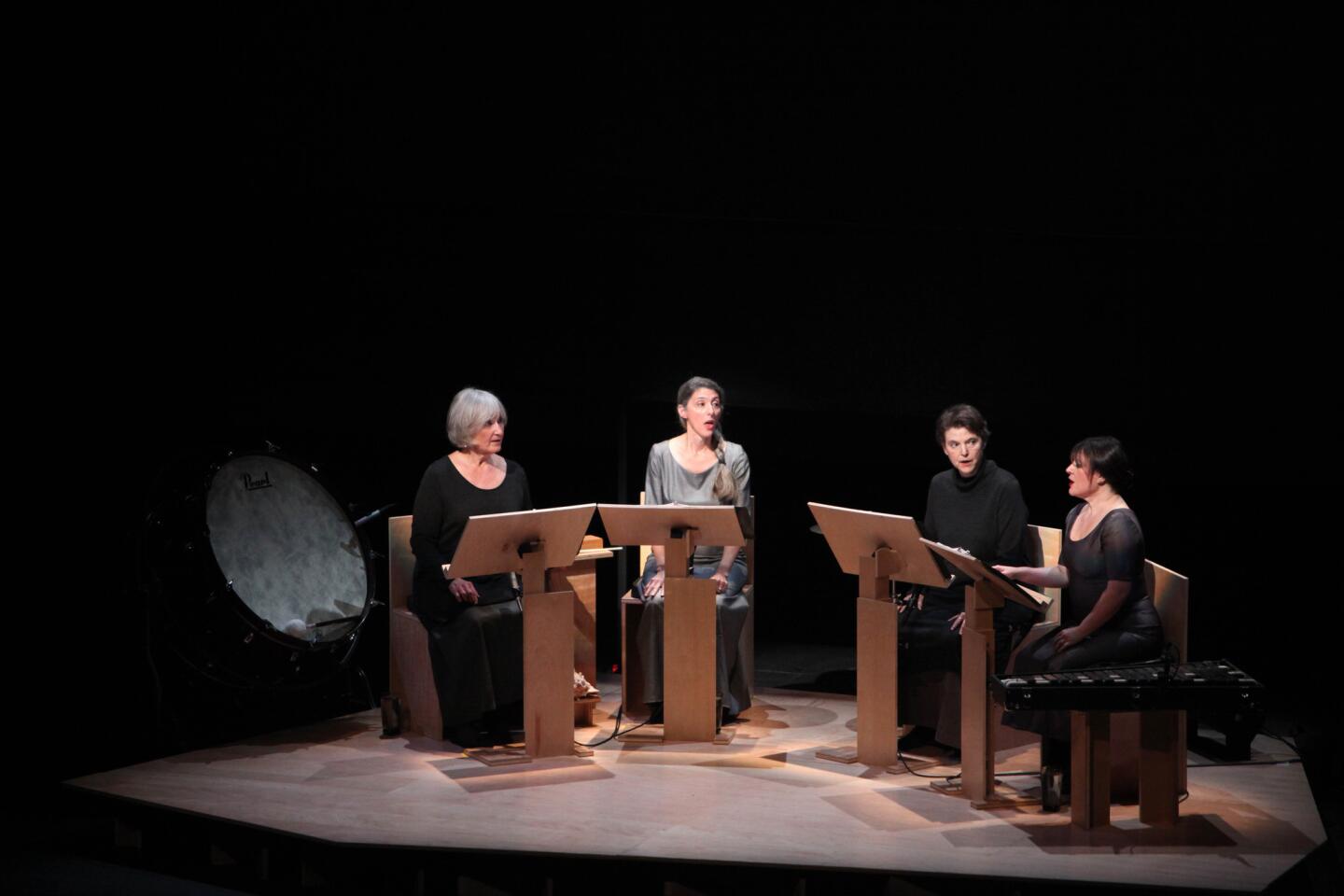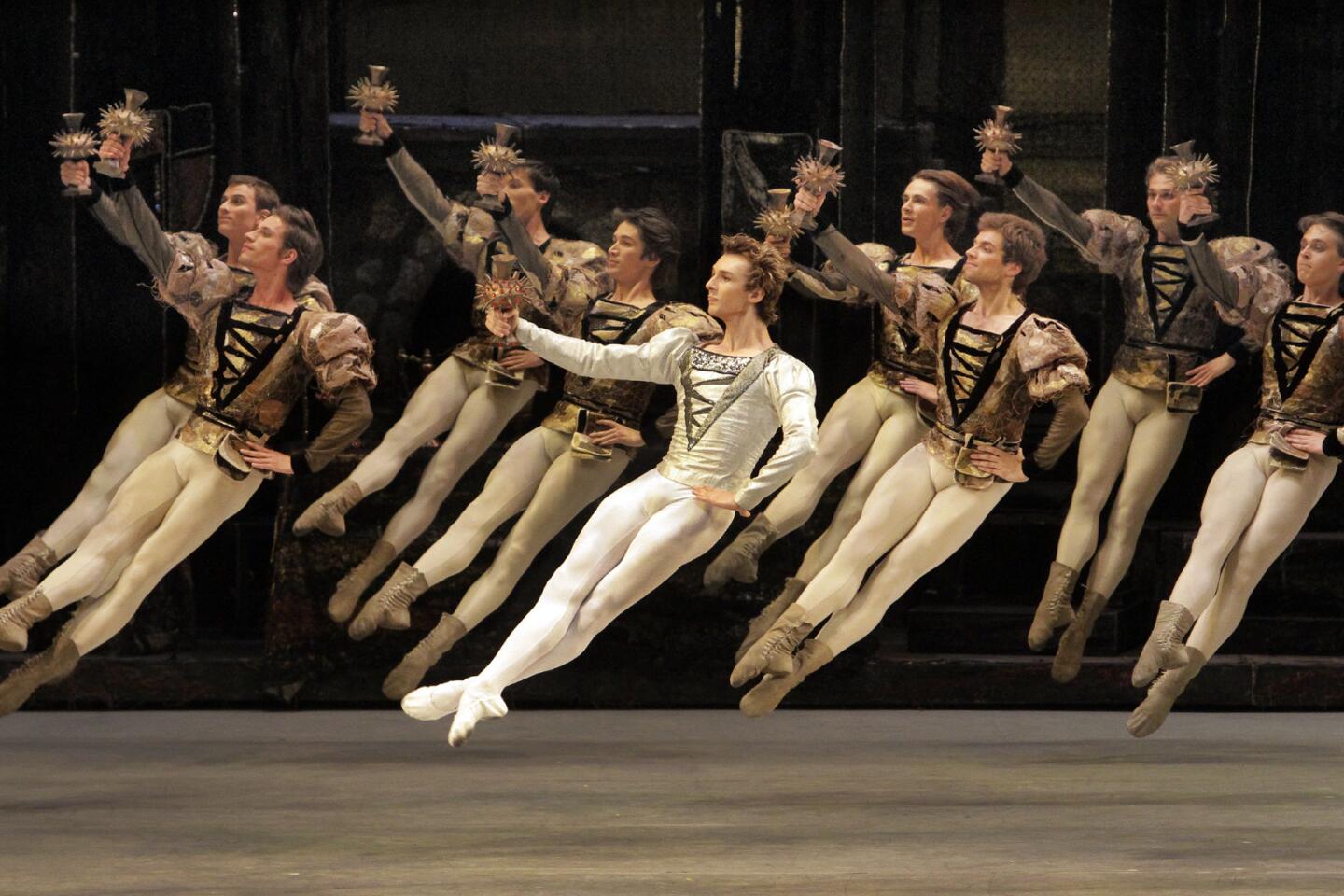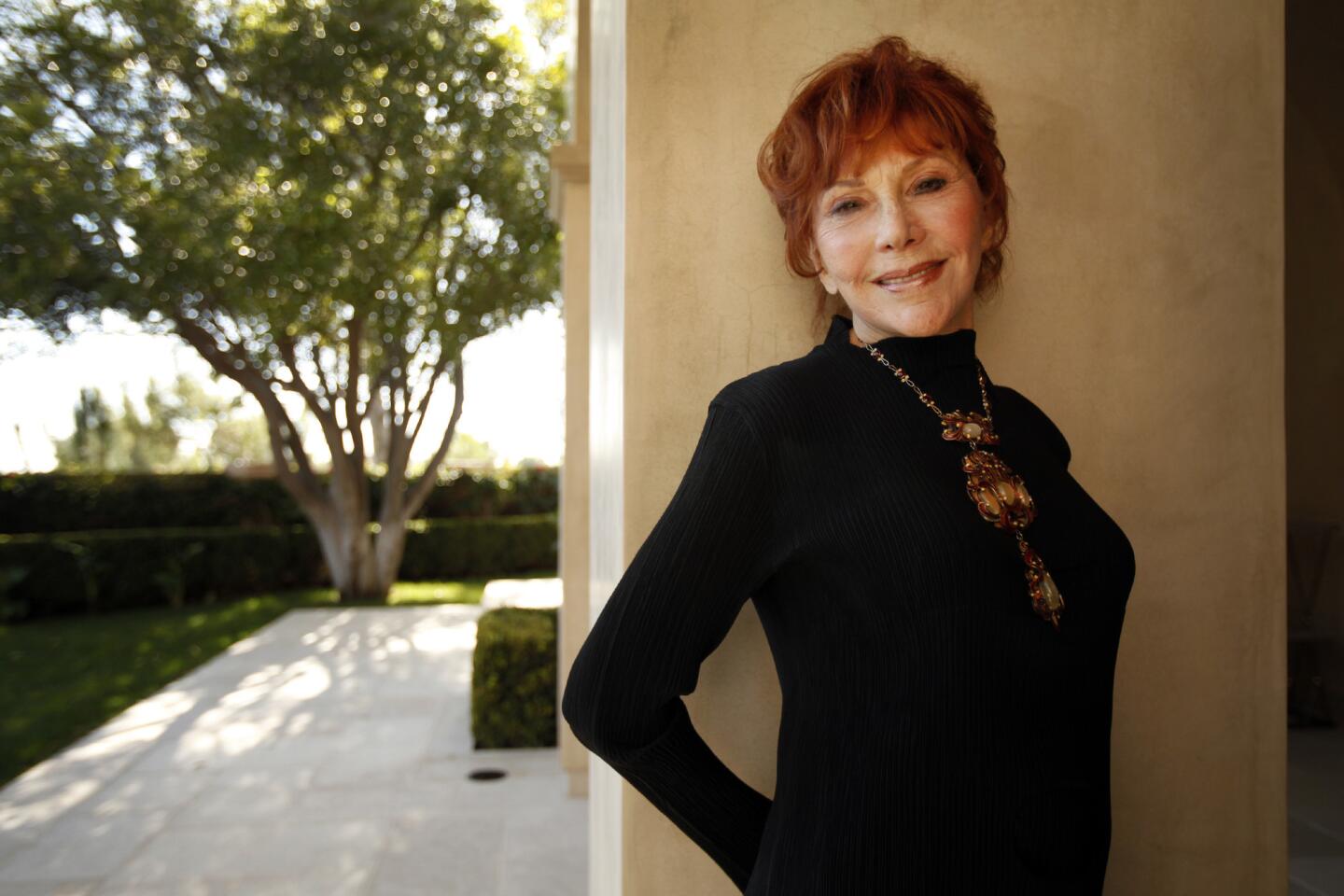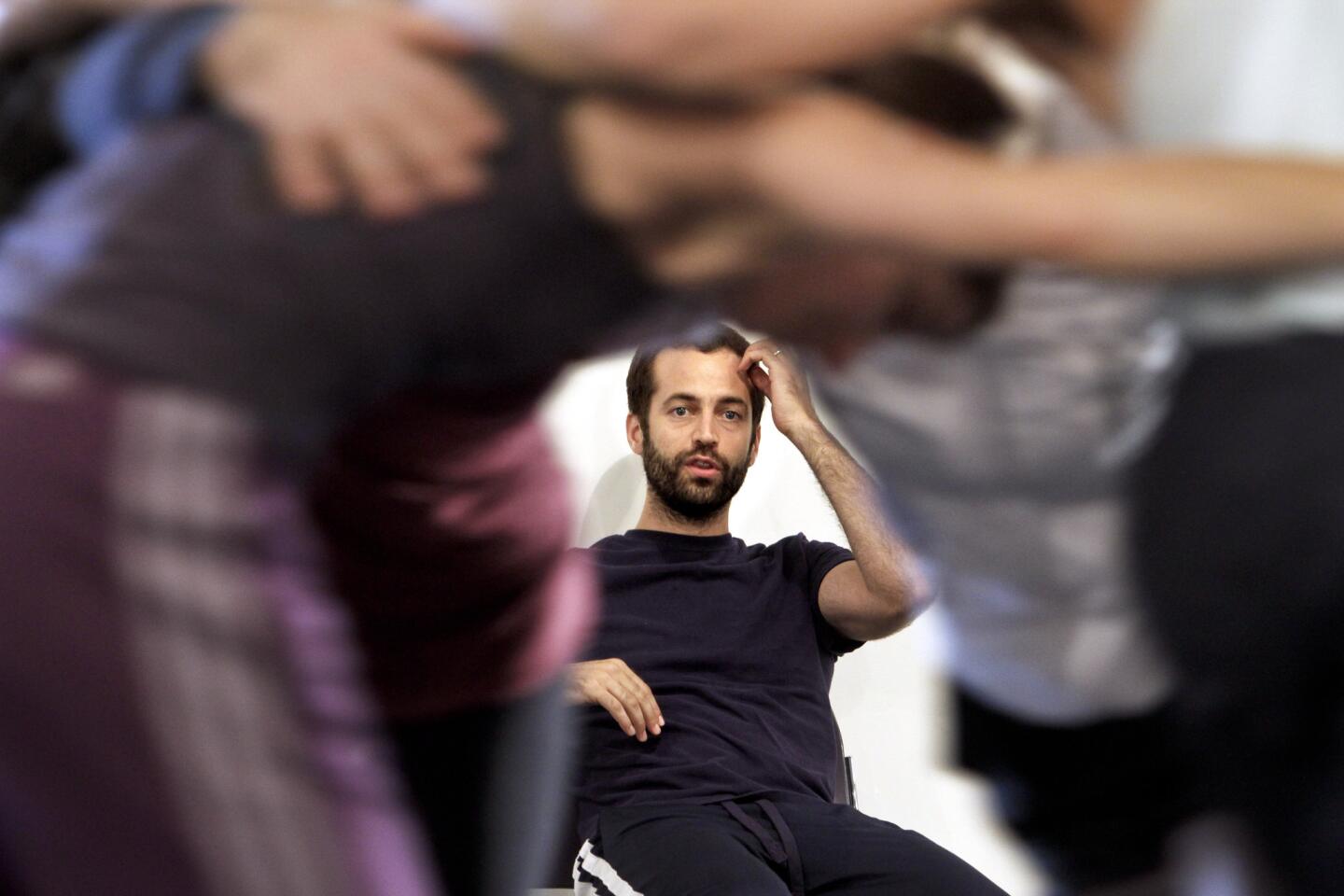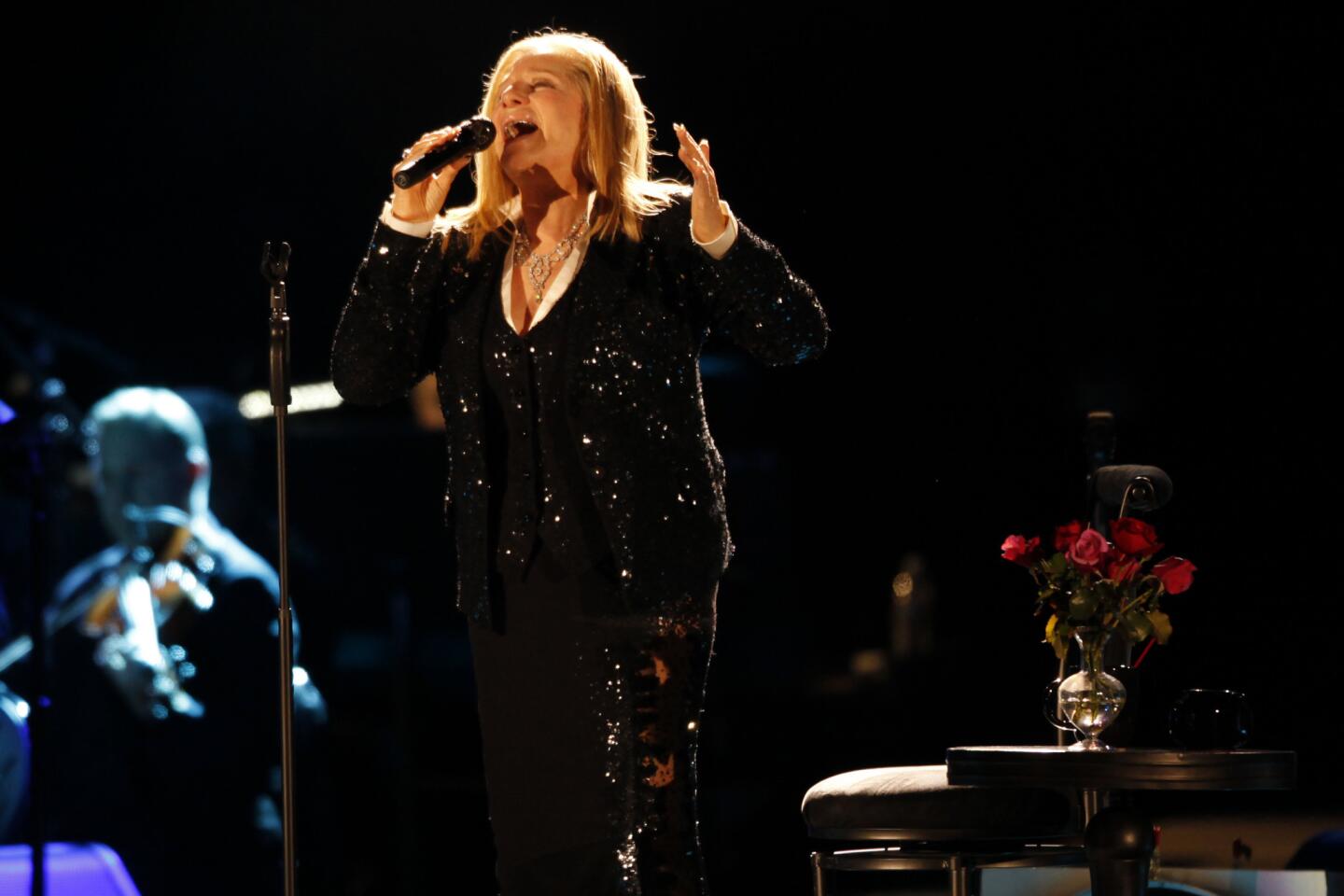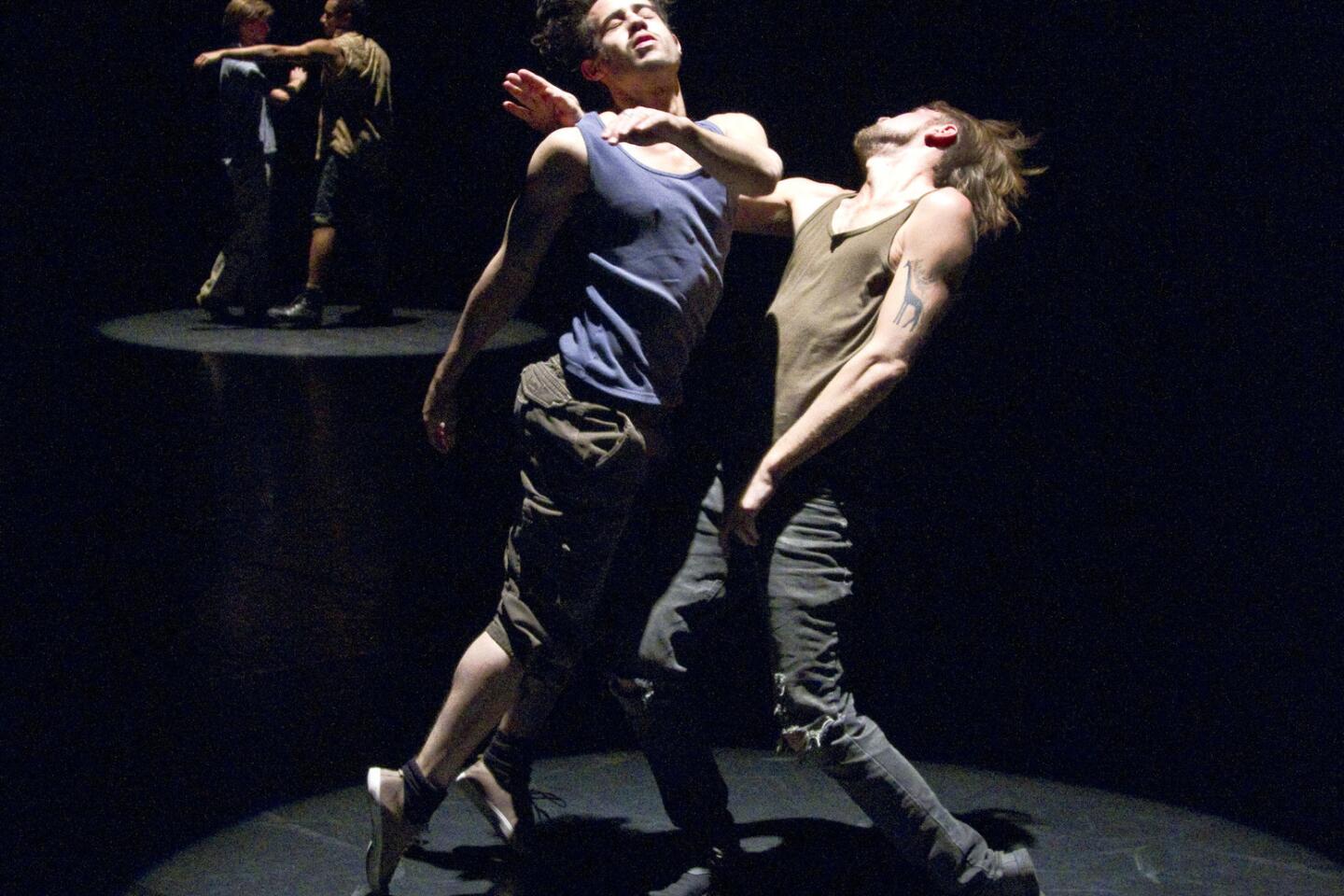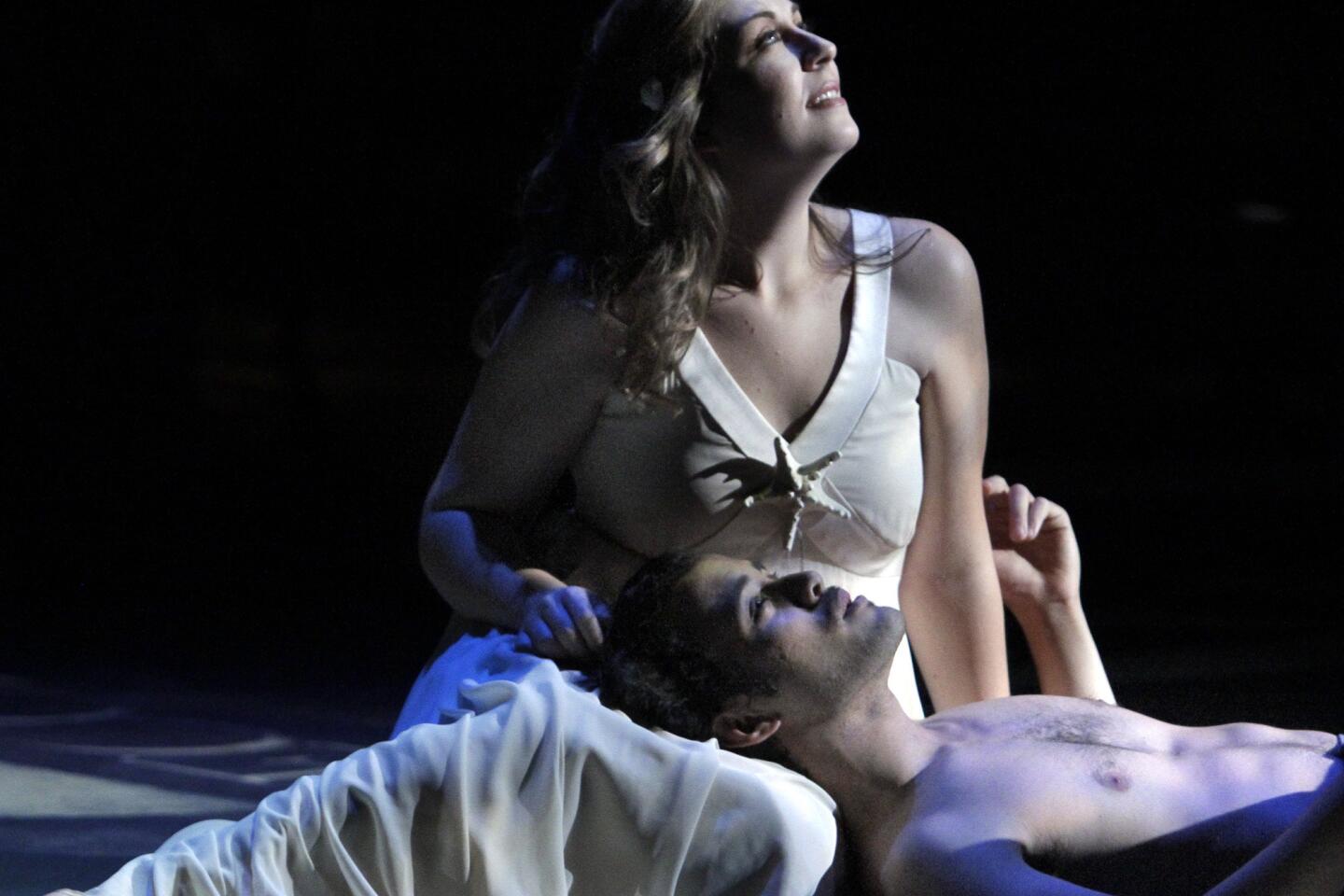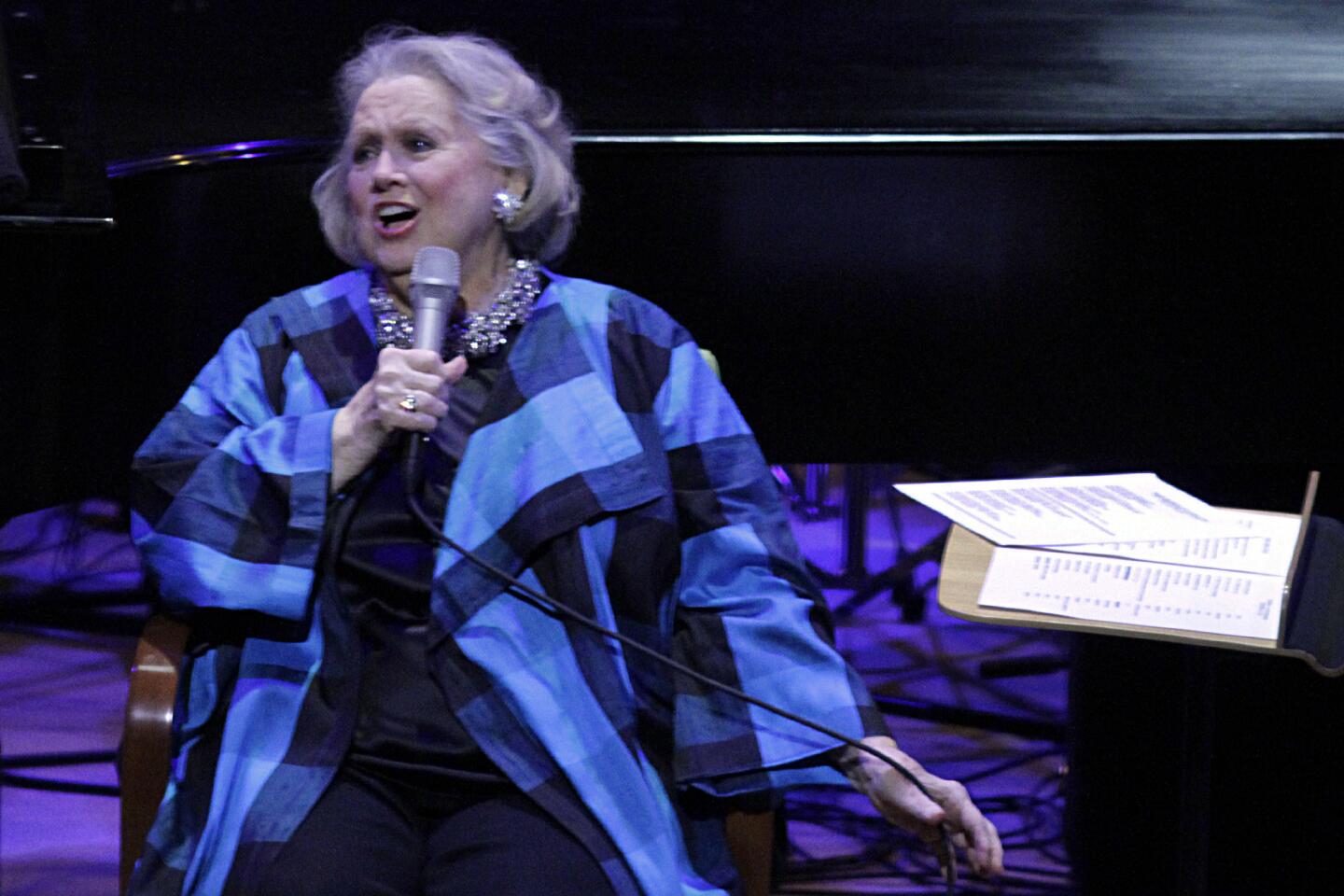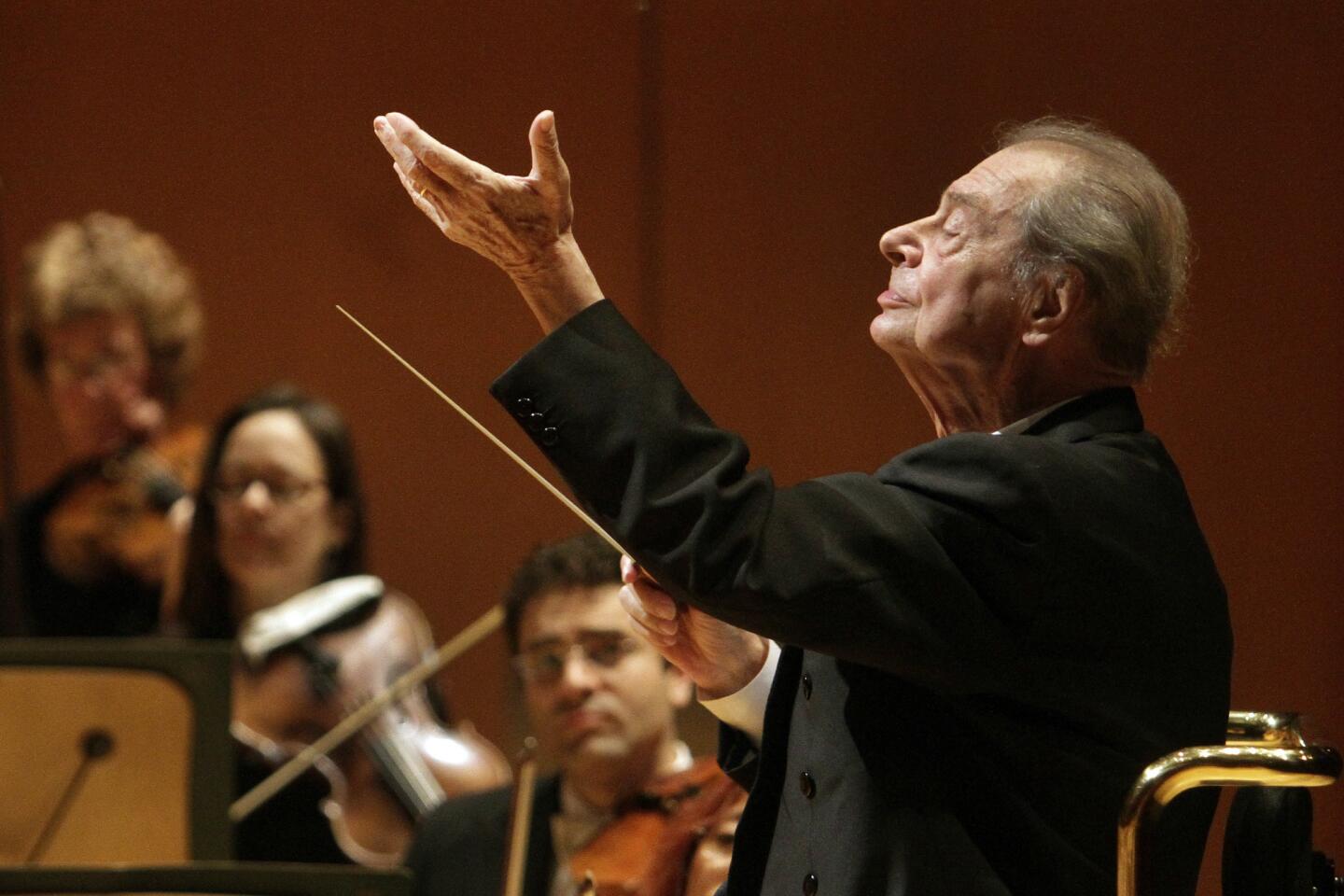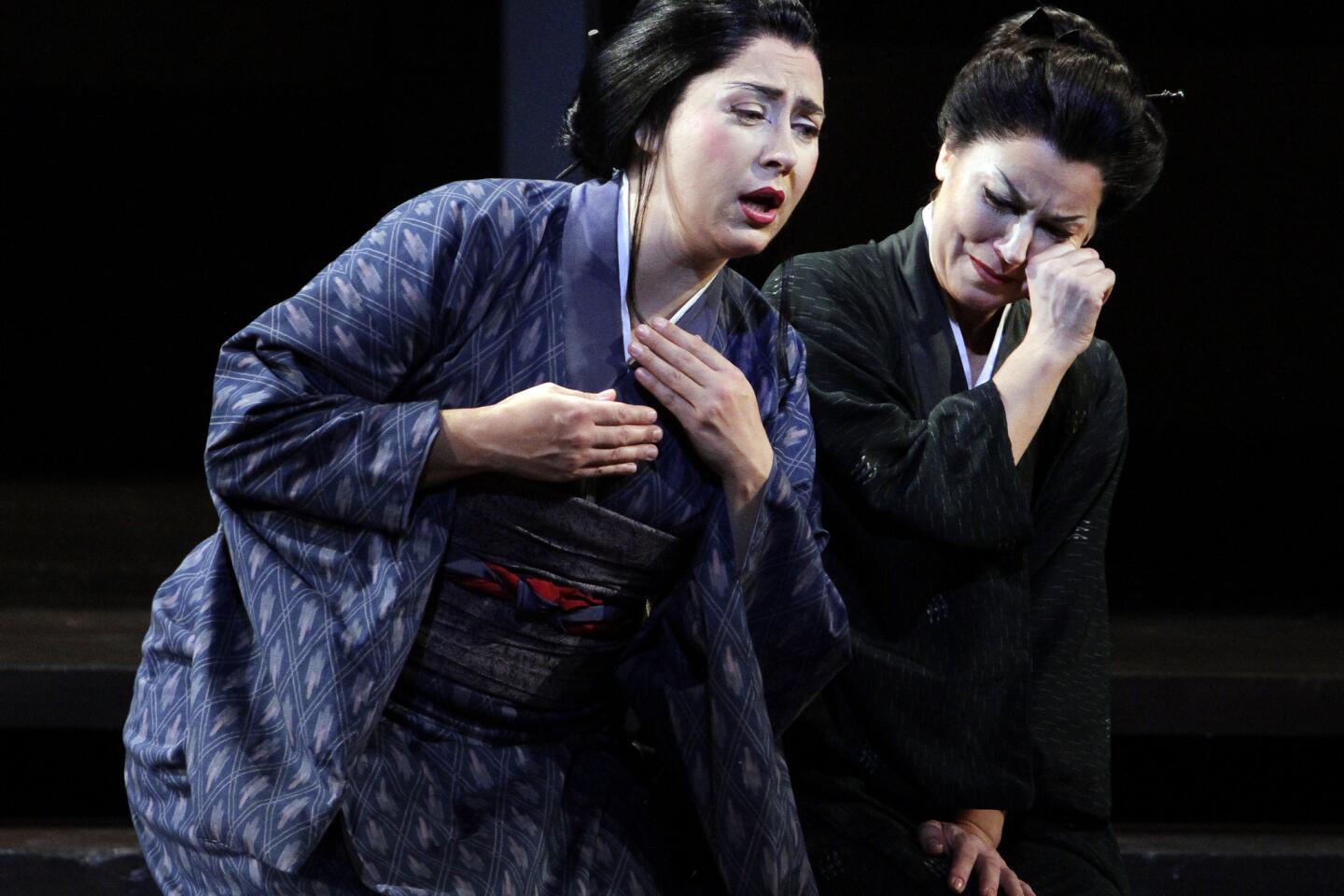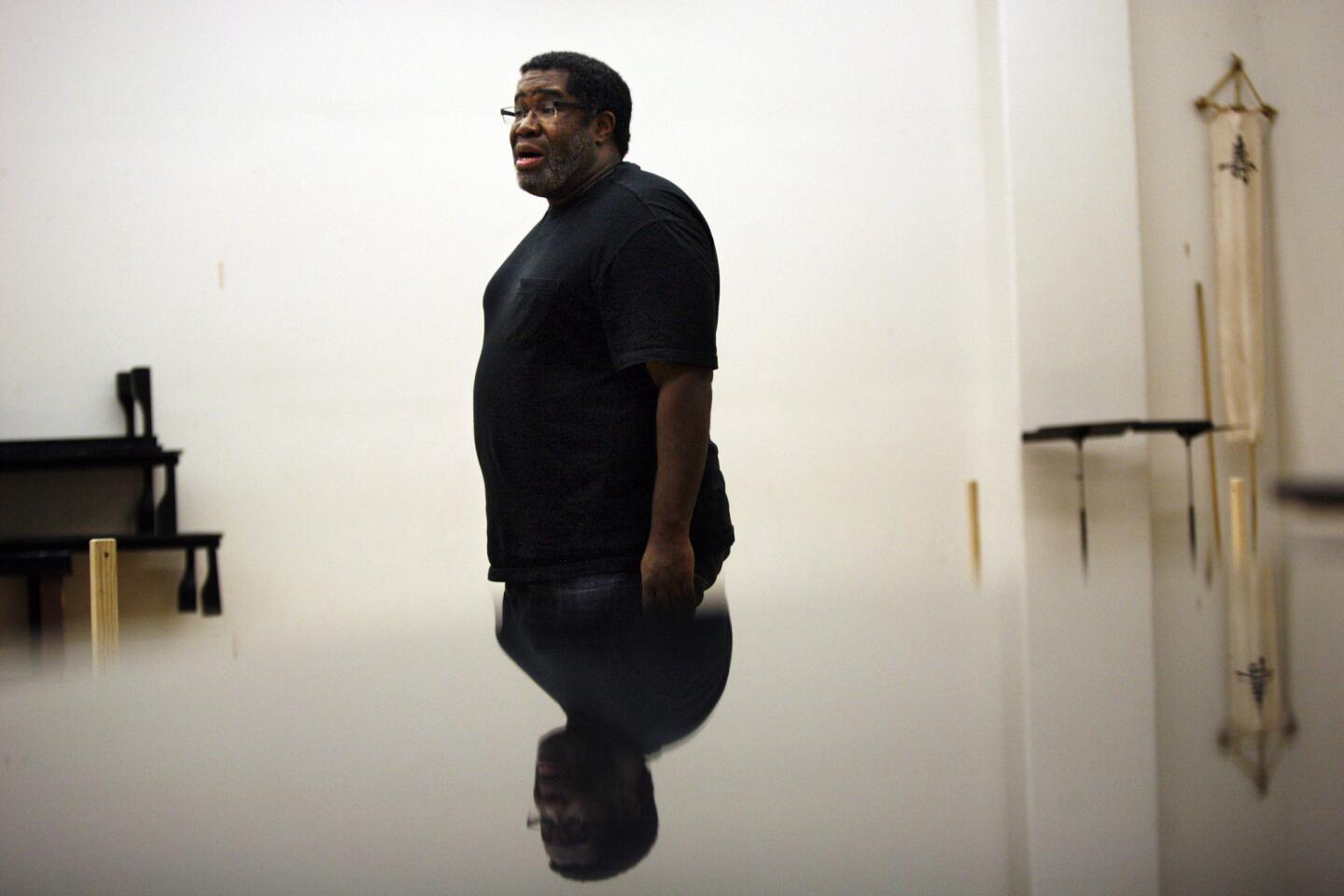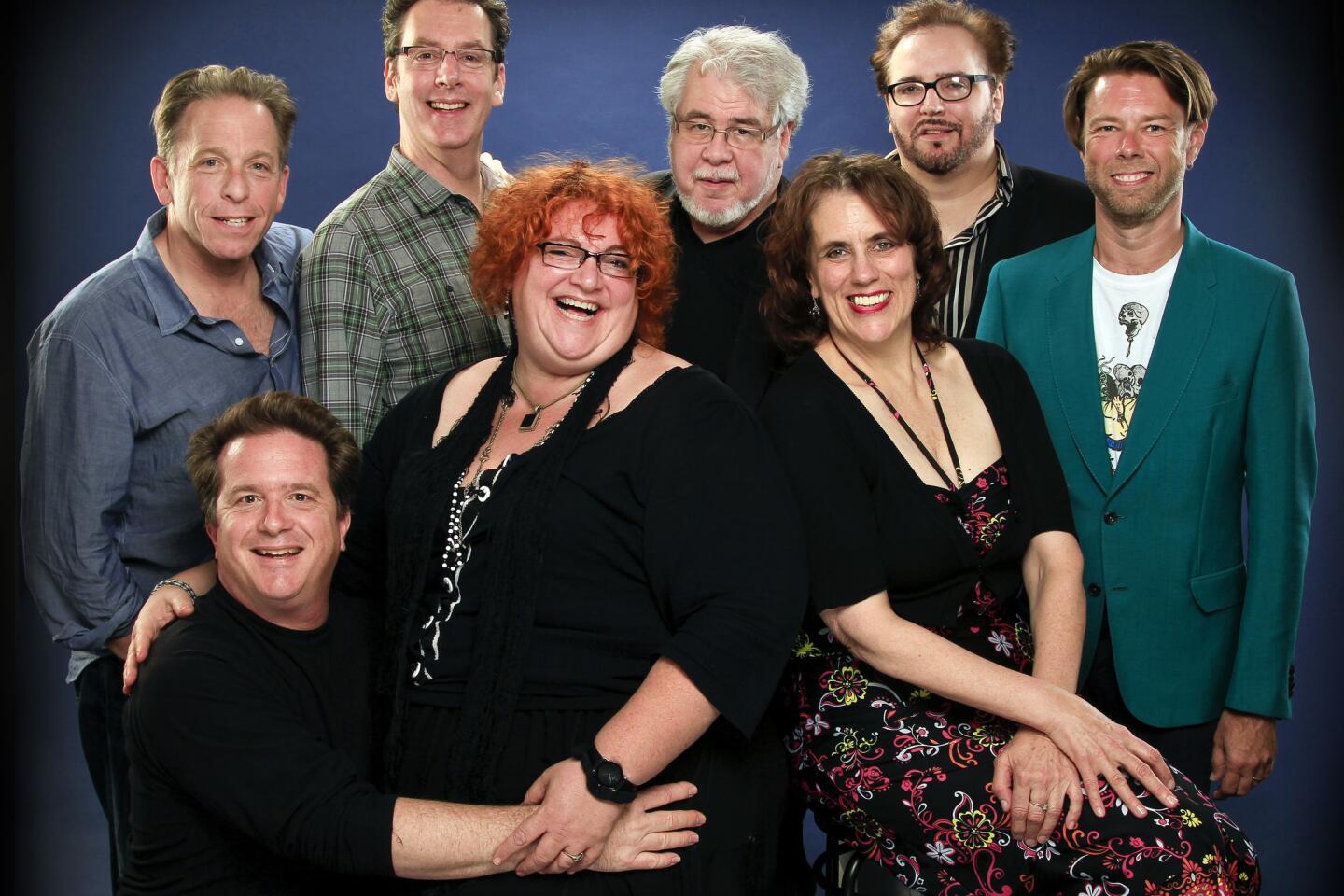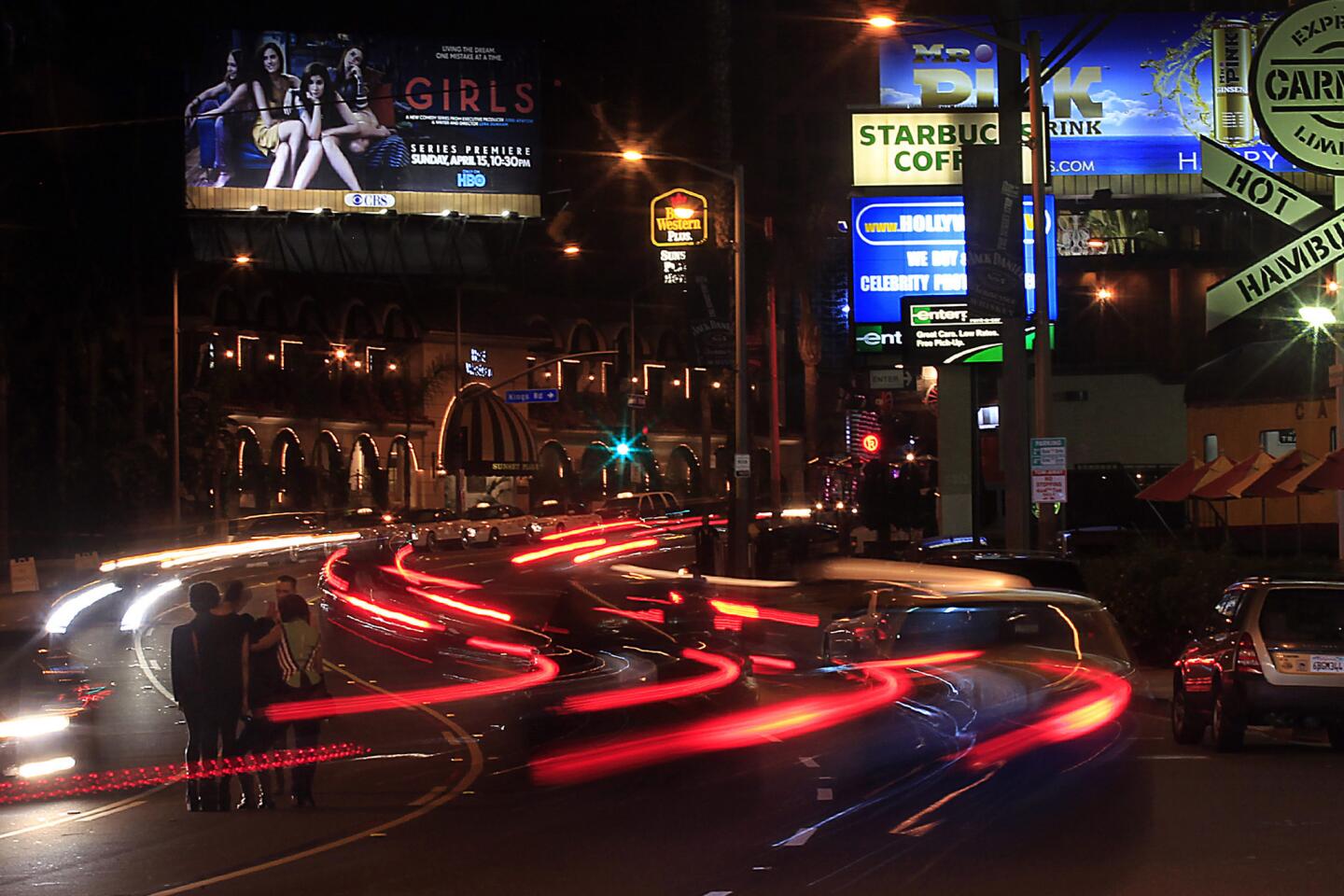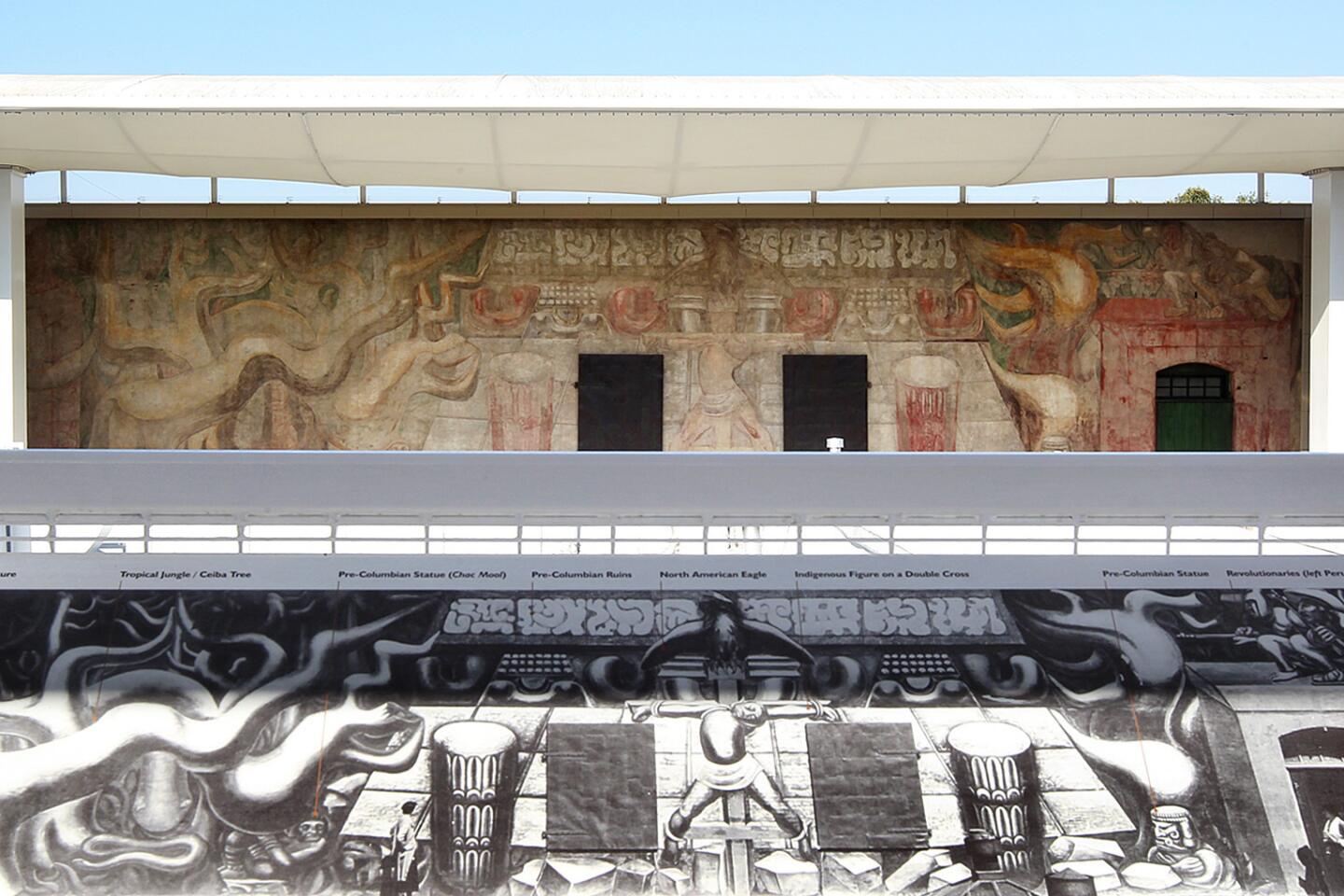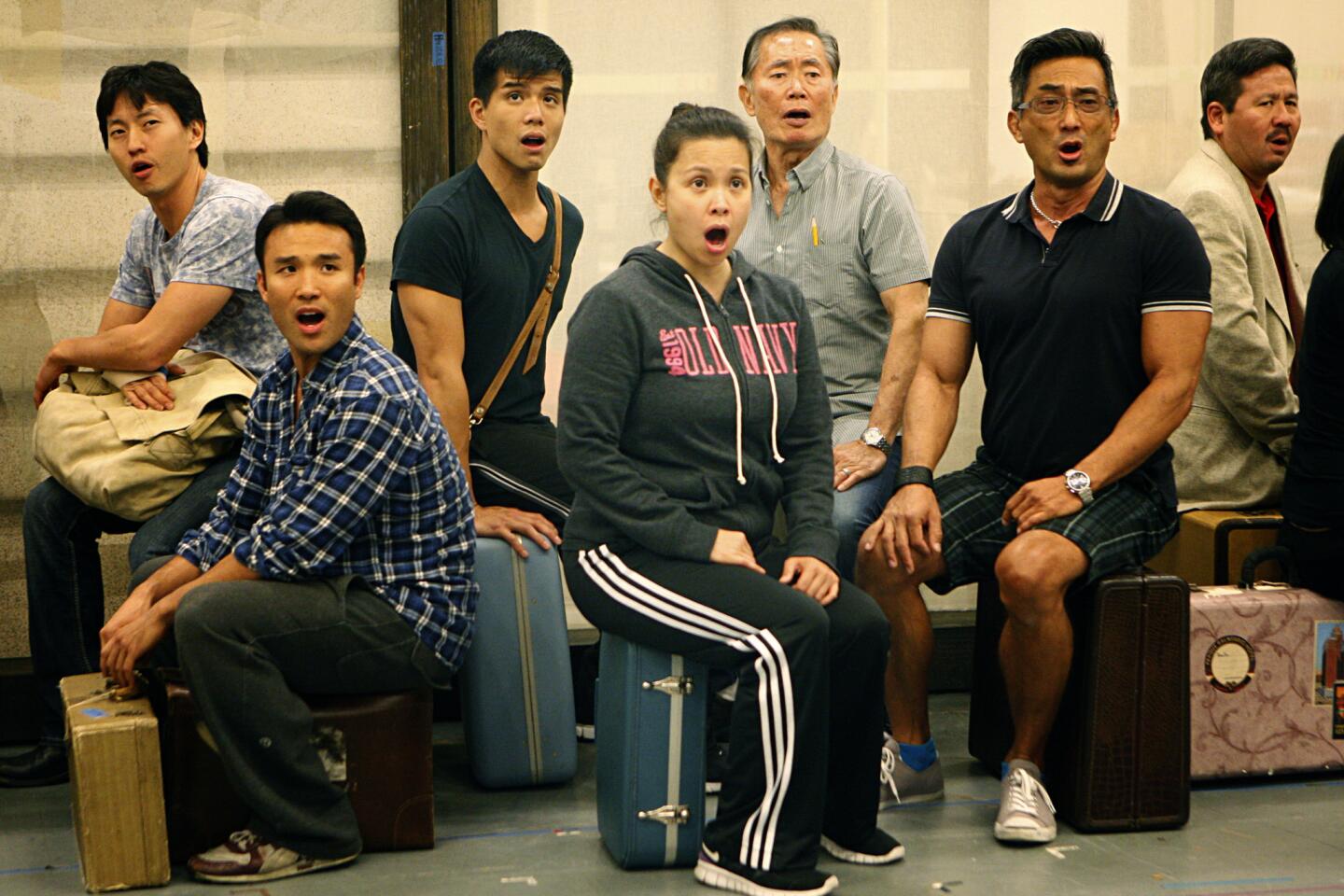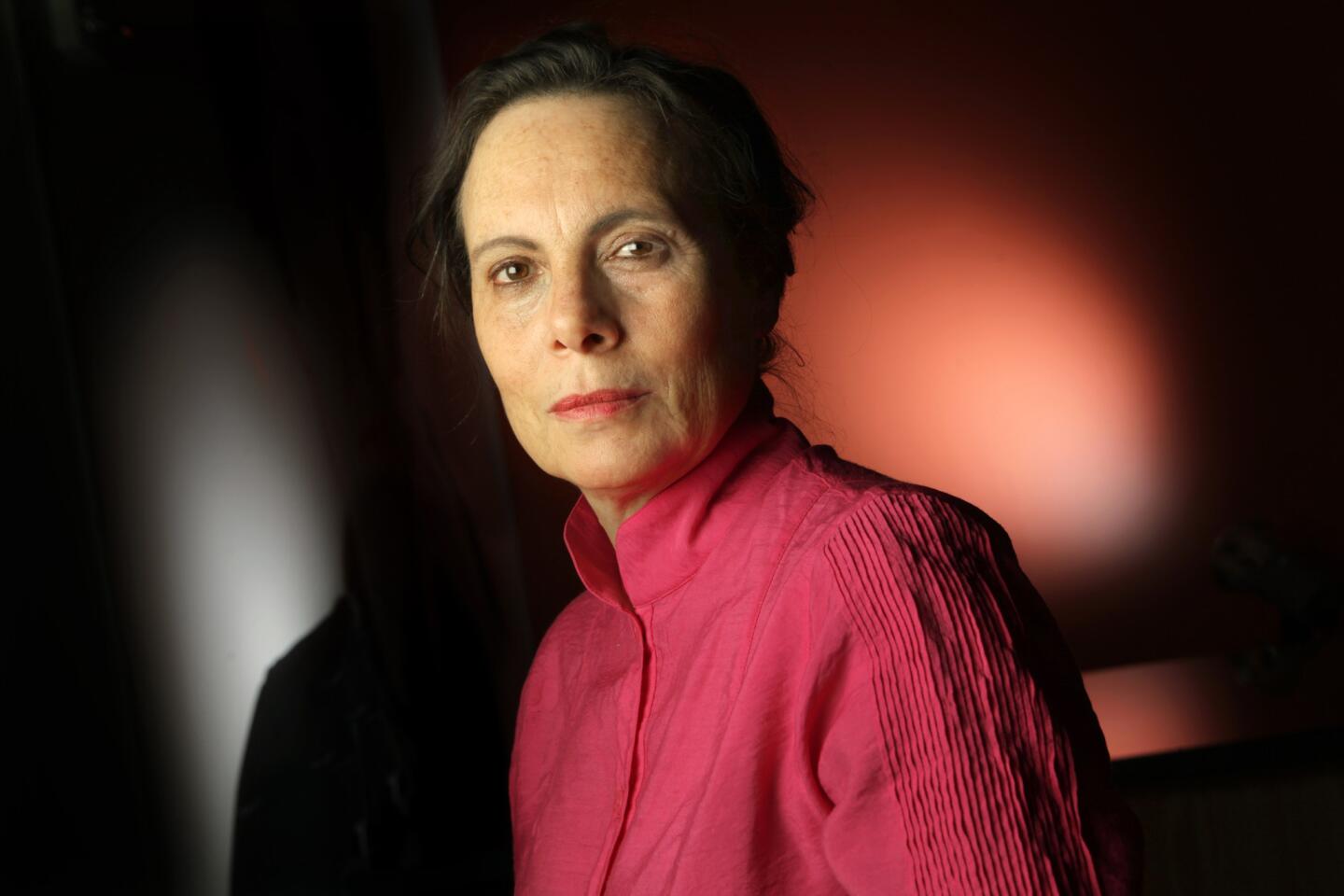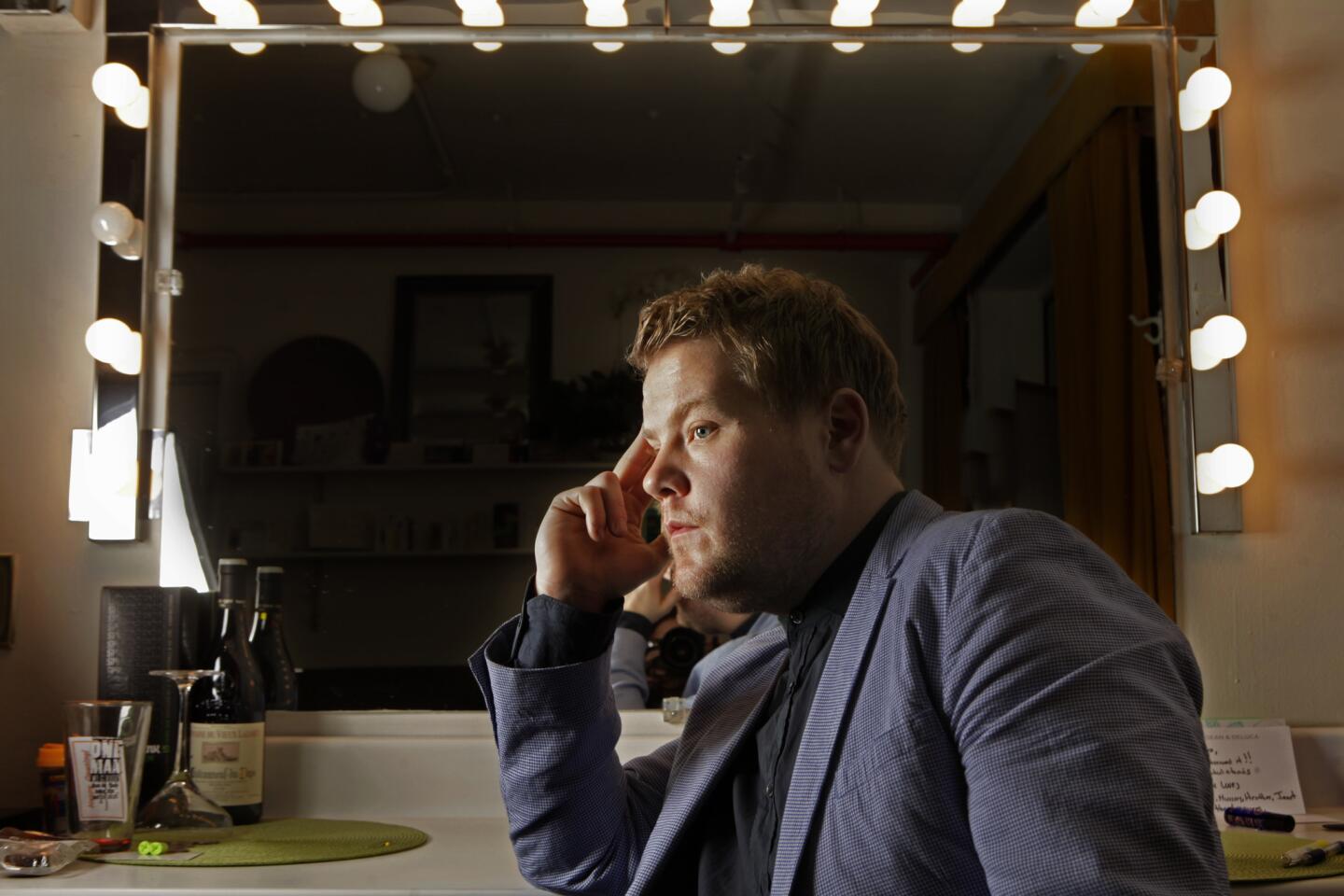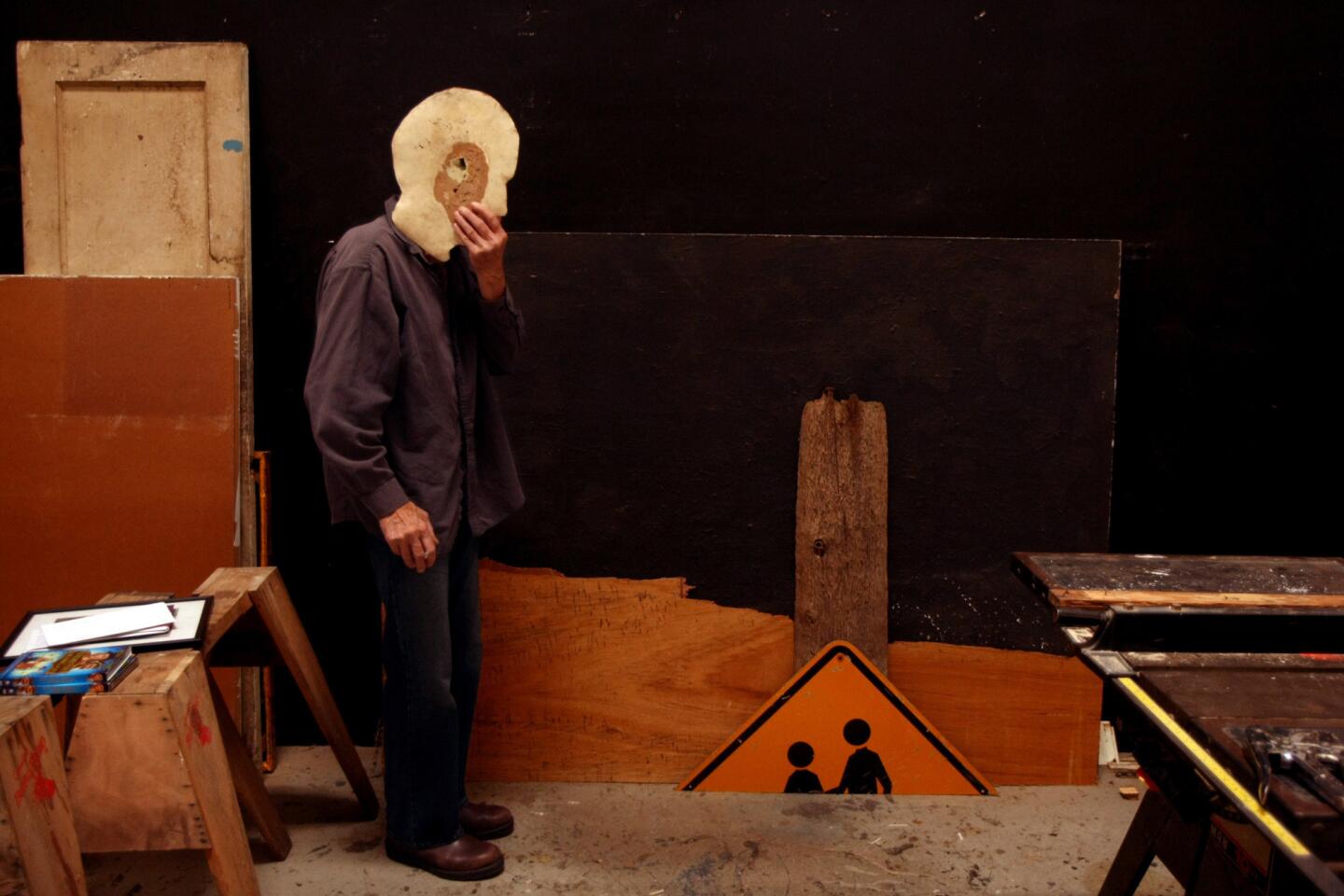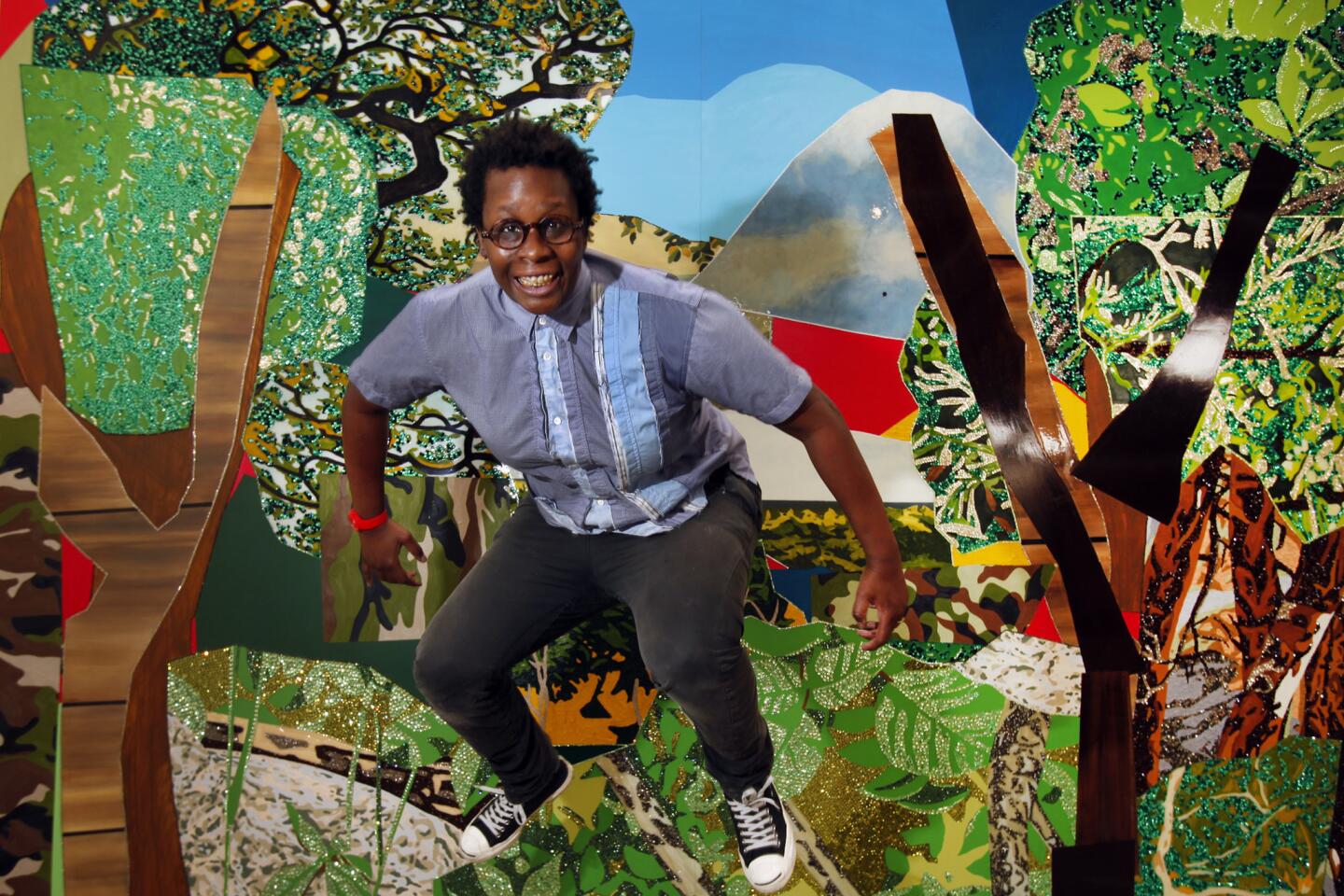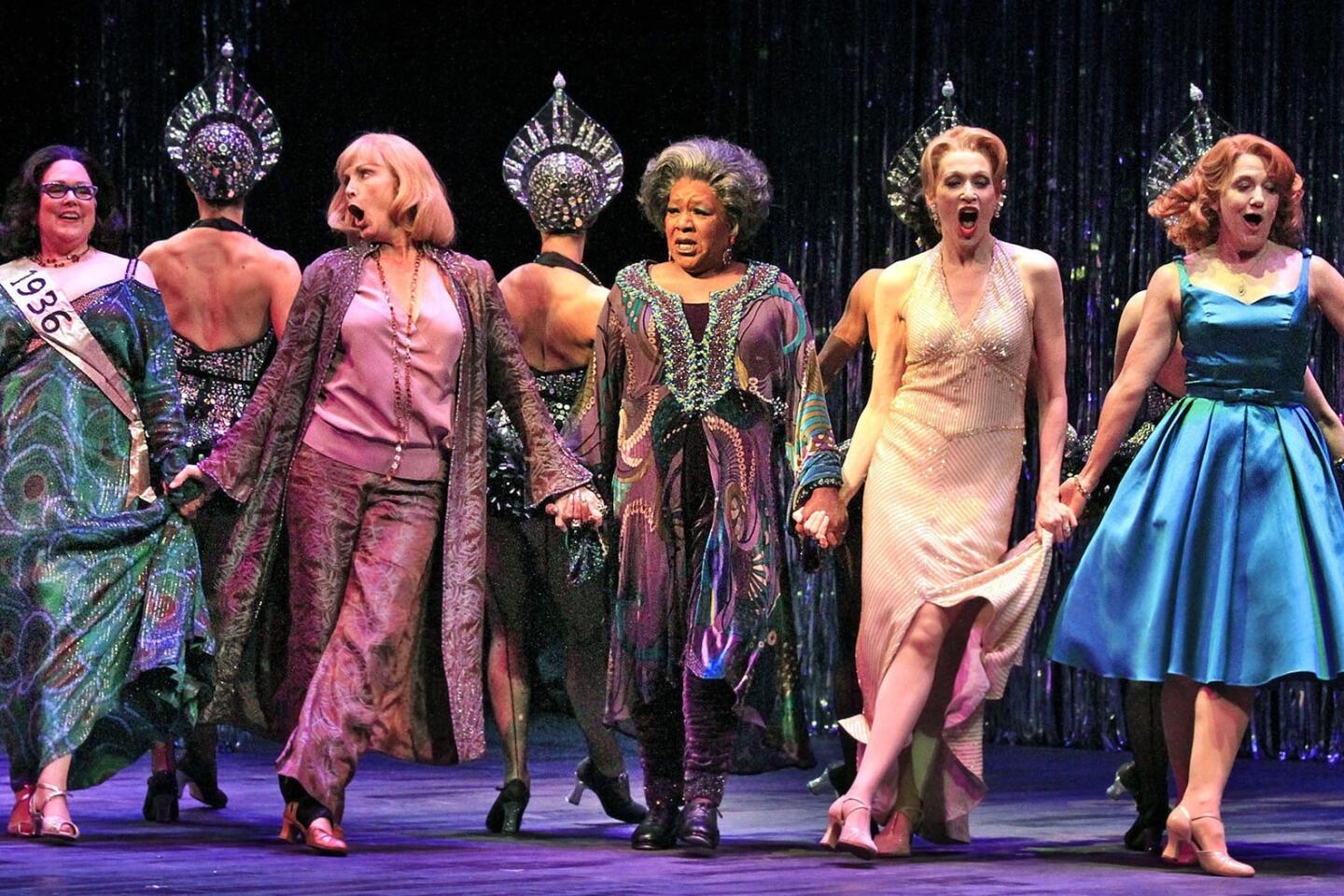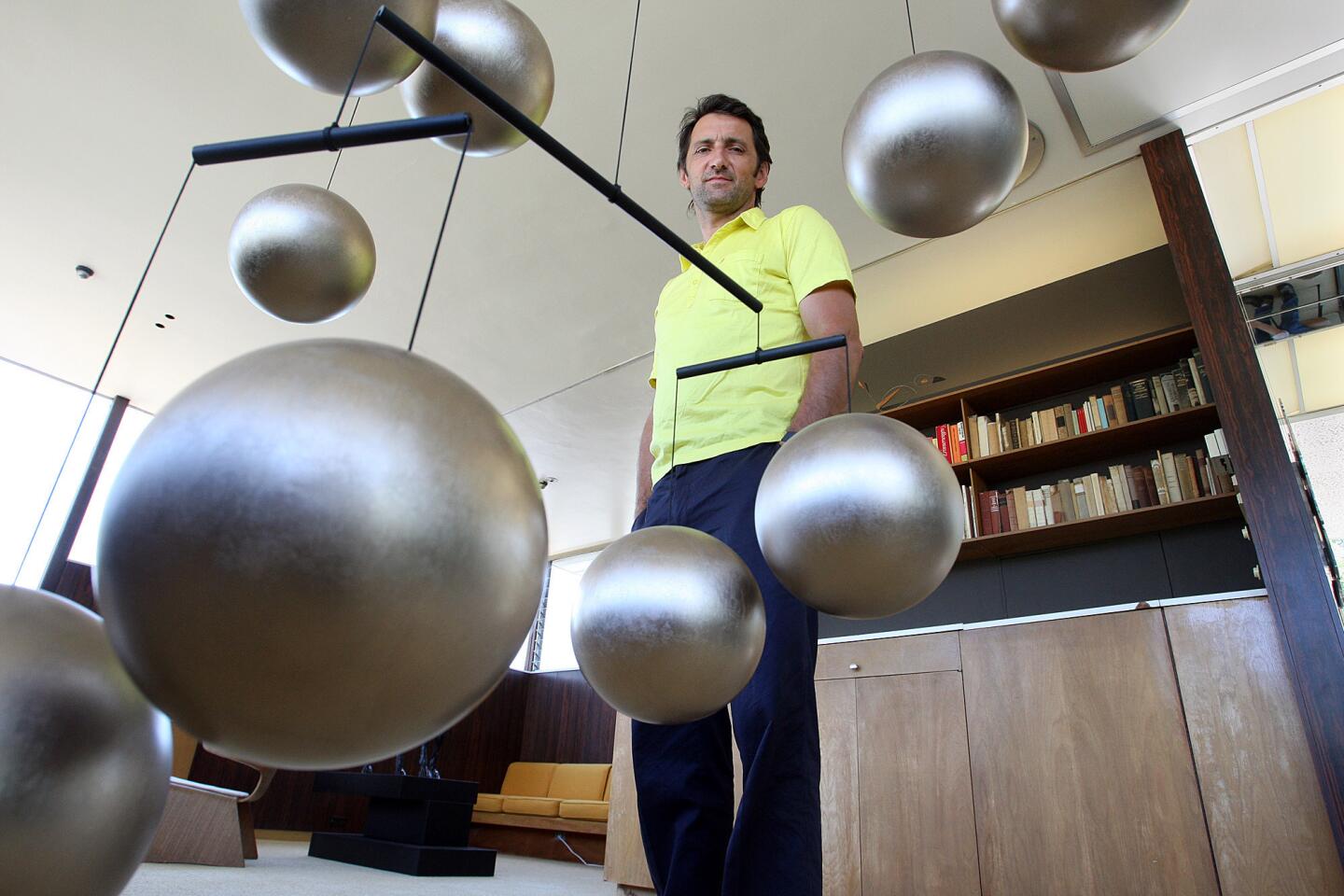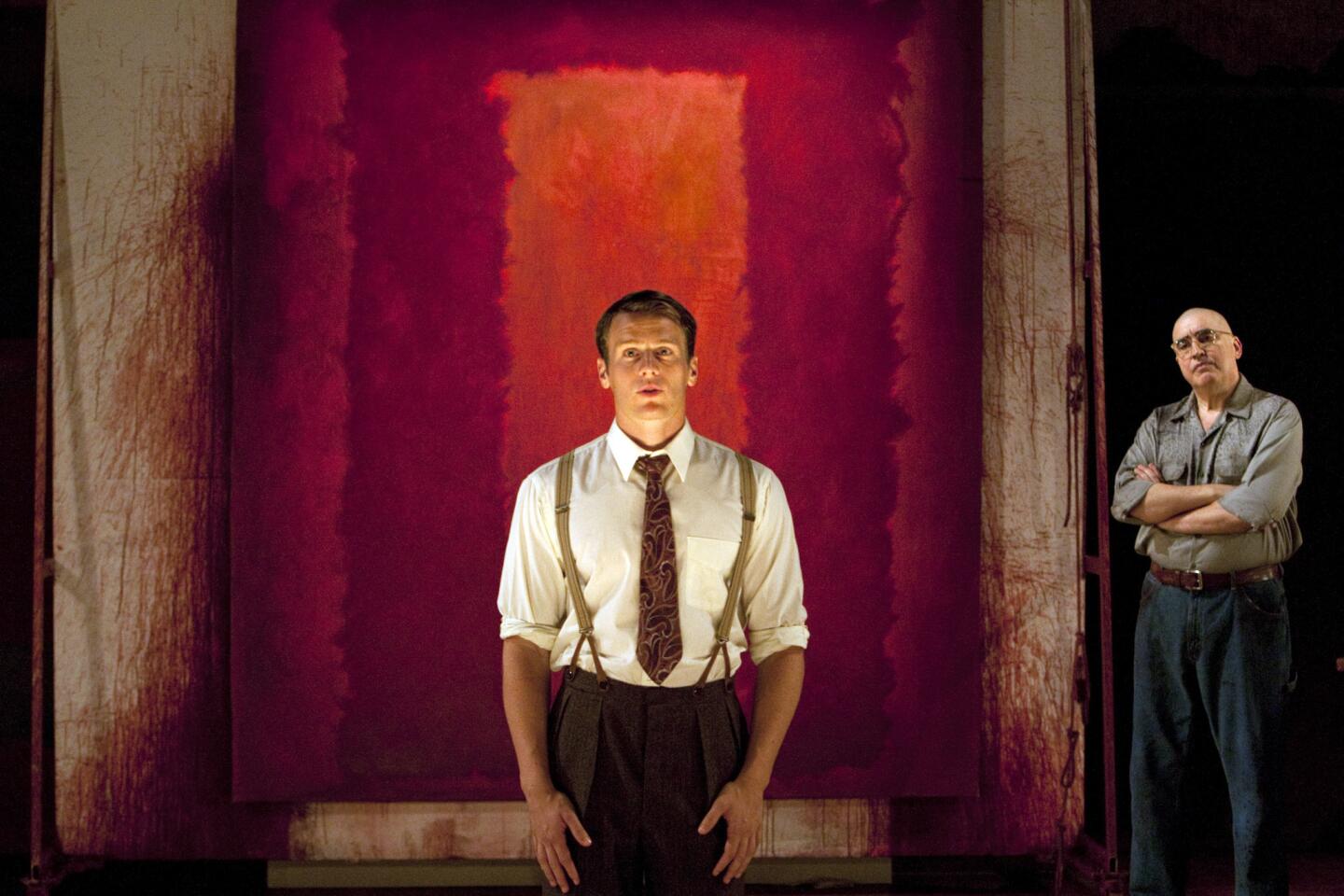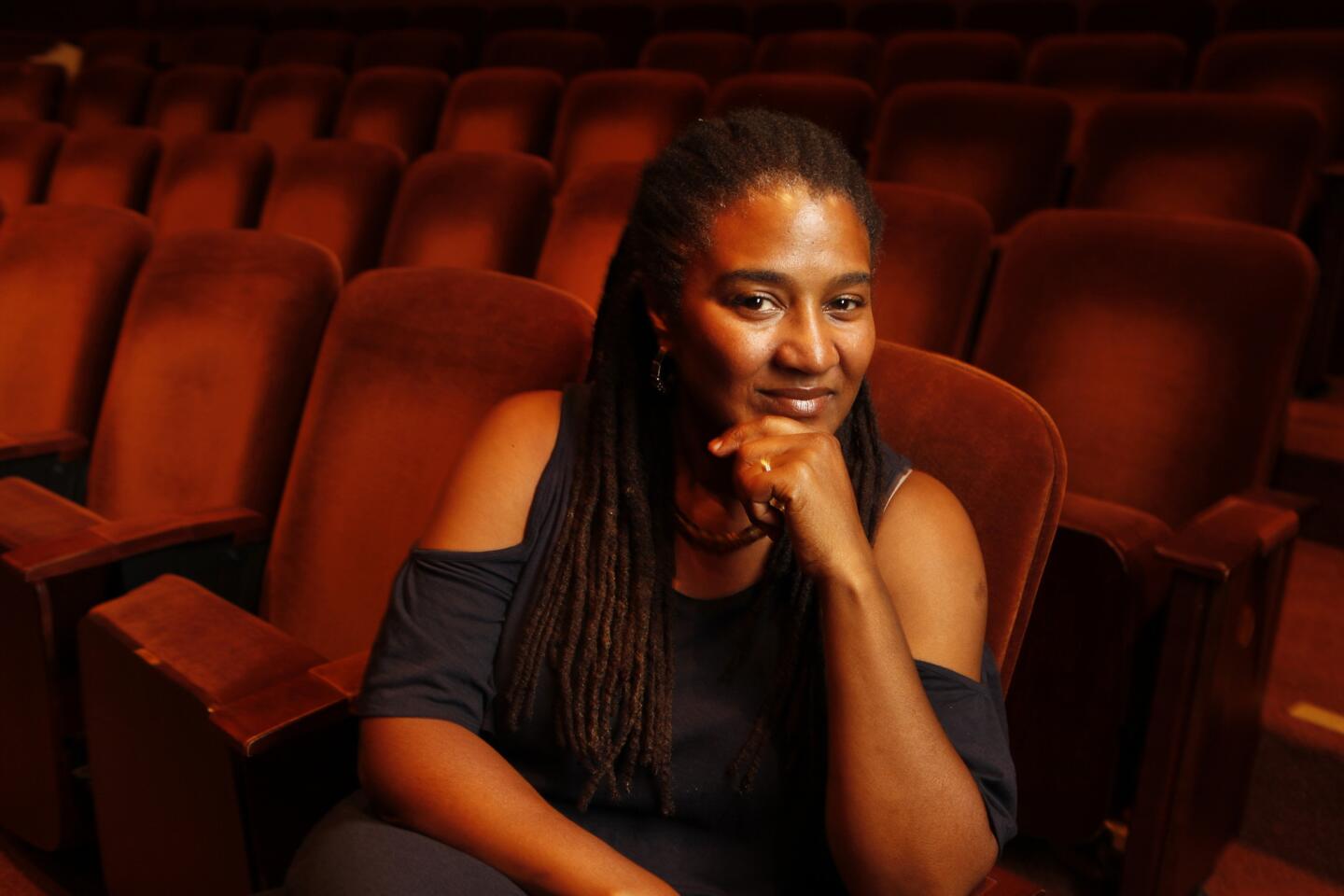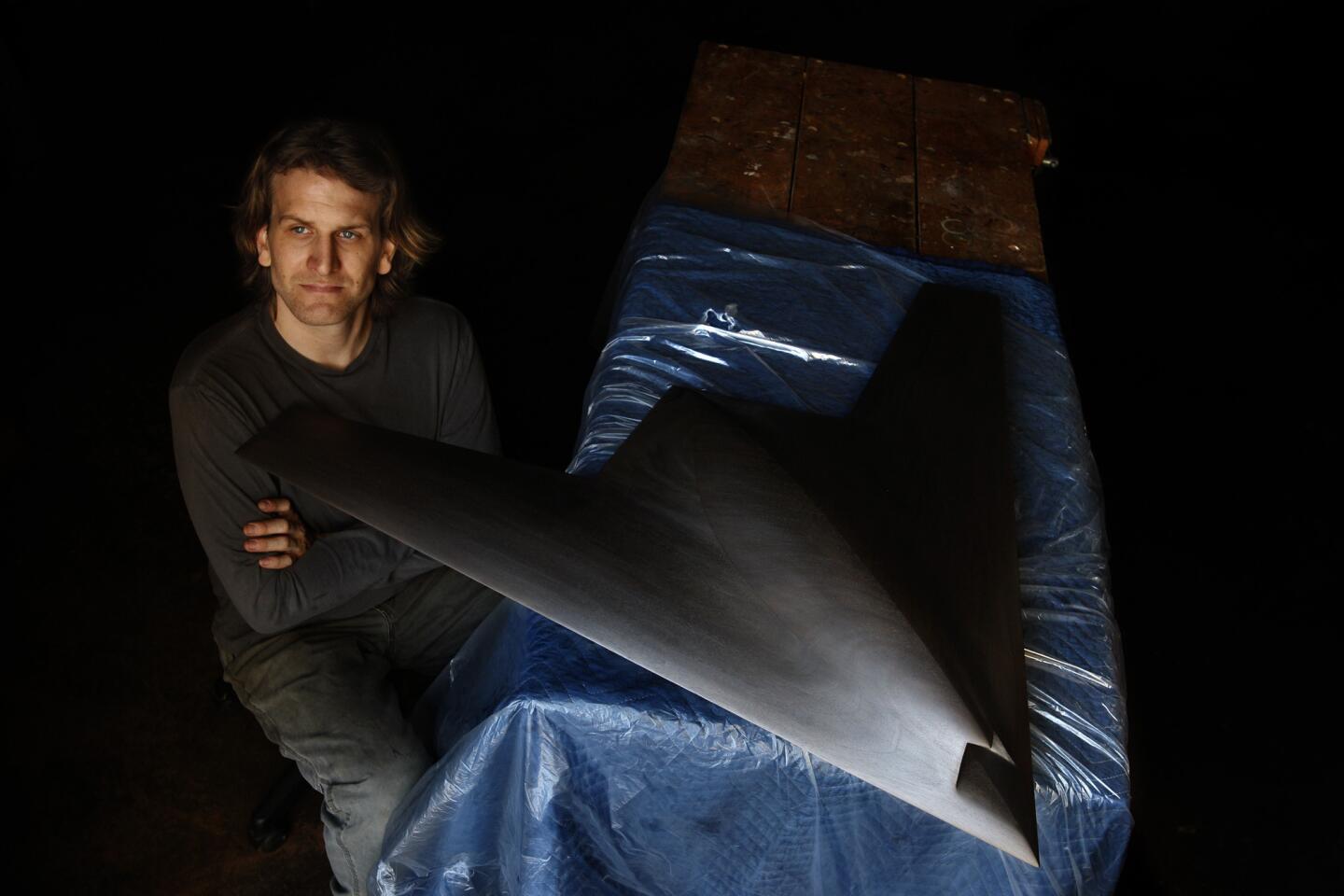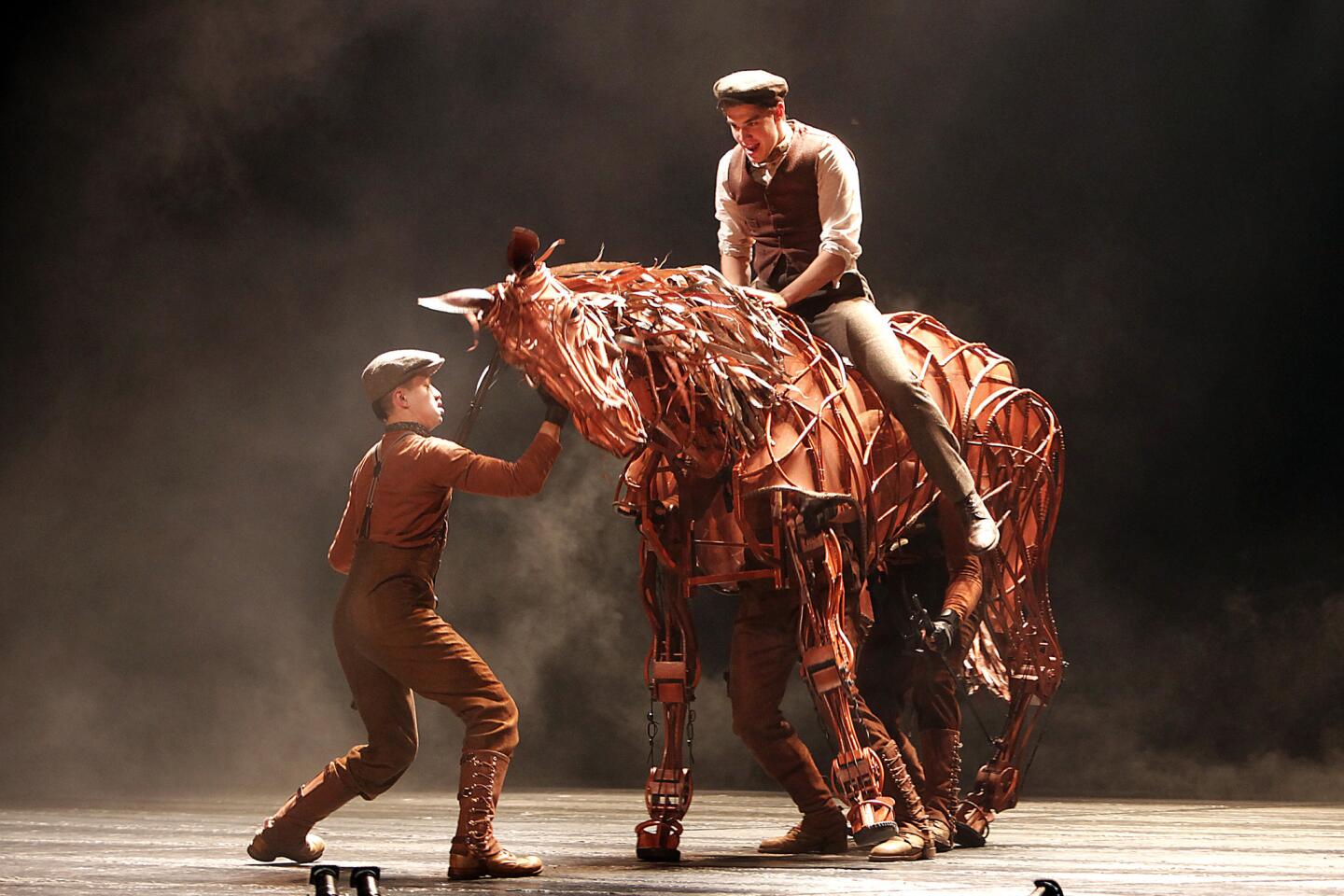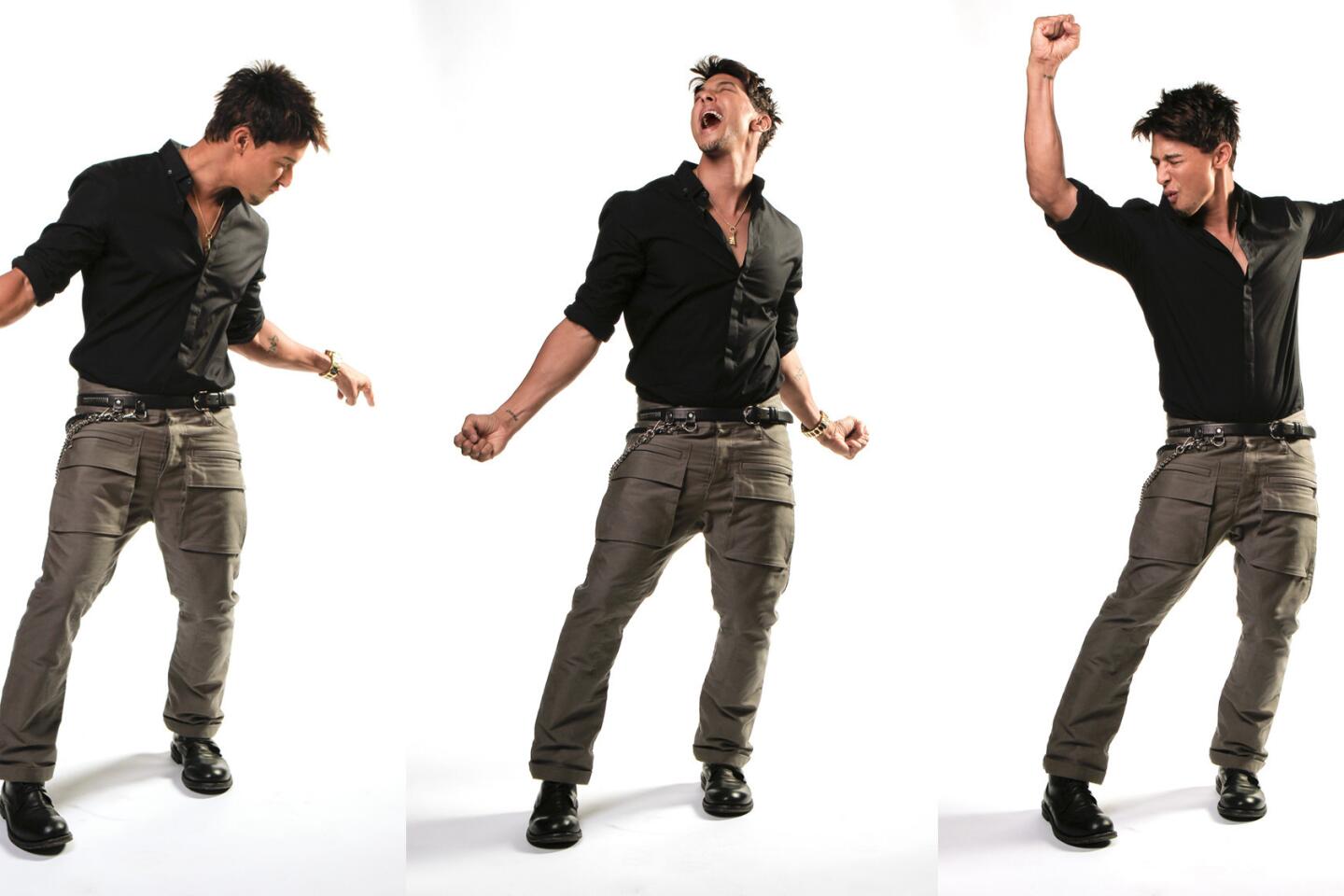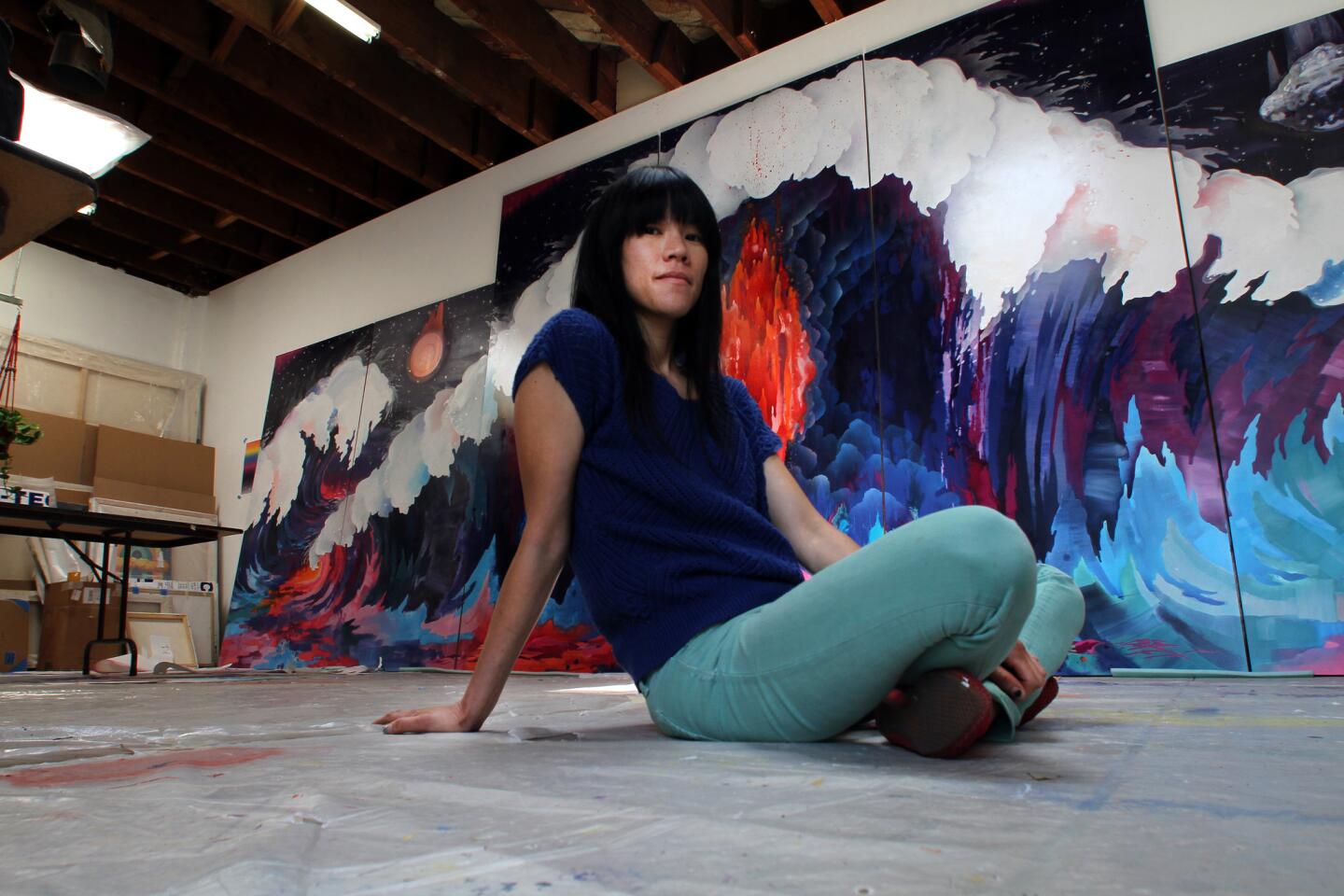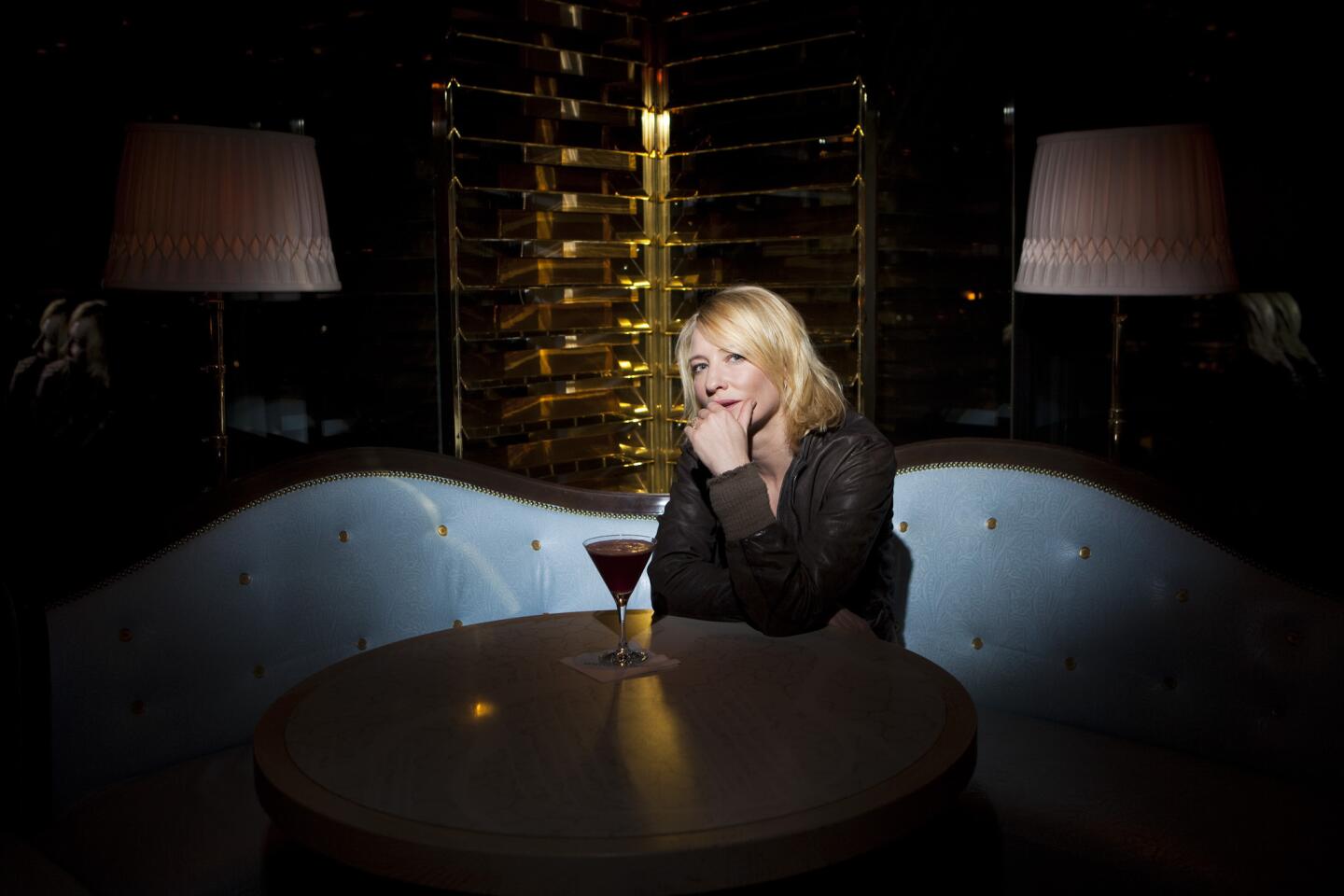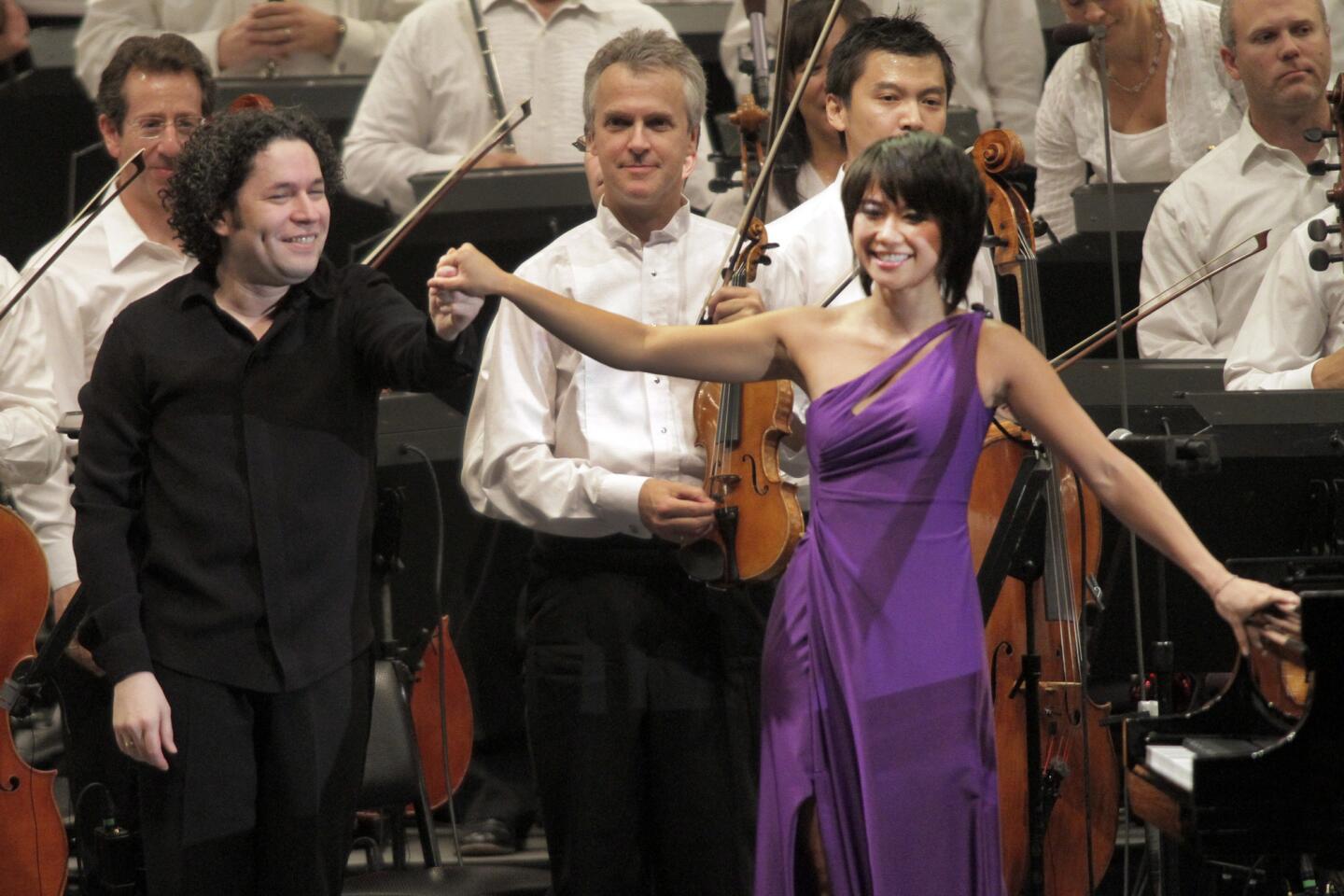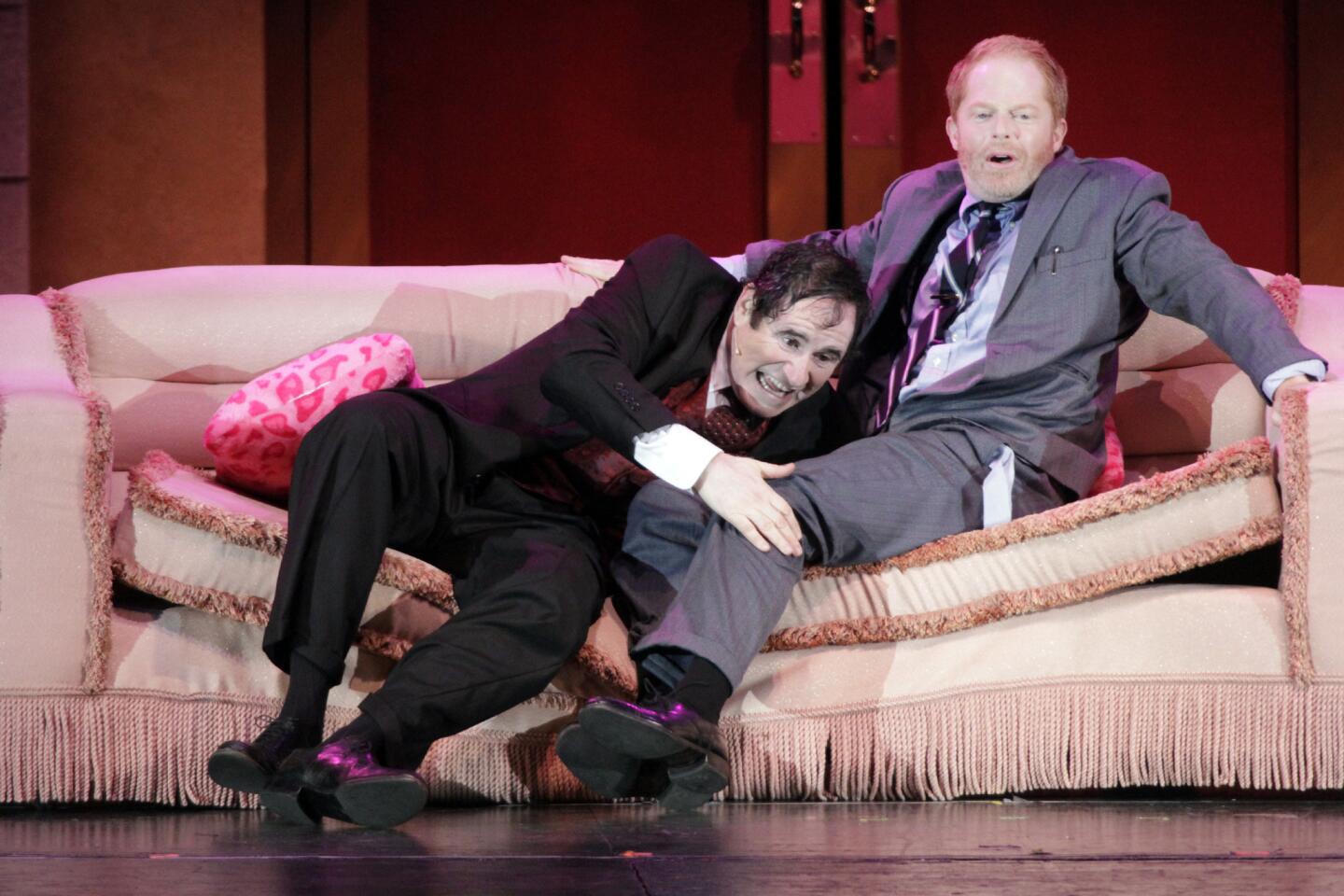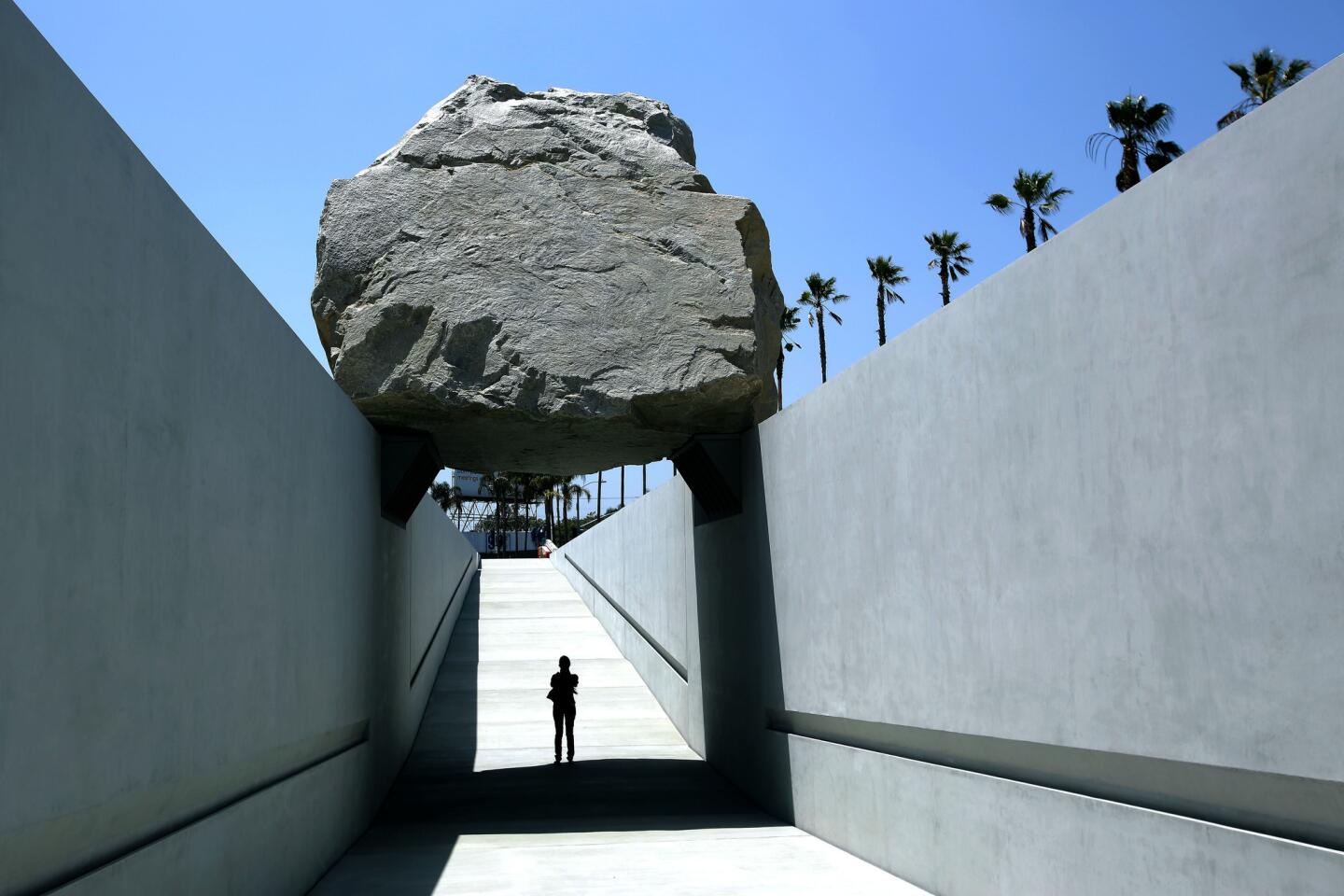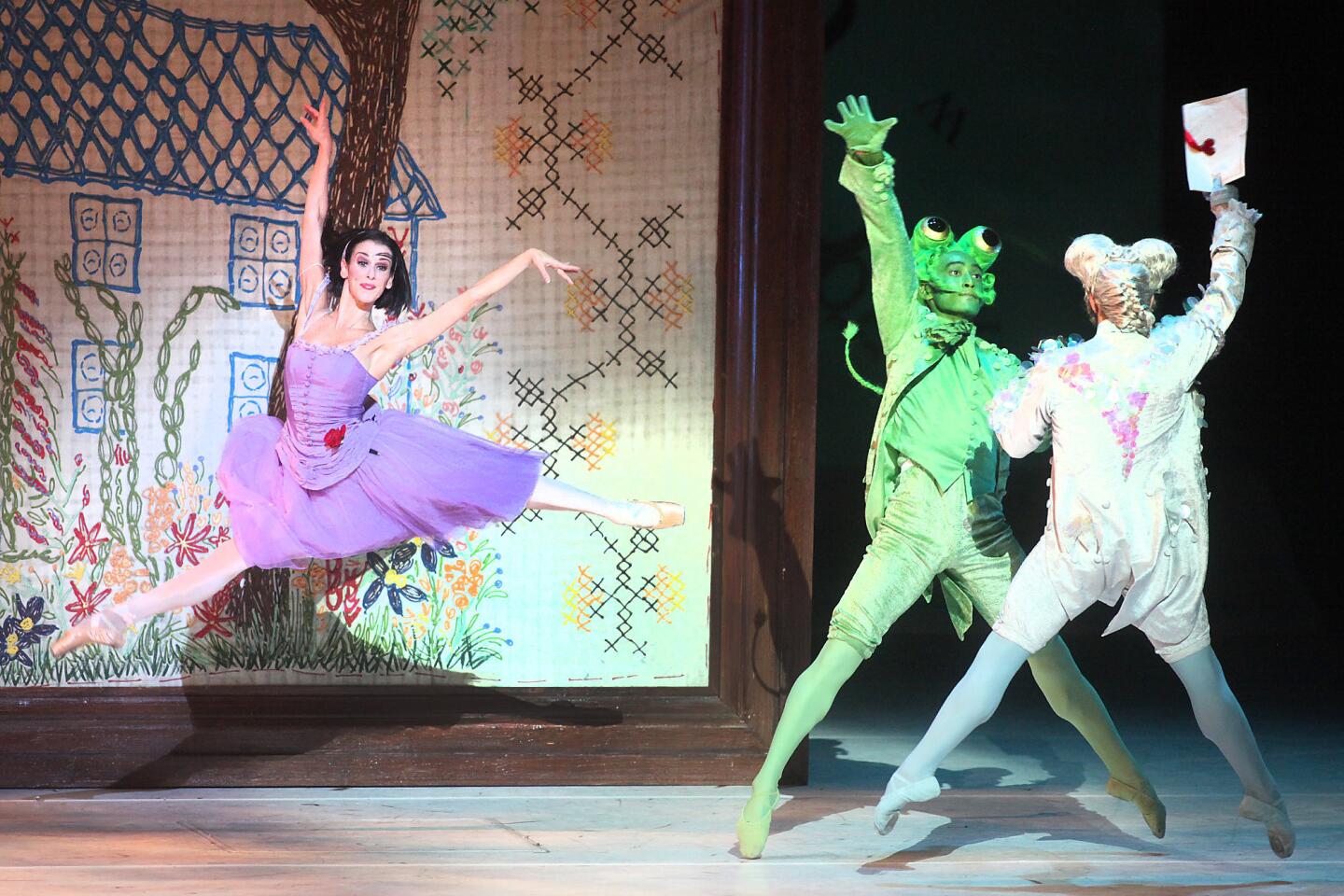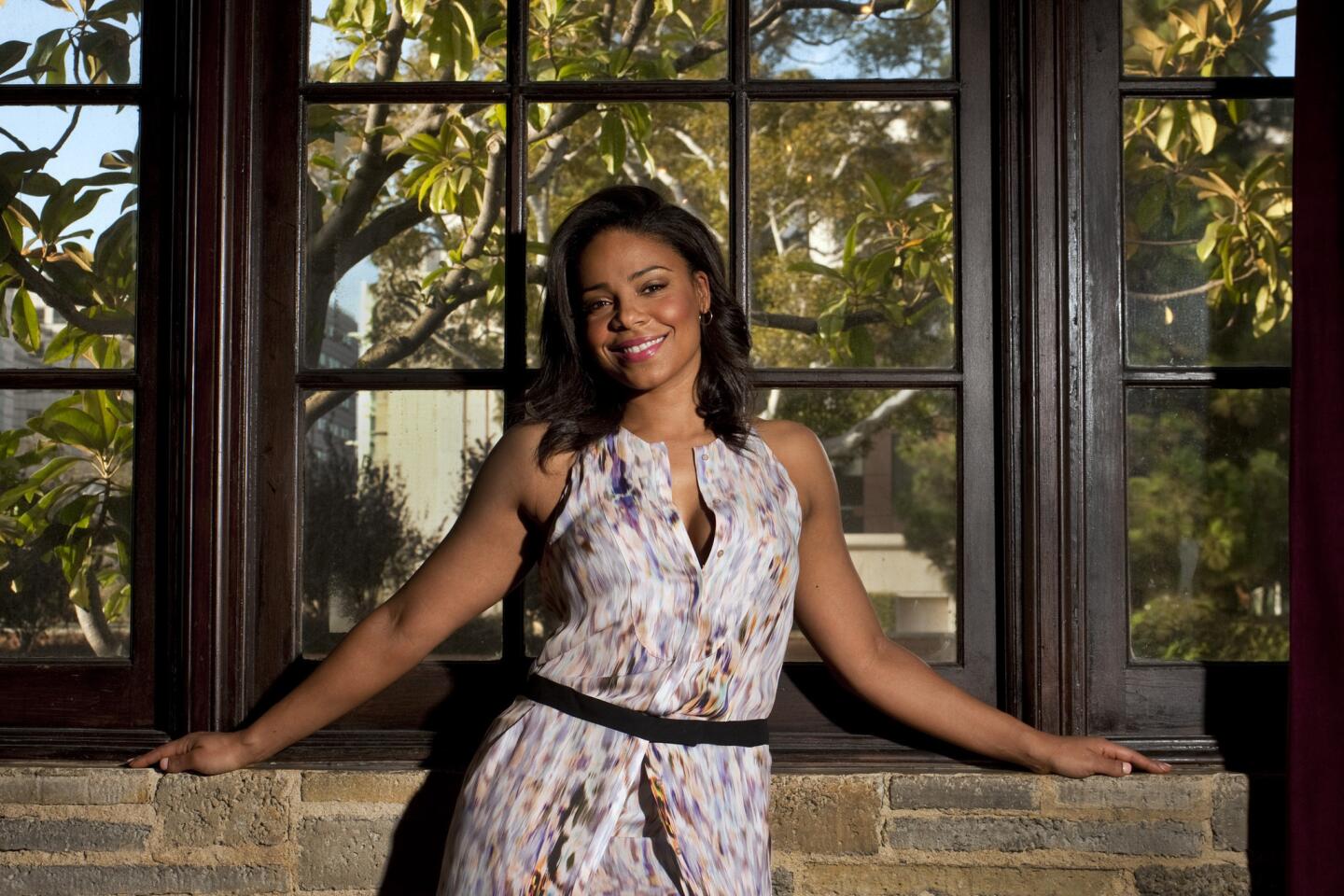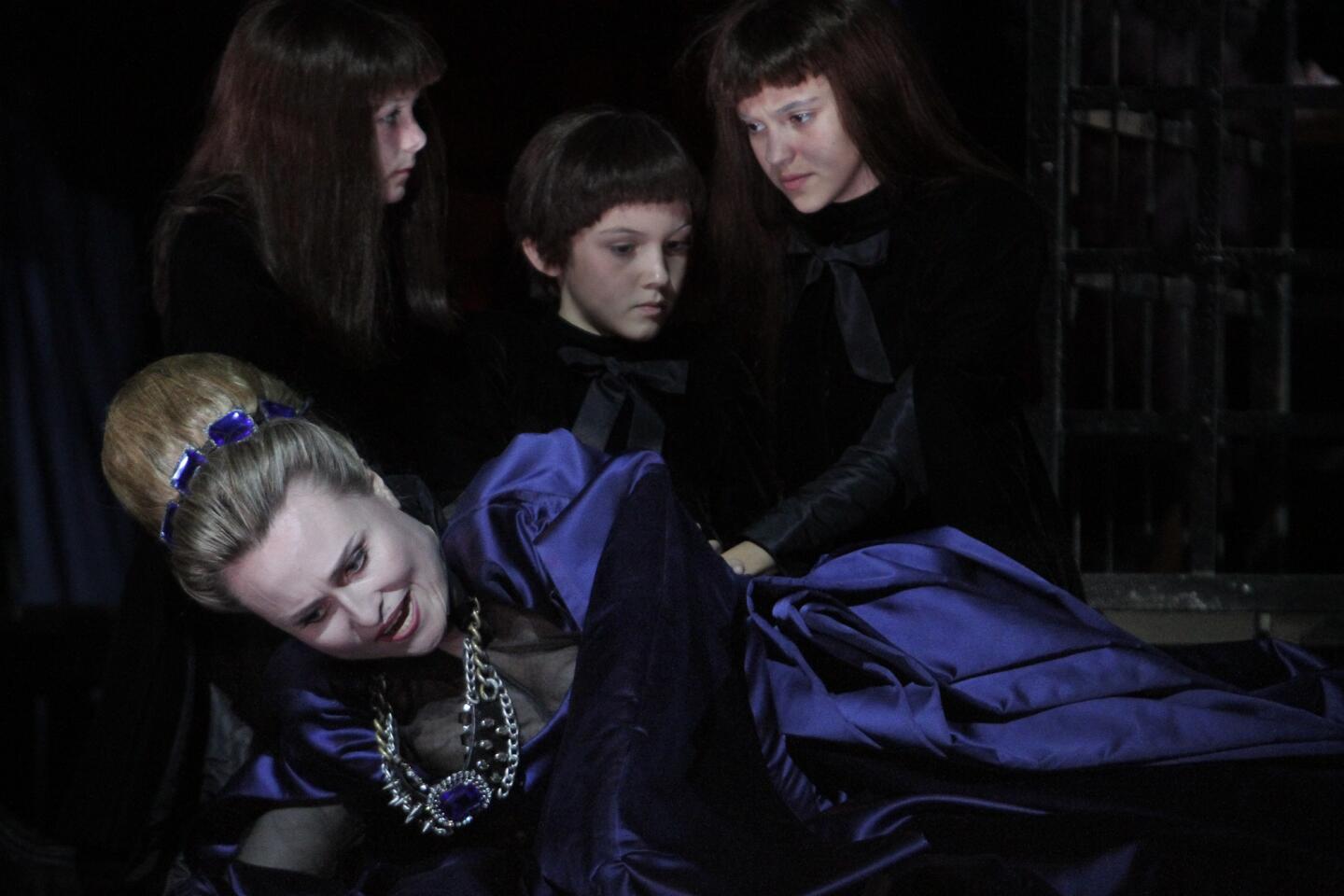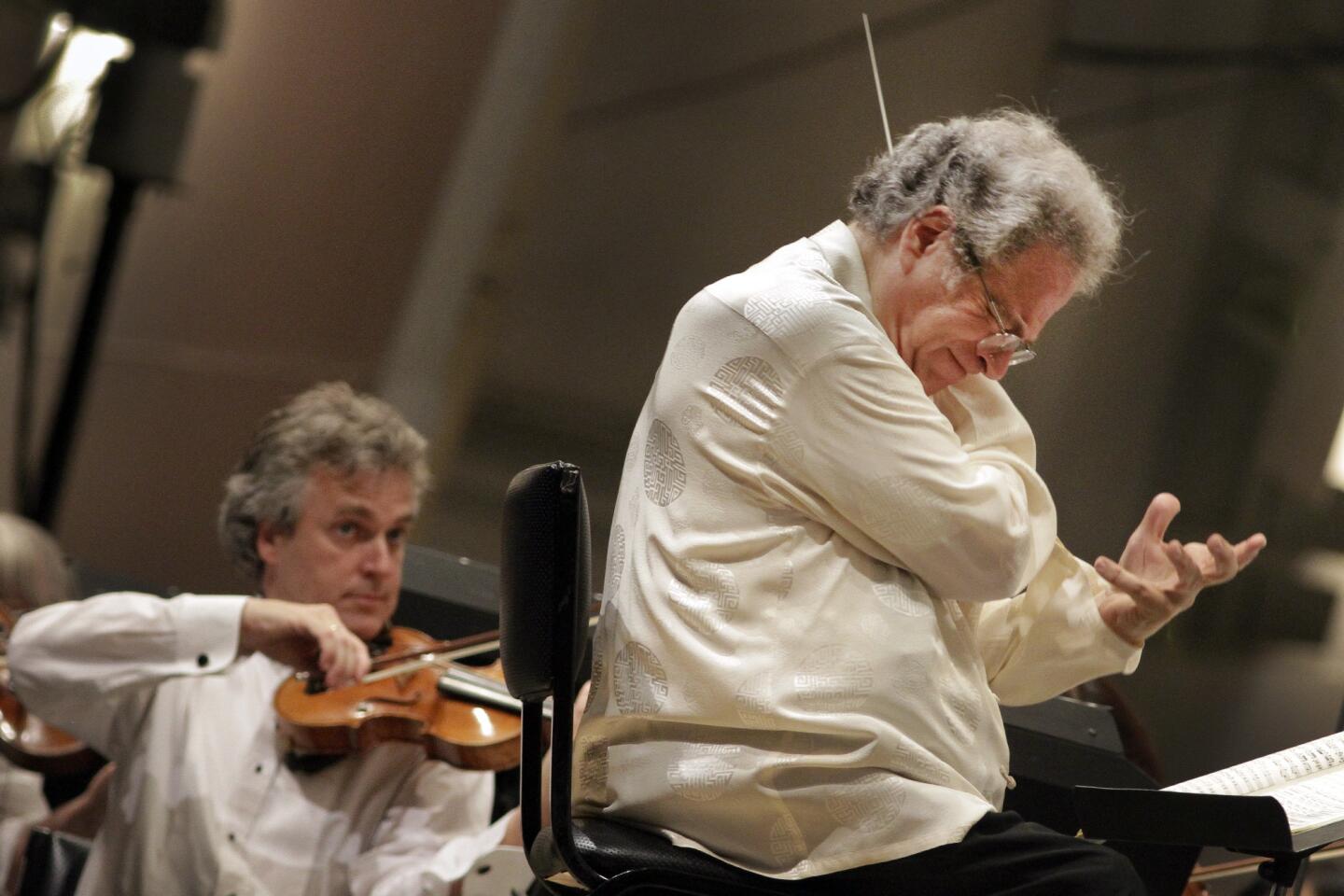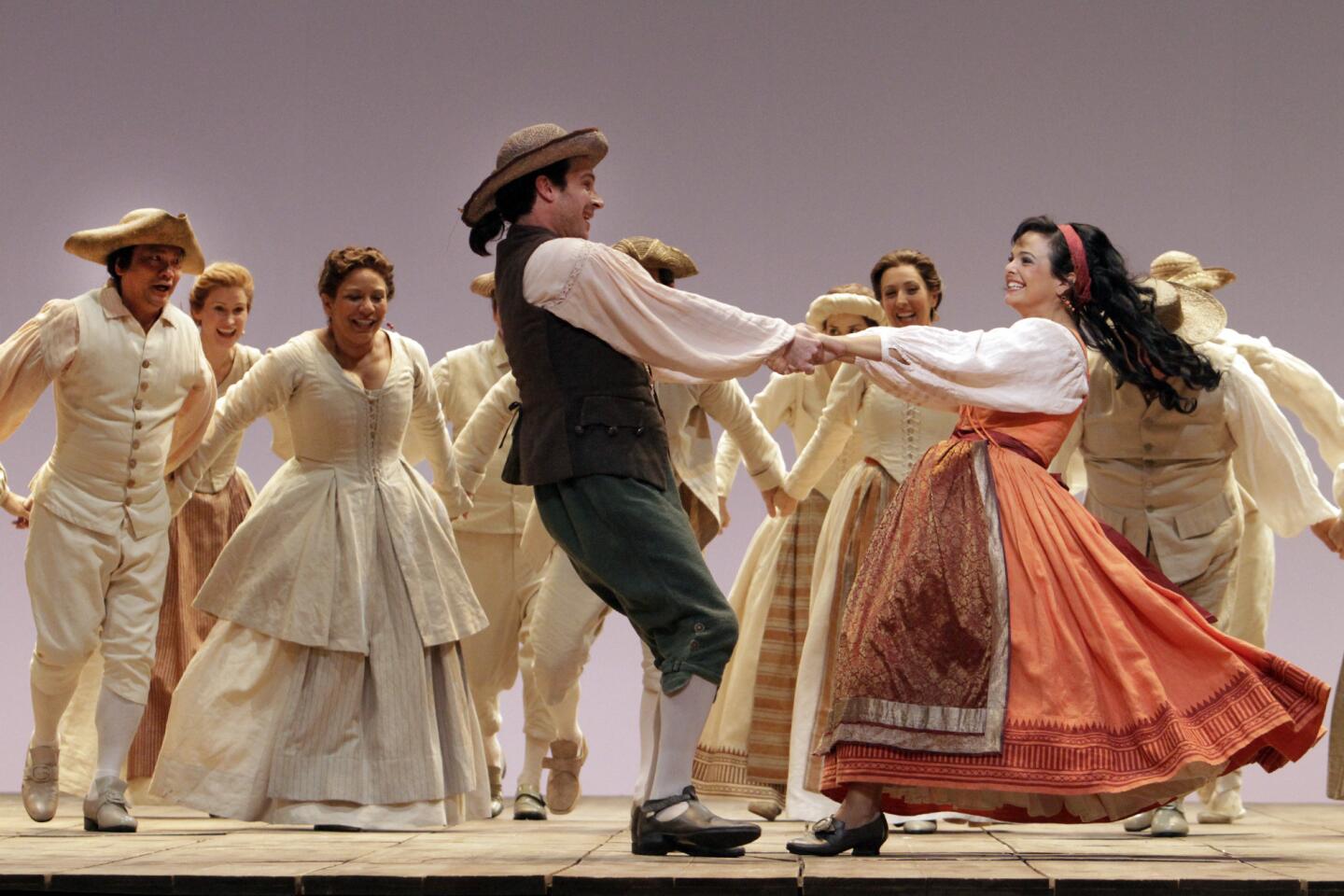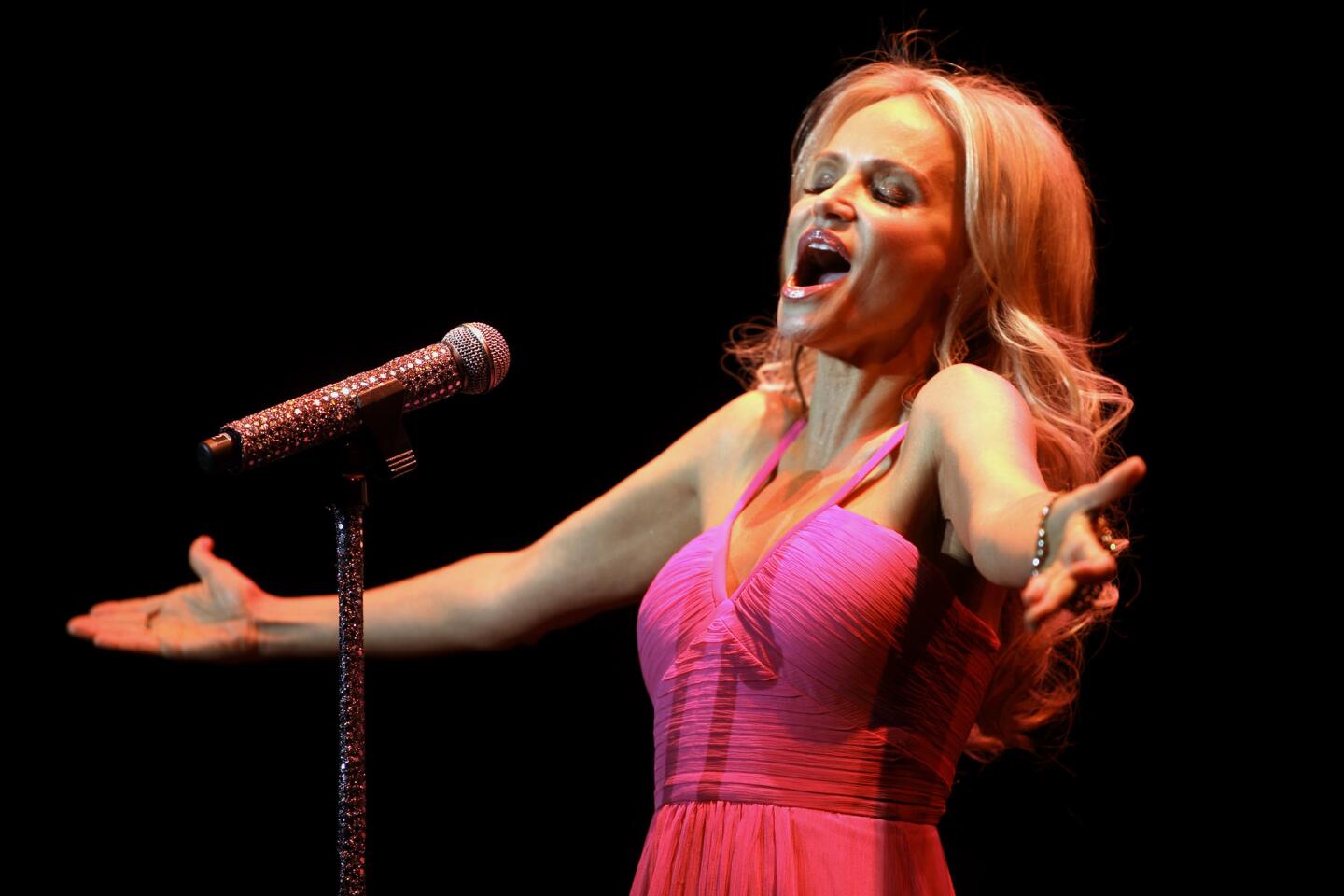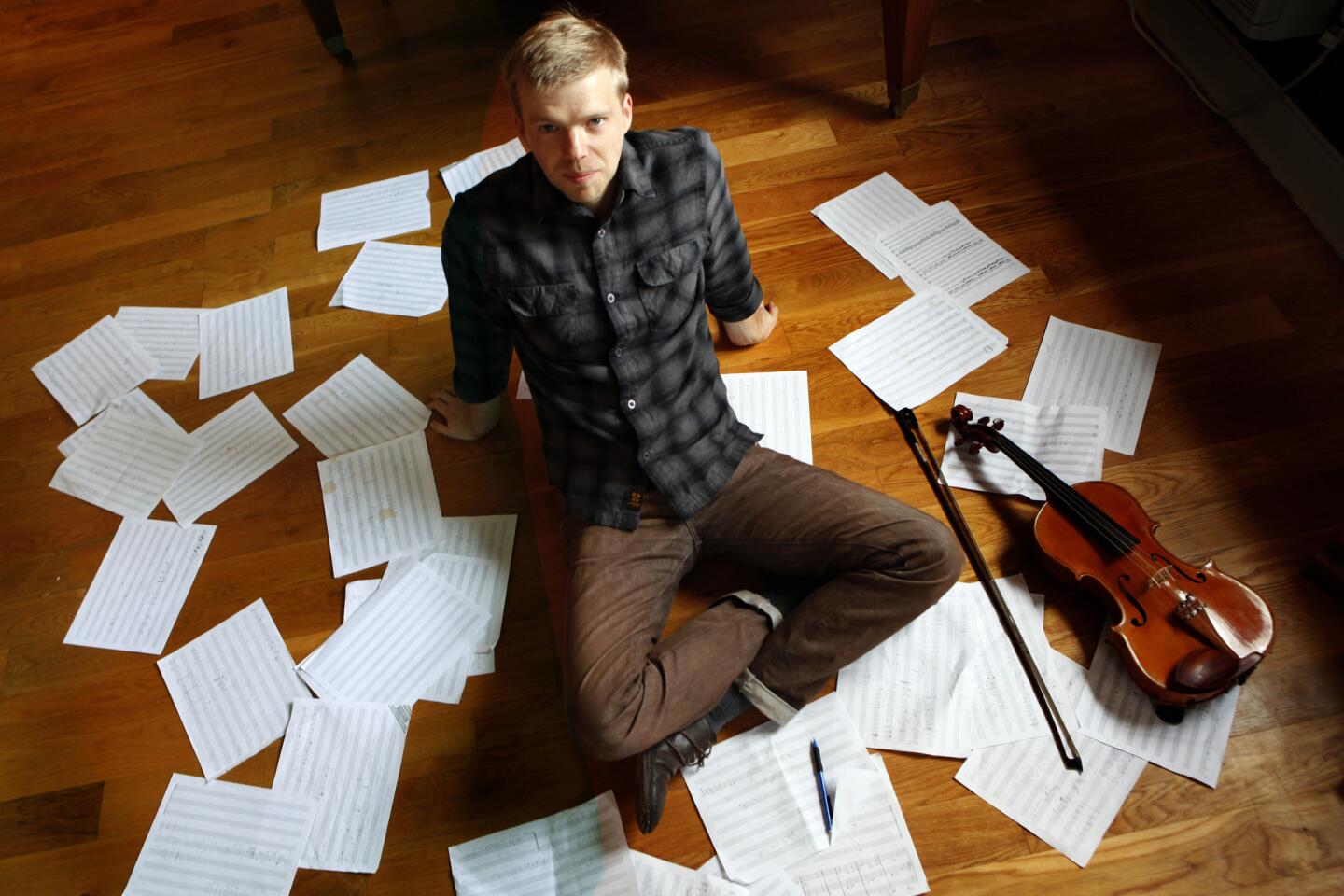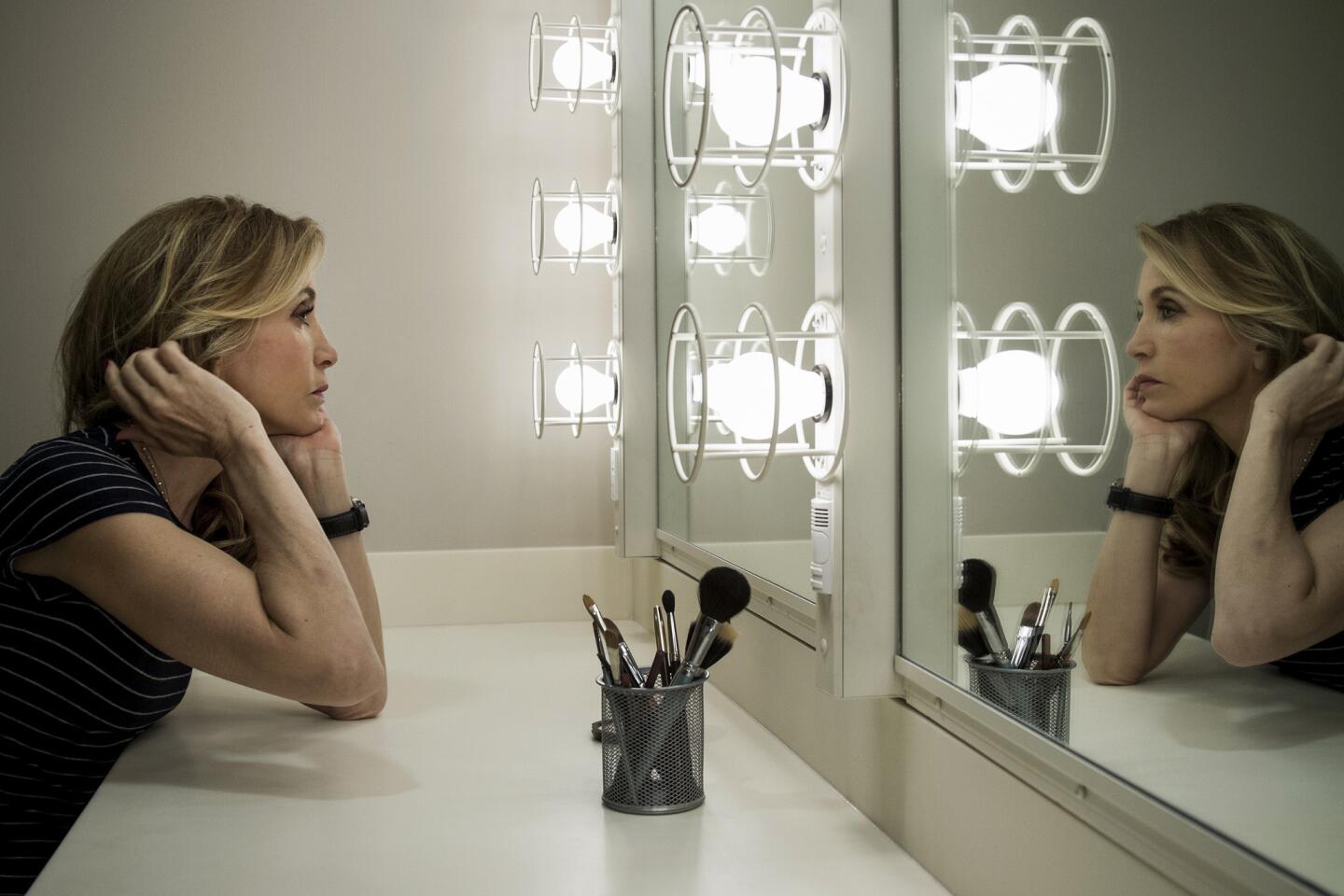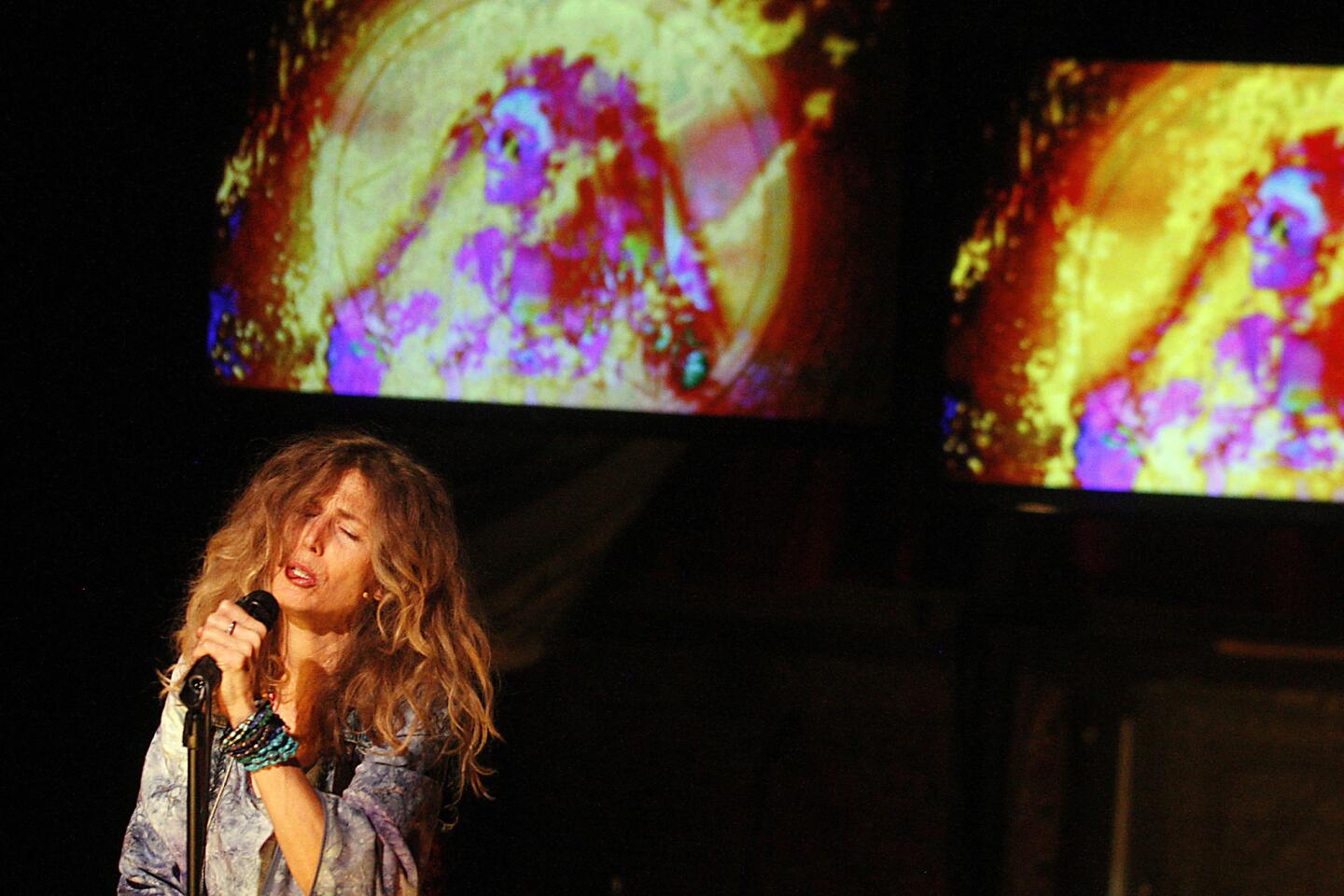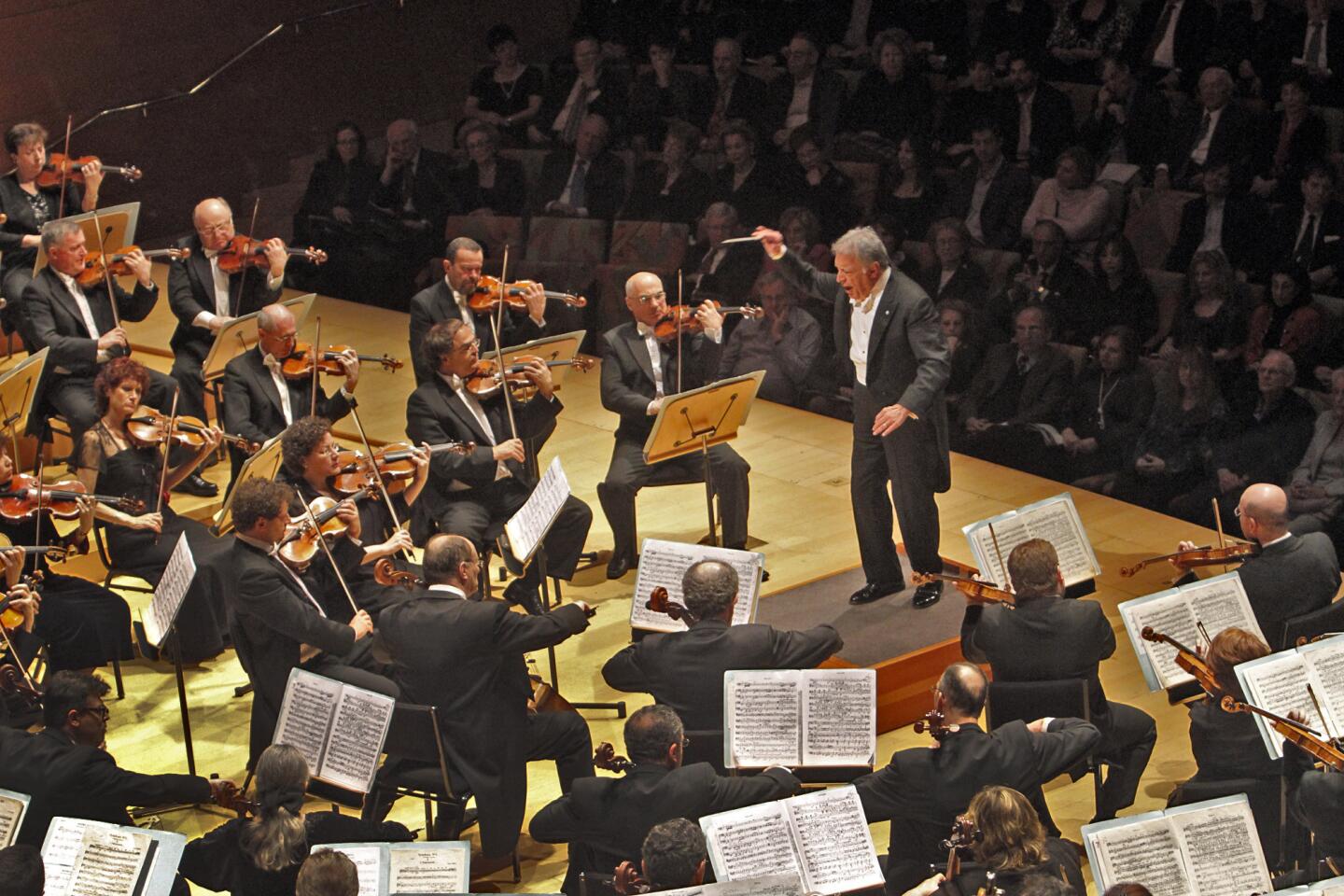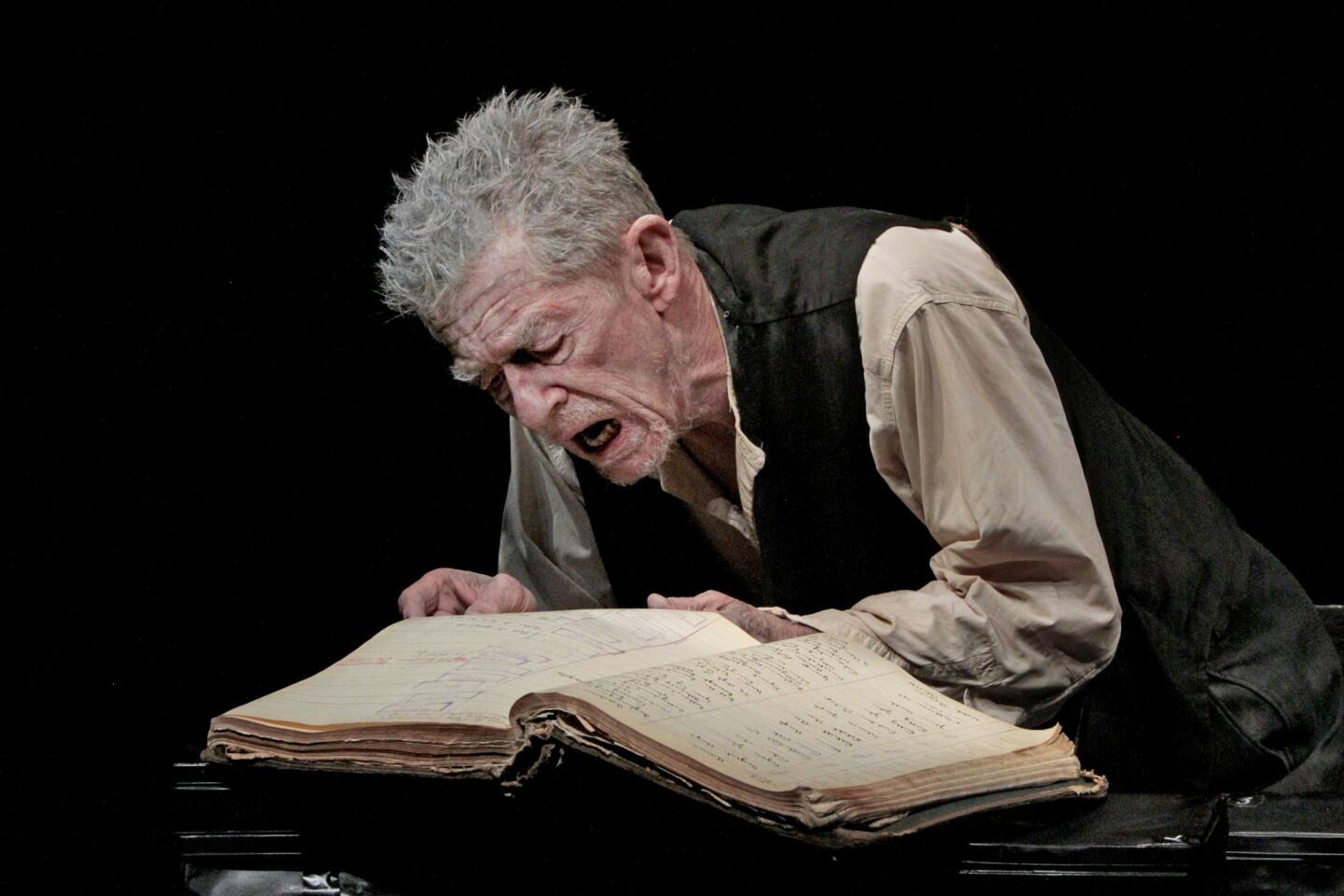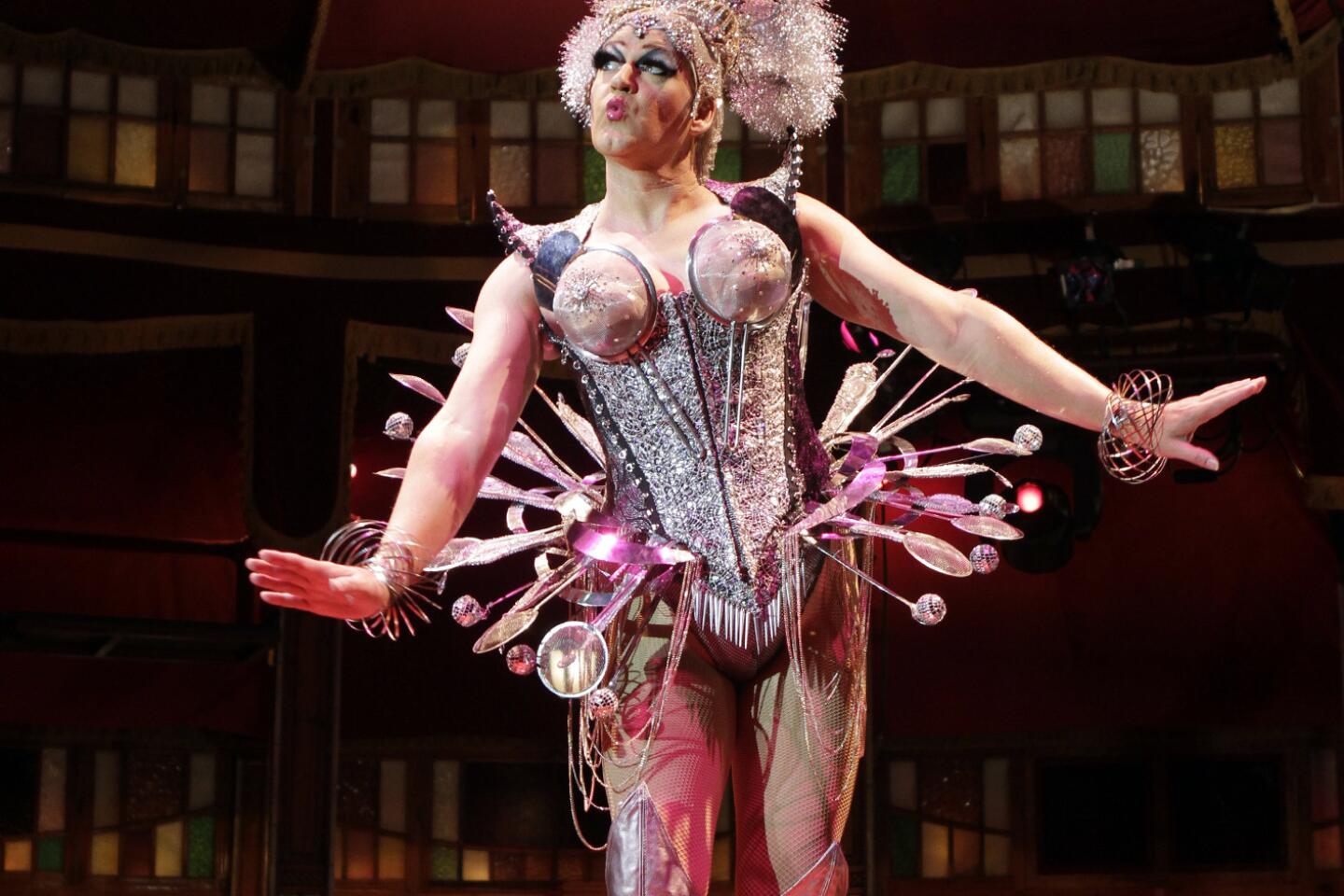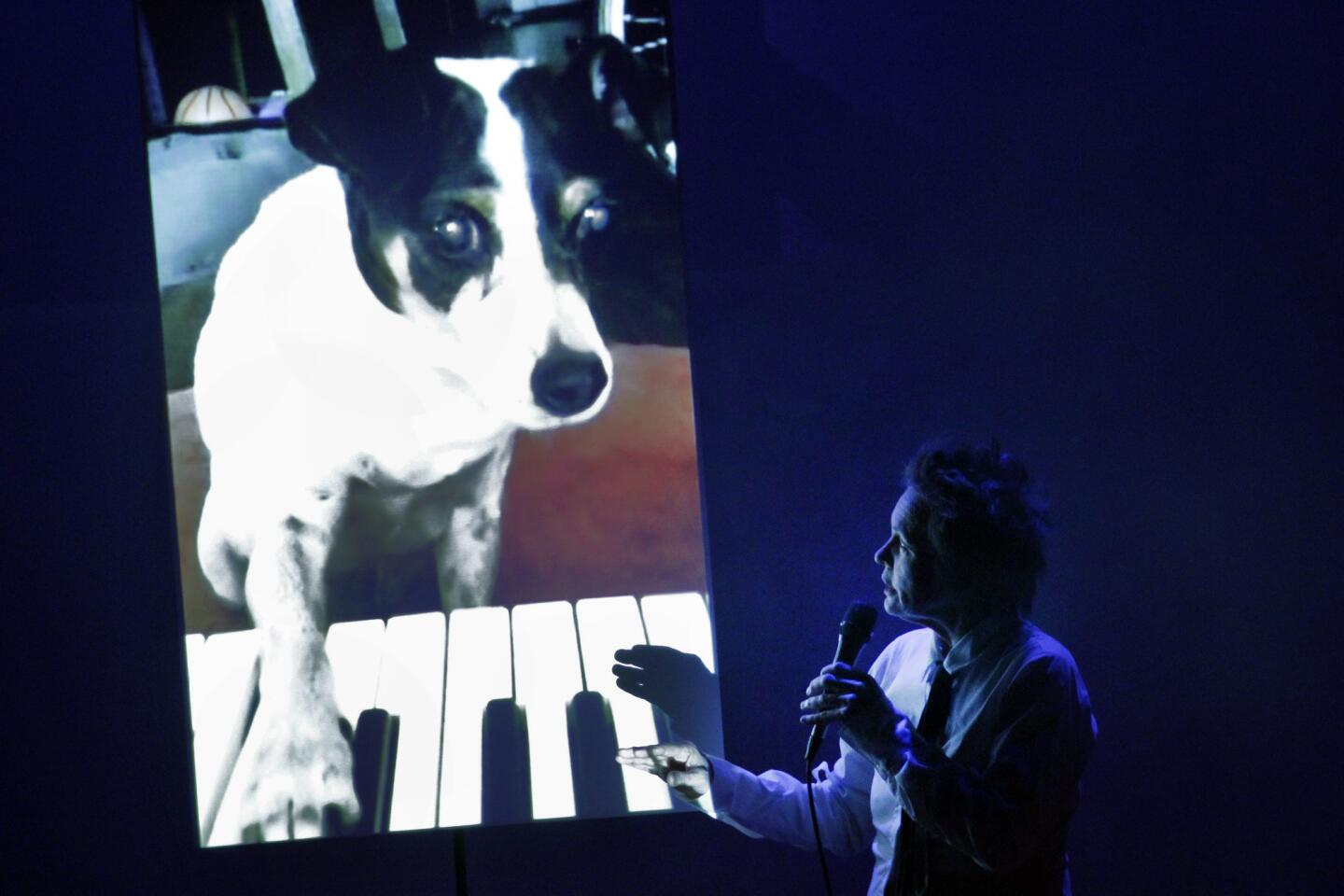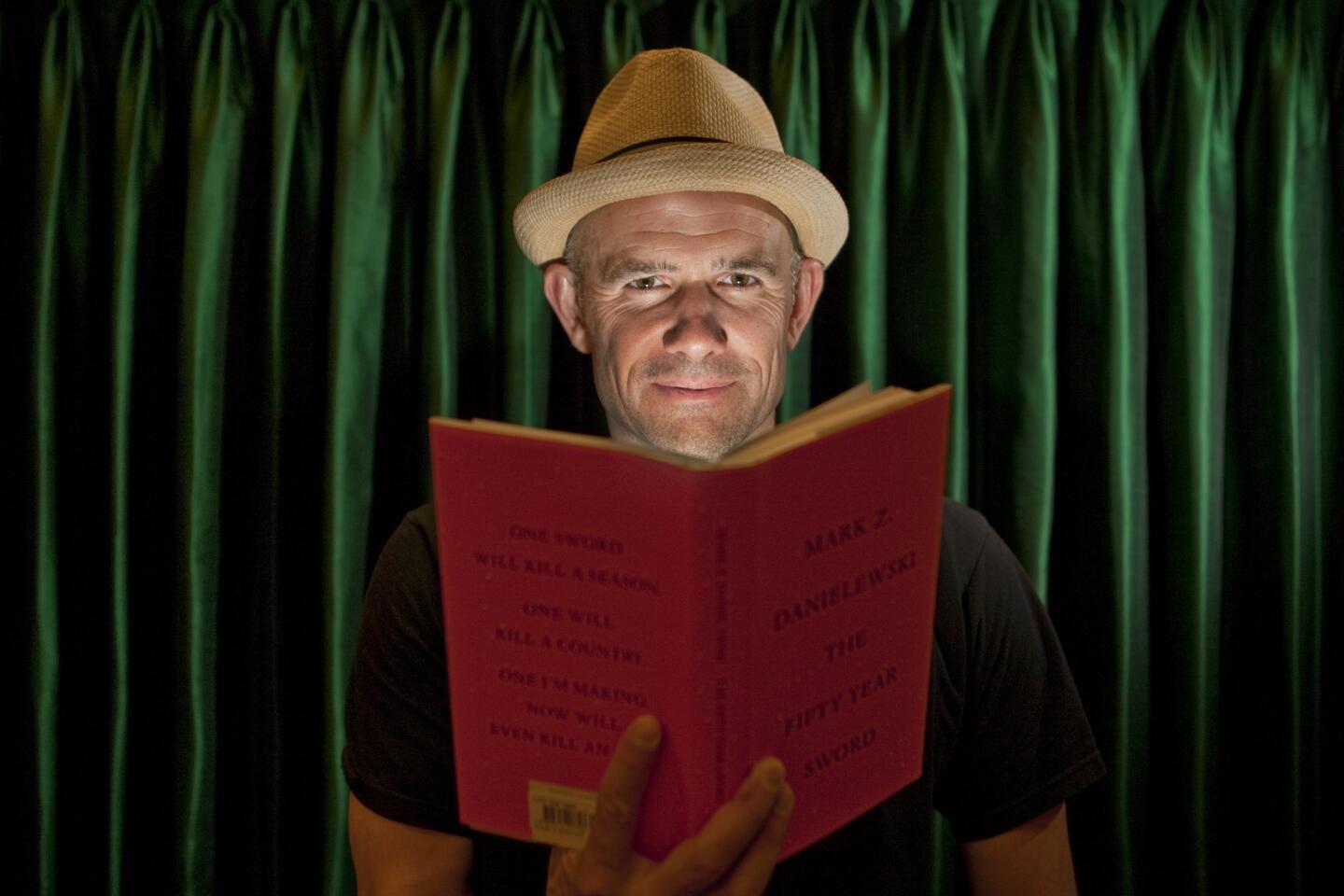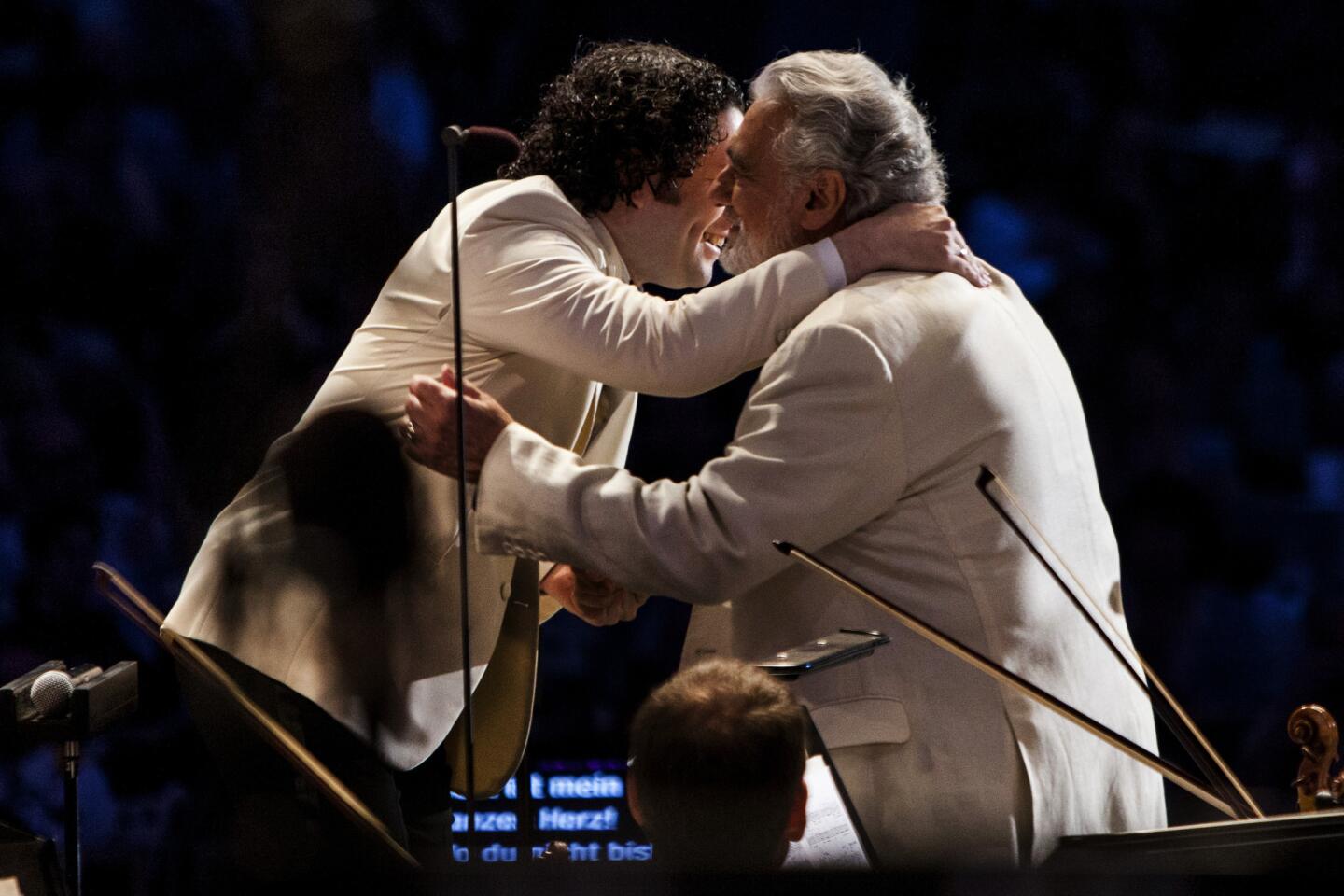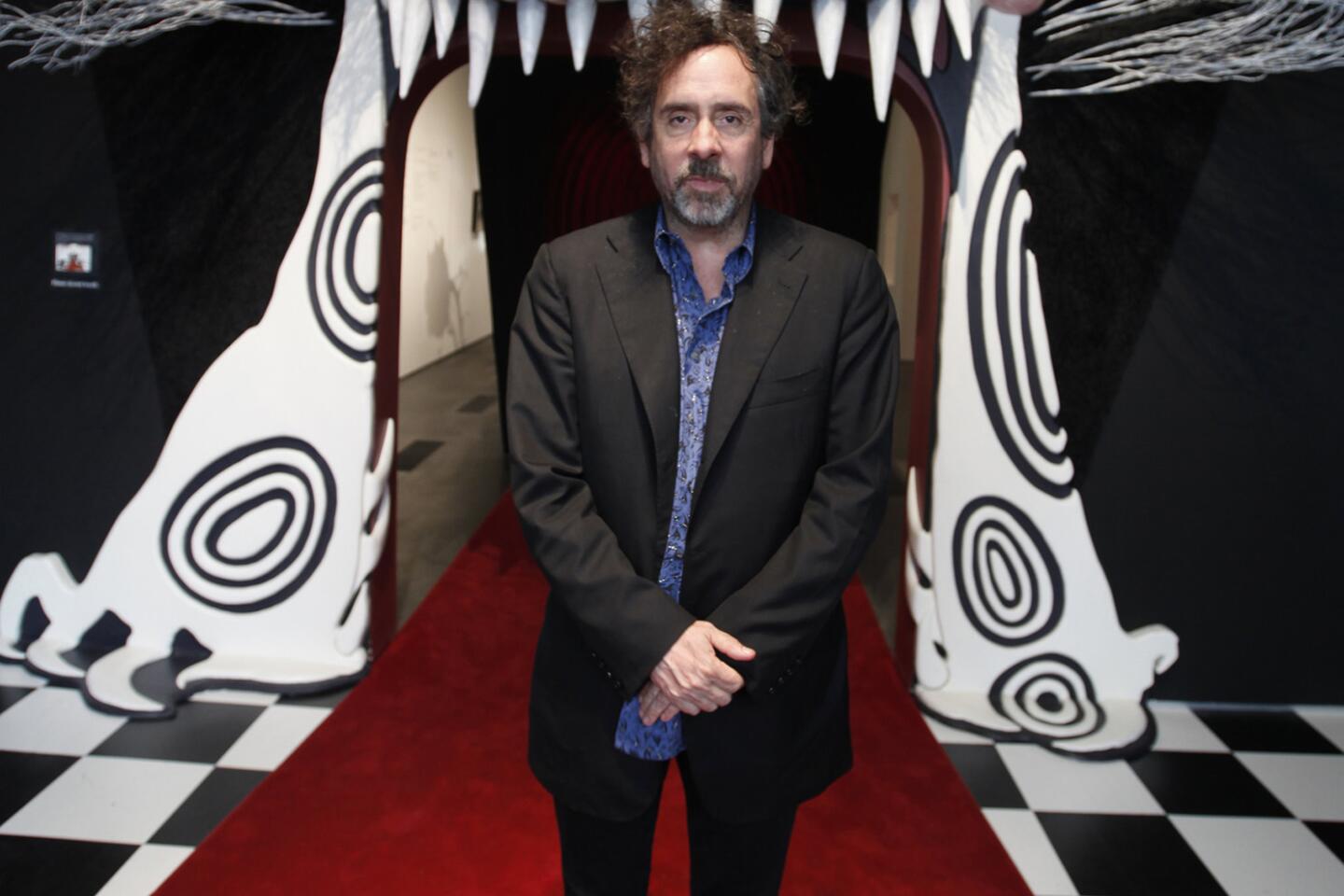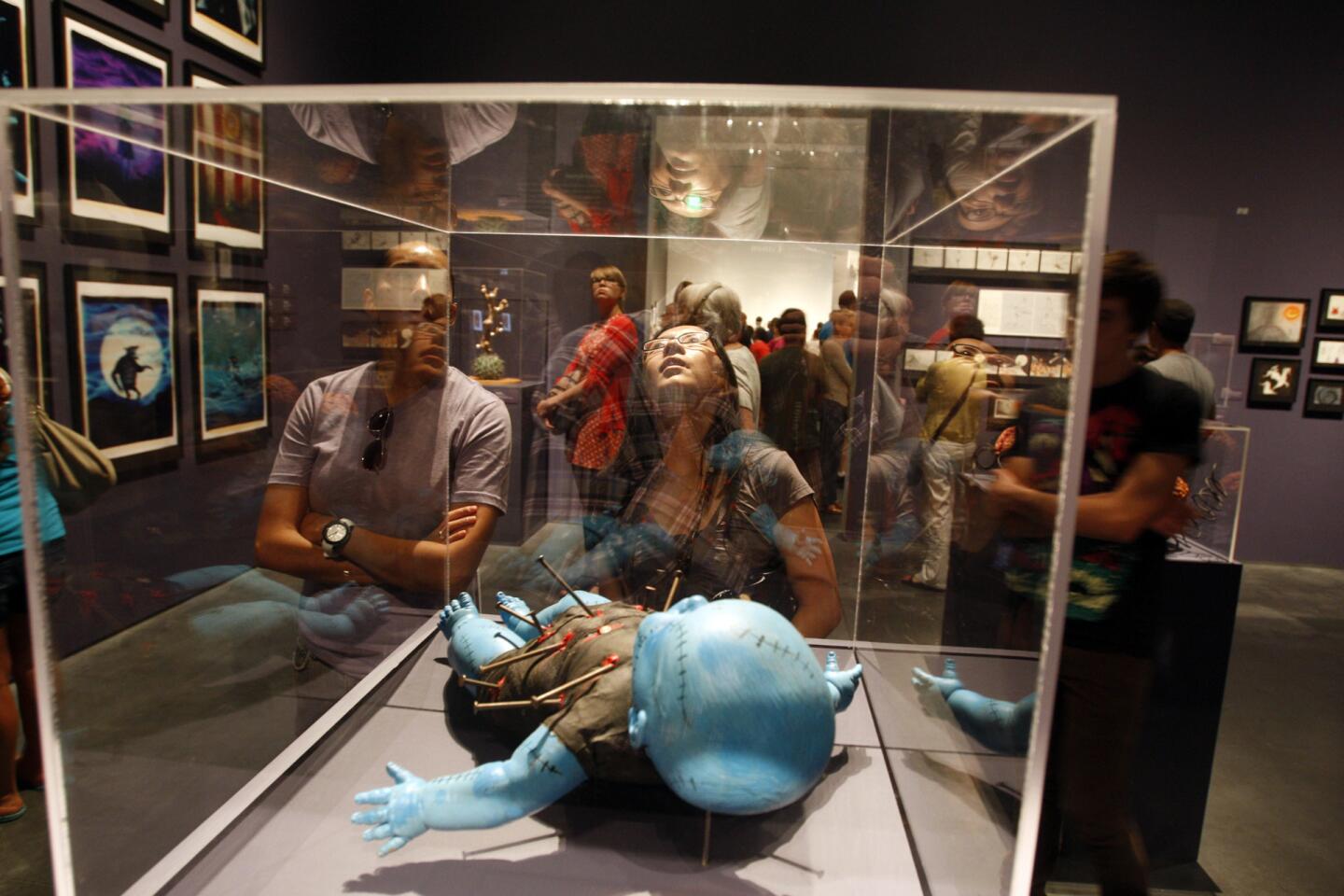Gordon Davidson is still giving to theater
- Share via
Founder of the Mark Taper Forum, éminence grise of the regional theater movement, crusading champion of Los Angeles theater, Gordon Davidson was put in an unusual position last fall at USC’s School of Dramatic Arts: He had to explain who he was to a group of undergraduates who had signed up for a semester-long course with him.
Yet it didn’t take him long to win over the class and to justify Dean Madeline Puzo’s decision to greenlight the unusual-sounding seminar “A Life in the Theatre With Gordon Davidson.” Co-designed and co-taught with veteran acting professor Eric Trules, the course introduced the students to Davidson’s legacy as the former artistic director of Center Theatre Group, L.A.’s largest and most important nonprofit theater organization.
Former collaborators such as Tony-winning actor John Rubinstein (“Children of a Lesser God”) and writer-performer Charlayne Woodard (“Neat”) made guest appearances to share their experiences of working with Davidson and to outline their careers in the American theater.
PHOTOS: Arts & culture by The Times
But this was hardly a talk show housed in the groves of academe. Autobiography was the pedagogical starting point — “to learn by observation and modeling,” as Trules put it. Yet the mode of the class was highly participatory. Students were charged with creating their own hypothetical theaters, coming up with an artistic season and, most important, formulating a distinct mandate for their institutions — yes, the old (and apparently forgotten) vision thing.
On the afternoon I attended, students pitched their ideas for filling two of the five slots in their seasons. Davidson and Trules stood in for the artistic staff, with Davidson responding just as he might have in the days he led CTG.
When one student proposed Richard Bean’s British comedy “One Man, Two Guvnors,” Davidson asked whether the student had a performer in mind who could carry the show with as much comic gusto as James Corden, the Tony winner who most certainly wouldn’t be available.
Another student suggested adapting Euripides’ rarely revived “Cyclops.” The idea intrigued Davidson, but, being the seasoned producer that he is, he raised concerns about moving forward with a project before there was a script.
The students were nervous about their presentations, and their inexperience showed, but Davidson responded with attentive questions that showed just how seriously he was taking their suggestions. In his feedback he repeatedly underscored the importance of carving out unique identities for the students’ theaters — something he finds lacking in the local and national scene today. The goal, he said, was for artistic leaders to use their passions to create a fostering atmosphere “in which good theater could be done with some consistency.”
“A Life in the Theatre With Gordon Davidson” might seem like a classic gut course, one of those electives students carrying a heavy load take to give themselves a little breathing room. But the seminar turned out to have real-life consequences for several students from the fall semester class who signed on for the “directed research” class with Davidson this spring term so that they can make actual headway on their theatrical plans.
FULL COVERAGE: Theater and dance
The idea for this course, explained Trules, once again co-teaching with Davidson, “is to create new work for the theater with a passionate, committed, and original L.A. ‘voice,’ much in the tradition of Gordon’s programming and development at the Taper for 38 years.”
Puzo, a producer at the Taper in the Davidson years, laid out her rationale for these courses in an email: “Fifty years ago there was a handful of visionary leaders — Tyrone Guthrie, Zelda Fichandler, Joe Papp, Bill Ball and Gordon Davidson — who profoundly changed the American theater.... We are all the inheritors of their dream of a truly American theater, speaking directly to its community, away from the commercial pressures of Broadway. Gordon was the last of these leaders to step down from his post and there are times when I consider the present reality of the not-for-profit theaters and think that Gordon must have turned the lights out when he left. My hope by having Gordon teach at USC was that he would inspire in our students his passion for a theater created by and for a community that has both intrinsic (aesthetic) and instrumental (ethical, societal) value. Theater that, as Gordon used to say, has its work to do in the world.”
No one could be more delighted by this opportunity than Davidson, who admitted that when the students introduced themselves on the first day of class last semester he was a little deflated by how few were focused primarily on the theater.
“I asked them what their interests are, and they spoke articulately about what they wanted to do,” Davidson recalled. “A lot of it was about Hollywood and acting in film, partly because many of them are carrying a debt burden and the income of film is a big deal.”
To familiarize the students with his background, Davidson, who has been working on a memoir and hoped the class might open the memory floodgates, prepared a packet of material that reviewed season by season his work at the Taper, which he founded in 1967, and the Ahmanson Theatre, which he took over in 1989. (He stepped down as artistic director from CTG at the end of the 2004-05 season.)
The pages, taken from program inserts during Davidson’s final season, itemize his vast contribution to the American theater, with such highlights as the first full production of both parts of Tony Kushner’s “Angels in America,” Anna Deavere Smith’s “Twilight: Los Angeles, 1992,” much of August Wilson’s great cycle, as well as Davidson’s own high points as a director, a list that includes “Children of a Lesser God,” “The Deputy,” “The Trial of the Catonsville Nine” and “The Shadow Box.”
PHOTOS: Arts & culture by The Times
“The students were blown away,” Davidson says with grandfatherly modesty. “They didn’t know Gordon Davidson. They didn’t know many of the plays. But seeing this body of work showed that it was possible to make a career and a contribution.”
Davidson’s manner isn’t as speedy as it was in the days when, thanks to him, one of the country’s most valuable theatrical operations was firing on all cylinders. His anecdotes meander at golf-cart pace. His memory is rich and colorful, but the fishing for names takes longer these days and dates must be looked up.
Yet his commitment to the nonprofit theater is as passionate as ever, perhaps even more so now that he sees the extent to which commercialism has infiltrated the spirit of a national movement he helped advance.
Is a career like his possible today? Davidson, who turns 80 this year, posed the question to me with a melancholy shrug after our post-class chat. He worries that the regional theaters have lost their guiding sense of mission, have become too homogenous and have gotten too caught up in the hoopla of the Tony Awards. He knows that leadership is what’s needed to restore integrity. But although he fantasizes about telling the current crop of artistic directors to “wake up, guys,” his eye is on the next generation.
“Teaching has ignited flames in me,” he said, a remark that certainly would have made his late father, Joseph “Skipper” Davidson, a longtime professor of speech and theater at Brooklyn College, proud. “The work has to start sooner on the students. They have to be shown that there’s more at stake than show business.”
The exposure of sensibility is a crucial dimension of arts education. This is why, in sharing his own story, he found it necessary to make room for other artists to share their own. When Rubinstein came in to talk about working with Davidson on “Children of a Lesser God,” he candidly spoke about the stardom that didn’t happen after winning a Tony for his performance after the play moved to Broadway. He also spoke ardently about the impressive stage and screen career that did. “It’s not about money but getting to do what you love,” he told the class. “I’m one of the lucky people.”
Rubinstein also talked about Davidson’s dedication to helping playwright Mark Medoff realize his dramatic vision, a process that took time and the right mix of encouragement and pressure. When Rubinstein was first cast in “Children of a Lesser God,” the second act was limping along. Fortunately, Davidson had created an environment that placed the work — and the evolution of artists — above everything else.
“These plays don’t come out of thin air,” said Davidson, one of the few people who showed up when two of his USC students, inspired by stories of his play development moxie, started a Sunday night dinner play lab of their own.
Trules says his job has been to “make Gordon comfortable enough so that this living treasure chest would open up in front of us.” As the class transitioned from “Gordon’s autobiography to the metaphor of students taking keys to their own theater,” Trules witnessed Davidson passing down “his knowledge of what it is to create a theater that allows artists to be at the source of their own creativity.”
“‘Legacy’ is a key word,” said Trules. “Gordon has only a little time left on the planet compared to his young charges, and wouldn’t it be great if we weren’t all Hollywood whores?”
Davidson phrased the challenge differently. “I want the students to recognize the two crucial components of the theater — community building and storytelling. I tell them, ‘You’re storytellers first and foremost, sitting around the famous campfire.’ Yes, I think of myself that way, but I also know how important it is to make people feel part of a community and how you want to try to enfold the community of artists into the community of the audience, which includes the people who don’t come as well as the people who do.
“I consider myself fortunate to have come on the scene when I did in the mid-1960s. Women’s lib, civil rights, Vietnam War, Democratic Convention of ‘68, music rolling and rocking and turning upside down. You had to respond to that one way or another, and I decided that you can make a difference, that theater could make a difference, that it could make a change in society by holding the mirror up to nature.”
The theater, Davidson fears, has lost its voice: “News and information travel so fast today. Anyone who has a cellphone has access to what’s going on at all times. The theater used to play a more prominent role in shaping communication because there weren’t as many outlets. I think part of the challenge for the future is for theater artists to focus more on human interaction, language and community.
“I want the students to involve themselves as citizens and artists. To be less self-interested and to understand that they can be part of something larger. It was not my plan to continue teaching in the spring term, but enough students wanted to stay with it. I know that I will feel better for having taught them that this art form I love dearly has an inherent value that needs constant addressing.”
More to Read
The biggest entertainment stories
Get our big stories about Hollywood, film, television, music, arts, culture and more right in your inbox as soon as they publish.
You may occasionally receive promotional content from the Los Angeles Times.
